NLSA Hall of Fame
The membership of the Newfoundland and Labrador Soccer Hall of Fame includes:
2023
- Albert Anstey
- Charlie Babstock
- Fiona Curtis
- Mike Edmunds
- Nigel Facey
- Kathy Hurley
- Jo Anne Mallay
- Ron Martin
- Anne Stapleton
2022
- Shane Antle
- Stephanie (Rose) Dyer
- Hannah Rivkin
- Leslie (Pope) Hopkins
- Jessica Wade
- Martin Batterson
- Derek Strang
- Holy Cross Kirby Group Jubilee Trophy Team (NLSA Honor Roll of Teams)
2021
- Blair Alyward
- Richard Kelly
- Jeff Warren
- Scott Bishop
- Jeremy Babstock
- Debbie (Hunt) Shortall
2020
- Jennifer Andrews
- Sarah Arnott
- Scott Betts
- Sarah Drake
- Keith Jackman
- Pat Marshall
- Dragan Mirkovic
2019
- Noel Doyle
- Shane Dunphy
- Leonard “Brud” Edwards
- Gordon Grandy
- Jon Kelly
- Rudy Norman
- Herbert Young
2018
- Clarence Brooks
- Gord Dunphy
- Denise Hickey
- John McGrath
- Gerry O’Brien
- Fred “Butch” Reddy
- Philip Ruiz
- Nels Wilkins
2017
- Rob Antle
- Laura Breen
- Rod Drake
- Colin Edwards
- Craig Edwards
- Alex Noseworthy
2016
- Mike Howlett
- Harry Kelly
- Paul Slaney
- Bob Spearns
- William (Doc) Slaney
- Malcolm Osmond
2015
- Scott Edwards
- Andrew Moyst
- Pat Kennedy
- Frank Pitman
- Connie (Cooper) Marshall
- Richard Barrett
2014
- Walt Mavin
- Clarence Senior
- Murdock Hiscock
- Joe Browne
- Eddie Kelly
2013
- John Browne
- Harry Hickman
- Cecil Noseworthy
- Bob Perks
- Louis Quedinet
- Gus Richards Jr.
- Glenn Stanford
2012
- Dave LeGrow
- Bob Antle
- Tom Tarrant
- Chris Facey
- Ron Price
- Clayton Welsh
- John Hearn
- Pat Fleming
- Kevin Pittman
2011:
- Sandy (Faulkner) Ash
- Raeleen (Dunne) Baggs
- Roland Doyle Jr.
- Ben Dunne
- Jerry Gallant
- Judi Kelloway
- John P. Humby
- Sherry Morrissey
- Dee Murphy
- Keith Storey
- Winse Strang
- Joe Turpin
2009
- Len Aucoin
- Charlie Chaytor
- Fred Brien
- Jim Hamlyn
- Don Hodder
- Jim Royle
- Darryl Smith
2007
- Leeland Anderson
- Guy Clouter
- George Cooper
- Frank Haskell
- Len Hillier
- Trevor Paine
- Paul Reddy
- Noel “Jake” Stanford
2005
- Aubrey Anstey
- Angus Barrett
- Al Felix
- Norbert “Dick” Power
- John Saunders
- Al Slaney
- Brian Walsh
2004
- James Loder
- Jack Simms
2003
- Bill Breen
- John Breen
- Doug House
- Louis LeGentile
- Jack Lundrigan
- Bill Miller
- Tony Mullett
- Gerry “Farmer” Reddy
- Andy Samuelson
2002
- Keith Farrell
- Ken Hunt
- Eli Lee
- Adrian Miller
- John Russell
- Jean (Lake) Thompson
- Don Turpin
2001
- Tom Bartlett
- Joy Burt
- Clem “Junior” Edwards
- Dick Ivany
- Tom Riley
- Gerry Smith
- Howard Walsh
2000
- Ed Arnott
- Frank Brenton
- Doug Brown
- George “Bow” Collier
- Eddie Joyce
- Leonard Slaney
- Charlie Snook
1999
- Ross Arlett
- Bren Curtis
- Greg Hillier
- Edgar House
- Bob LeMessurier
- Joe Lundrigan
- Boyd Pennell
- Harold “Hal” Walsh
- Larry “Bucky” Warren
1998
- Bernie Bennett
- Hobie Pike
- Jim McNamara
- Terry Mallay
- Herb Slaney
- Max Hollett
- Frank “Red” Fizzard
1997
- Reg Farrell
- Monsignor John Murray
- Bob Slaney
- Bill Grant
- Frank Moore
- Doug Redmond
- Herb Jenkins
1996
- Vince Pickett
- Brian Murphy
- Cyril Quirke
- Newman Bartlett
- George Innes
1994
- Ed Moyst
- Bernard Reddy
- Joe Keating
- Edward Roache
- Pat Hollett
- Aubrey Pike
1992
- Bobby Breen
- Bill Matthews
- Bruce Power
- Ern Foote
1989
- Alfred Breen
- Donald Huxter
- Norm Kelly
- Wils Molloy
- Alan Ross
1987
- Jeff Babstock
- Stanislaw Jackowski
- Andy Joy
- Sam Pretty
- Doug Sweetapple
1985
- George B. Ayre
- Heber Bartlett
- Charlie Bhnisch
- John Canning
- George Collier Sr.
- Herb Coultas
- Harry Ennis
- Bob Kelly
- Joe Gulliver
- James D. Higgins
- William Higgins
- Jack V. Rabbits
- Tom Rose
- Frank Tibbo
- James Vinicombe
- N.J. Vinicombe
- Tom Turpin
- George Welsh
1983
- Ben Lake
- Walter LeMessurier
1981
- Edward Knight
- Charlie Quick
- Mike Reddy
1980
- Gus Etchegary
- Fred Tessier
The Newfoundland and Labrador Soccer Hall of Fame information is provided by the St. John’s Heritage Society. Most of it was obtained from the book “Our Sports” by Dee Murphy, and the publishers James Lane Publishing and the author have agreed to have it presented here.
Leeland Anderson
 (Inducted in 2007) The extremely impressive soccer career of Leeland Anderson is highlighted by nearly 30 years of coaching boys and girls high school soccer teams. The outstanding manner in which he contributed to the improvement of young players and the stressing of good sportsmanship played major roles in the development of soccer in general and youth players in particular in the Conception Bay North area of the province. Born in Sandyville in Hermitage Bay, he moved to Harbour Grace when he was 12 and enjoyed personal success for four years in the Harbour Grace minor soccer operation with a provincial championship included. He was invited to the tryout camp for the provincial under-18 team that won the Canadian title in 1974 but lack of transportation prevented him from accepting. At 18, in 1975 he attended Memorial University and was a member of the varsity team for four years and played with the provincial all-star team that placed fourth at the 1977 Canada Summer Games. He played for Feildians in the St. John’s League for five years and was a member of the league champions in 1977. During the same period, he coached the Harbour Grace entry in provincial “C” competition with two championships to his credit. He was a member of the team when it was inducted into the Harbour Grace Sports Hall of Fame in 2002. In 1992 he played with the championship CBN team in the CBS League and was selected playoff Most Valuable Player. His high school coaching contribution started in 1980 as he built on his success with the Harbour Grace “C” team. For more than 28 years he coached Victoria’s Persalvic High School boys and girls junior and senior teams in provincial competition with his teams winning several sportsmanship awards. As a coach he earned high respect from all those associated with high school soccer. Winner of the Investors Group Community Sports Administration Award, he restarted the CBN minor soccer organization in 1995, serving it for eight years as it grew from 100 to 400 players. He was co-chair for the 1995 provincial Special Olympics soccer tournament, served on the 1992 host committee for the Newfoundland and Labrador Summer Games and was named Carbonear Citizen of the Year for 1993.
(Inducted in 2007) The extremely impressive soccer career of Leeland Anderson is highlighted by nearly 30 years of coaching boys and girls high school soccer teams. The outstanding manner in which he contributed to the improvement of young players and the stressing of good sportsmanship played major roles in the development of soccer in general and youth players in particular in the Conception Bay North area of the province. Born in Sandyville in Hermitage Bay, he moved to Harbour Grace when he was 12 and enjoyed personal success for four years in the Harbour Grace minor soccer operation with a provincial championship included. He was invited to the tryout camp for the provincial under-18 team that won the Canadian title in 1974 but lack of transportation prevented him from accepting. At 18, in 1975 he attended Memorial University and was a member of the varsity team for four years and played with the provincial all-star team that placed fourth at the 1977 Canada Summer Games. He played for Feildians in the St. John’s League for five years and was a member of the league champions in 1977. During the same period, he coached the Harbour Grace entry in provincial “C” competition with two championships to his credit. He was a member of the team when it was inducted into the Harbour Grace Sports Hall of Fame in 2002. In 1992 he played with the championship CBN team in the CBS League and was selected playoff Most Valuable Player. His high school coaching contribution started in 1980 as he built on his success with the Harbour Grace “C” team. For more than 28 years he coached Victoria’s Persalvic High School boys and girls junior and senior teams in provincial competition with his teams winning several sportsmanship awards. As a coach he earned high respect from all those associated with high school soccer. Winner of the Investors Group Community Sports Administration Award, he restarted the CBN minor soccer organization in 1995, serving it for eight years as it grew from 100 to 400 players. He was co-chair for the 1995 provincial Special Olympics soccer tournament, served on the 1992 host committee for the Newfoundland and Labrador Summer Games and was named Carbonear Citizen of the Year for 1993.
Jennifer Andrews
From her early years of youth soccer, Jennifer Andrews displayed the traits of true grit, determination, courage, sportsmanship, fair play and a no surrender attitude. These characteristics were her trademarks in keeping her teams always upbeat and striving to be the best they could be. Her leadership and drive played a major role in Mt. Pearl being the dominant age group team in provincial soccer during the late 1980’s and early 1990’s.
At the university level, Jennifer once again led by example as she helped her Acadia University team to contend for an AUS (AUAA) championship. Her play during her university career earned her three AUS and two US (CIAU) All Canadian All-Star awards along with AUS Top Scorer and MVP awards. Acadia University also named her Athlete of the Year.
Jennifer has also been inducted into the Mount Pearl Soccer Association and the Mount Pearl Sports Alliance Halls of Fame.
Albert Anstey
Albert Anstey is a 30+ year veteran of NL soccer competitions as a player and a coach,
including his time as a member of the storied Burin Eagles teams of the early 1990s. A former
U21 provincial champion, Anstey started his Senior/Challenge Cup career with the Burin Eagles
in 1987 - the year the team re-entered the NL senior soccer league. The team went on to win
the provincial championships in 1990 and 1991. Acknowledged as one of the top centre
defenders of his day, Anstey was recognized as his team’s MVP, and was named to the
Challenge Cup All-Star team on three occasions. He was also twice honoured as the Town of
Burin’s Athlete of the Year. A member of the Burin Peninsula Soccer Hall of Fame, Anstey later
gave back to the sport through regional and provincial coaching, completing his National “B”
licence, and continued competing at the Masters level, winning a number of provincial Masters
championships with St. Lawrence.
Aubrey Anstey

(Inducted in 2005) From his first game of minor soccer in Twillingate in 1955 to his final game in 1999, Aubrey Anstey has demonstrated a great love of soccer and combined with exceptional skill and talents, this love has allowed him to enjoy a great deal of success as a player at every level of competition and has fueled his impressive contributions as a team and league organizer. Always willing to make sacrifices for the game, he followed in his father’s footsteps as a player. He established himself as one of the top performers in Central Newfoundland while playing junior and senior soccer with Gander and Bishop’s Falls and was voted the Most Valuable Player for the 1963 junior season and twice voted Most Valuable Player in senior play. Aubrey Anstey earned a berth with Feildians of the St. John’s senior league in 1969 and played a major role in dethroning the City’s London Lions and claiming the provincial senior title. He was selected as 1969's rookie-of-the-year and the player who best combined sportsmanship and ability. During the same period he was a member of the Memorial University varsity team. He played with the Irish Club in Toronto in 1970 and had the goal that gave the team a 1-0 victory in Chicago. From 1971 to ’74 he was back with Feildians as a standout player in local and provincial competition. He played with a Newfoundland team that toured England and Scotland in 1973. While he had organized and coached a Gander bantam team in 1968, it was his move to Grand Falls in 1974 that had Aubrey Anstey become deeply involved in organizing soccer teams and leagues. Both outdoor and indoor soccer benefited from his efforts that continued when he moved to Twillingate in 1977. He retired when he reached 30, came out of retirement at 49 to play with his son Sean in Gander soccer and scored five goals in league playoffs and finished his career playing provincial masters soccer in 1999. Aubrey Anstey has been a credit to soccer, on and off the pitch, and his work has made it possible for many, many others to enjoy the sport.
Bob Antle

(Inducted in 2012) For over twenty years Bob Antle has served the soccer community as a coach and administrator. Beginning in the early eighties as a founding member of the St. John's Minor Soccer Association, Bob established himself as one with exceptional organizational and management skills. His attention to detail and a drive to get the job done right has seen him undertake many lead rolls with both the St. John's and Provincial Soccer Associations. His leadership has helped in the establishment of the Provincial U-10 Jamboree, the Regional Metro League and many successful National and Provincial Tournaments. His outstanding efforts were recognized with a Volunteer of the Year Award form the City of St. John's, twice being named NLSA Executive of the Year and being inducted into the St. John's Soccer Hall of Fame.
Rob Antle

Rob Antle has enjoyed a very successful 25-year career as an official. Honing his skills in youth leagues, he demonstrated an ability to quickly read the emotion and passion within the game and adjust accordingly. The senior officials of the day encouraged and pushed him to seek the highest levels. Having bought into the program, Rob quickly moved up the referee ladder till he reached the level of national referee. His tenure as a national referee, saw him officiate at the professional, international and national levels, while still doing his share of games at the provincial and local level. During his time as an official, Rob officiated in nine international matches, did five professional games and officiated at fifteen national championships. His ability to control the game and give fair assessment, earned him the appointment of referee, for seven provincial Challenge Cup finals.
Shane Antle
After an impressive and successful youth career, Shane Antle established himself as a future impact player in the province’s Challenge Cup league. His longevity as an elite player is certainly supported by his 18 years of Challenge Cup play.
During his time playing for Mt. Pearl and Holy Cross, he captured his lone Challenge Cup championship in 1994. Although other Challenge Cups were not to be, he did play for the championship as he reached the finals on five other occasions. Throughout his career, Shane was recognized as one of the premier midfield players of his era. This designation is supported by his six midfield and one central defender all- star selections and being chosen a finalist for the Player of the Decade for 2000-2009.
During his lengthy career playing at the elite level, he also represented Memorial University in Atlantic University competition where he again played a major role in their success. After his Challenge Cup days, Shane continued to find success winning three provincial Masters titles.
With his playing days coming to an end, Shane entered the realm of coaching, earning himself a National B certification along with a Challenge Cup Coach of the Year and a number of high school provincial championships.
Ross Arlett

(Inducted in 1999) From the time he arrived in Newfoundland and Labrador in 1977 until his untimely death in 1998, Ross Arlett was a major contributor to the improvement and expansion of soccer within the province. His leadership and example, on and off the pitch, played an extremely important role in soccer officiating and his determination and devotion were important factors in the increase of qualified officials. As an official in all calibre of games, from local to national, Ross Arlett’s performances generated respect and confidence from fans, players and officials and earned him a national official ranking in 1982. He was an excellent official who provided unbiased and knowledgeable reaction to competition. He clearly demonstrated by example how a game of soccer should be officiated. As an instructor and assessor of soccer officiating, Ross Arlett ranked with the most competent. Always looking for the best possible in a young official, his genuine interest and concern caused many soccer officials to simply improve and do well. He led by his example.
Ed Arnott

(Inducted in 2000) As a player, as a coach and as a volunteer for more than 35 years Ed Arnott has been an excellent role model for soccer people everywhere. A feared striker on the pitch, his performances earned him exceptional respect as he contributed greatly to a long list of successful teams and was recognized individually with many awards. As a coach, he continually displayed an impressive ability to get a soccer message across to young people and, in fact, to a variety of coaches as a course conductor for nearly 20 years. He was a valuable member of five St. John’s championship clubs and three provincial championship teams. In 1970 he played for the Memorial University varsity team that won the national intercollegiate title while starring for MUN squads that won two Atlantic championships. He was captain of the provincial team that won the bronze medal at the 1969 Canada Summer Games in Halifax. Between 1969 and 1977 his play earned him selections to many St. John’s all-star teams. Arnott has five scoring titles to his credit. As an active coach for 25 years, he achieved a lengthy list of positive results. An extremely large number of individuals were simply better players because of his association with them. Many of his teams won St. John’s, regional, provincial and Atlantic championships and all of the clubs coached by Arnott were respected for the excellence of their play and their fair and sportsmanlike play. He was selected provincial coach of the year for 1996 and earned many other recognition awards. Arnott’s career includes contributions to soccer in other capacities. A member of the St. John’s Soccer Hall of Fame and the Memorial University’s Athletic Honour Society, Arnott was nominated by Jeff Babstock of St. John’s.
Sarah Arnott
With a career spanning more than 25 years, Sarah Arnott was known to be a player who could get things done. Technically skilled and with a bit an “edge” to her game, she was often asked to play multiple positions and to captain her team. Her multiple skill sets were a contributing factor in her various age group teams’ success at the Provincial and Atlantic level.
Her success at the university level earned her AUS (AUAA) and US (CIAU) All-Star recognition along with Memorial University’s, Athletic Honor Society Award. Her 24 goals for the Seahawks, has her in the top five goal scorers for the Memorial Seahawks.
At the provincial senior level, she is a three-time Jubilee Trophy winner and a two-time Provincial Intermediate champion. Sarah’s play from 2000 - 2009 was recognized by being one of the finalists for the NLSA Women’s Player of the Decade.
Sandy (Faulkner) Ash

(Inducted in 2011) Sandy Ash epitomizes soccer excellence, longevity and the competitive desire to succeed. For almost 25 years Sandy competed at the highest level of women’s soccer in Canada. Her exceptional pace, her quickness and technical ability created havoc in her opponent’s defending third of the field along with providing inspiration and motivation to her teammates. During this time she had stints with the Women’s National Soccer Team, competing in a CONCACAF Qualifying Competition. She competed in a North American Women’s Semi-Pro Soccer League, represented her Province at 13 Jubilee Trophy competitions and competed in the Canadian Intercollegiate Athletic Union (CIAU) Championships. During her career, she was a Top Scorer, a MVP and received numerous All-Star selections in Newfoundland and Labrador and in Alberta where she now lives. Her thirteen time competing in the Canadian Jubilee Trophy Championships with three gold, one silver and three bronze medals must be close to or a Canadian record.
Leonard Aucoin

(Inducted in 2009) Leonard Aucoin began his soccer career with the West Side Monarchs of the Corner Brook Senior Soccer League more than 40 years ago. After a successful playing career he saw the need to reorganize, motivate and grow soccer on the west coast. He got involved on the administrative side serving on the Corner Brook executive for more than 20 years including three years as president. During that time he founded and coached a new team in the senior league, winning the league championship after four years of operation. Realizing that youth development was the future, he became the founding President of the Corner Brook West Minor Soccer Association. This minor group remains strong today with growth in numbers every year. In addition to his time with the Corner Brook Association, he served as regional director and Western vice president for six years with the Newfoundland and Labrador Soccer Association.
George Ayre
(Inducted in 1985) It was his extremely effective organization of athletic events and his great leadership within the sports community that earned George W.B. Ayre election to the Newfoundland and Labrador Sports Hall of Fame. In addition to his building efforts, he enjoyed a very rewarding career as an athlete. While attending Bishop Feild College, he was an outstanding soccer and cricket player and went on to fill the important role of captain for the C.E.I. Club that dominated local soccer during the early 1900s. One of his major contributions to the overall community came in the form of the Old Boys Association, an organization of which he was the driving force. It was comprised of former local athletes and provided encouragement and guidance for younger athletes. The Old Boys Association was a fine example of the method that Mr. Ayre used for the betterment of the community. He is credited with having Governor Sir Cavendish Boyle donate the Boyle Trophy for senior hockey in 1904 and organized an annual dinner that was attended by representatives from every sport being played locally at the time. During a 30-year period, every local sport benefited from Mr. Ayre’s involvement. The normally scheduled track meets at St. George’s Field were organized to a great extent by Mr. Ayre and he led efforts to have local running star Jack Bell compete in Halifax. In fact, it was Bell’s success and Ayre’s drive that resulted in a full Newfoundland team being entered in the 1921 Wanderers Sports in Halifax. George W.B. Ayre was inducted into the Newfoundland and Labrador Sports Hall of Fame April 24, 1976 in recognition of his great success as a sports builder in the early 1900s.
Charlie Babstock
Inducted into the SportNL Hall of Fame in 2023, Charlie Babstock was known as a multi-sport
athlete with a focus on soccer and hockey. While known for his scoring prowess in hockey,
Charlie’s defensive alter ego came to the front in his soccer career, where he played with the
Guards Athletic Association, Memorial University and represented the province at the 1973
Canada Summer Games in British Columbia. Charlie’s ability to find the back of the net was
ever present, and his ability to both defend and score goals earned him starting positions with
his teams. He was named the Guards Athletic Association’s Athlete of the Year and MVP for
1979. In more recent years, Charlie has been an active part of the local organizing committees
for various youth and senior national championships, ensuring that these marquee tournaments
were very successful.
Jeff Babstock

(Inducted in 1987) For an inspiring athletic career that reaped success in five sports, but especially soccer, Jeff Babstock was elected to the Newfoundland and Labrador Sports Hall of Fame. In addition to soccer, he performed at top-level calibre in basketball, hockey, rowing and volleyball and participated in table tennis and track and field. He was extremely effective in coaching and administration functions, especially in soccer. His soccer career had a junior championship in 1966 and continued until 1980 when his Guards team was a St. John’s senior finalist. He was the first Newfoundlander to become a member of the national soccer team and played in the qualifying round for the 1972 Olympics and in the 1971 Pan American Games. A perennial all-star, he was always one of the finest defensive soccerists in top St. John’s and provincial competitions and played against visiting British clubs. He is a member of the St. John’s Soccer Hall of Fame. A great guard, he played in five national basketball championships representing Newfoundland and enjoyed exceptional individual success at the local and provincial levels. A winner of Memorial University’s Athletic Honour Society award, he has played nationally in four sports. He was very successful in the Royal St. John’s Regatta, in a variety of volleyball events and twice was a member of Guards teams that won the Boyle Trophy as St. John’s senior hockey champions. For a brilliant athletic career, Jeff Babstock was inducted into the Newfoundland and Labrador Sports Hall of Fame October 28, 1995.
Raeleen (Dunne) Baggs

(Inducted in 2011) To summarize an outstanding career in the sport of soccer, one only has to say brilliance and brains. With a technical ability and a mind to see beyond, Raeleen has stepped beyond the ordinary and into the world of greatness. Throughout her career she recognized that to succeed, you must be physically fit, play with determination and grit and demonstrate an intelligence and understanding that garnishes the respect of both players and coaches. Along the way, Raeleen has had two invitations to National Team Training Camps, competed in the Canadian National Jubilee Trophy and Canadian Intercollegiate Athlete Union (CIAU) Championships. She’s been named a CIAU All-Star and a CIAU Academic All-Star, a Provincial and Canadian Universities Player of the Year, and an Athlete of the Year. To recognize her greatness and exceptional ability, the Newfoundland and Labrador Soccer Association has honored her with two distinctions. The Provincial Jubilee Trophy MVP is named in her honor and for her play throughout the 1990s, Raeleen was named NLSA Player of the Decade.
Angus Barrett

(Inducted in 2005) Angus Barrett has been an extremely beneficial and active member of the Newfoundland and Labrador soccer community for 40 years. As a fine player, a respected and fair official, a knowledgeable and dedicated coach and a determined, hard-working volunteer, his overall contributions to soccer equal that of anyone within the province. Well-known and highly respected across Canada, his soccer activities have been especially beneficial within Newfoundland and Labrador and have been very, very valuable to the sport at the national and even international levels. In recognition of his exceptional soccer contributions and achievements, Angus Barrett has been awarded honorary life membership in the Newfoundland and Labrador Soccer Association. At the local level, his efforts have been extremely important in Mount Pearl and in St. John’s and he has been inducted into both the St. John’s and Mount Pearl soccer halls of fame. After St. John’s minor soccer activity, Angus Barrett had three championship seasons with St. Pat’s High School, winning two scoring titles and one Most Valuable Player Award. He moved to St. John’s junior soccer with St. Pat’s in 1959 and added St. John’s senior competition in 1960, when the club won both junior and senior championships. He scored two goals for St. Pat’s as the team lost the first provincial junior competition to St. Lawrence. Out of action for educational reasons in 1962, ’63 and ’64, he joined Holy Cross in 1965 and earned several St. John’s championships to go with the 1973 provincial Challenge Cup title. He continued to play well in masters soccer in 2005. His coaching career had him calling the shots for the Holy Cross juniors for two years and the Holy Cross senior club in 1977. In 1980, Angus Barrett began his Mount Pearl coaching with great success. He led youth teams to provincial titles in all age categories, at the 1992 provincial summer games and at the junior level. He was coach of the first provincial team to participate in Canadian female championships and organized and coached Mount Pearl entries in the St. John’s league. As a coaching instructor, his expertise came across well at clinics in Labrador, Conception Bay South, Mount Pearl and St. John’s. He continues to coach at the masters level. His knowledge of soccer and its rules were important factors during his two seasons as an official. He earned a Class Two certification and called games in the St. John’s league, in a wide range of provincial youth championships and in Mount Pearl soccer. For more than 30 years, Angus Barrett has been an important valuable contributor to all levels of soccer within the administration aspects of the sport. The exceptional respect he’s earned nationally is demonstrated by the fact that on three occasions he’s headed Canadian delegations to world championships and has represented Canada in Morocco, Chile, Argentina twice, US Virgin Islands, Spain, Turkey, United Arab Emirates, Honduras and a variety of locations within the United States. He has chaired the important competition committee of the Canadian Soccer Association for six years and represented the association on the Canadian Olympic Association for four years. In the mid-1970s he was elected treasurer of the St. John’s soccer league and played a major role in lights being obtained for the Wishingwell Pitch. Between 1980 and 1987, he served on the Mount Pearl soccer executive when the city was putting together a solid foundation for its future successes. Two of these years were as vice-president. His provincial executive involvement has been extensive with contributions to a long list of special committees since the late 1970s. Included were the 1977 Canada Summer Games, tours of several British and Irish teams, visits by Canada’s national teams and the 1985 World Cup qualifying contest. His service to the provincial association includes president from 1996 to 1999, vice-president, treasurer and director of coaching. In all his soccer involvement Angus Barrett has been a role model in every way and his long lasting, diverse contributions have been extremely beneficial.
Richard Barrett
Successful teams over the years always had one or two players who could consistently score the big goal. Throughout his career as a striker, Dick Barrett could be considered a poacher, one who could find that seam or could turn with uncanny quickness and finish, placing the ball in the back of the net.. His scoring prowess earned him two scoring titles and a claim to be always among the scoring leaders in the St. John's Senior League. His scoring helped his St. Pat's/London Lions and Holy Cross teams to 9 St. John's championships and one Challenge Cup title. Along the way, in addition to his scoring titles, he was selected Rookie of the Year, named a St. John's All-Star and a finalist for St. John's Athlete of the Year. Dick is a member of the St. John's Soccer Hall of Fame.
Heber Bartlett

(Inducted in 1985) Mainly as treasurer, but in a variety of other executive positions, Heber Bartlett made significant contributions to soccer during the 1940s and 1950s. His efforts, especially in the financial aspects of the St. John’s soccer league were extremely important and valuable to the success of the sport. He was the first treasurer of the Newfoundland and Labrador Soccer Association and is a member of the St. John’s Soccer Hall of Fame. Bartlett played a major role in the tremendous success that soccer enjoyed during the time it functioned at the Ayre Athletic Grounds in St. John’s and he was a main contributor when it expanded into a provincial organization. He was one of the enthusiastic soccer people, from St. John’s, the Burin Peninsula and Western Newfoundland, who established the Newfoundland and Labrador Soccer Association. During an era when league games attracted more than 500 fans on a nightly basis, Bartlett was responsible for league finances, including manning one of the two admission gates. His control of the financial state of the league, later the provincial association, allowed soccer to flourish during his service. In each and every duty he performed for more than 20 years, Bartlett set an example for other amateur sports volunteers. Of particular value was the fact that during the soccer season he devoted at least four nights each and every week to the St. John’s league. It was for his exceptional contributions as treasurer and financial officer that Heber Bartlett was elected and inducted into the Newfoundland and Labrador Soccer Hall of Fame.
Newman Bartlett

(Inducted in 1996) Newman Bartlett’s soccer career includes playing, officiating, coaching and administration duties during a 40-year period. He played with Grand Bank GeeBees teams in the 1960s, including the 1960, 1961 and 1962 provincial champions, prior to graduating to refereeing and coaching. He was successful in all three capacities. From executive positions with Grand Bank soccer, he moved to the Burin Peninsula Soccer Association as president and the Newfoundland and Labrador Soccer Association where he was also president. He is a member of the Burin Peninsula Soccer Hall of Fame.
Tom Bartlett

(Inducted in 2001) Thomas Bartlett began his extremely productive, very successful and worthwhile soccer career as a student on his native Bell Island. As a player, coach and administrator, his achievements and contributions are very impressive and demonstrate his devotion to the sport in which he excelled. Soccer programs on Bell Island and in Stephenville have especially benefited from Bartlett’s activity and in general soccer within Newfoundland and Labrador is better because of his involvement. His move into senior soccer occurred in 1968 when he played for Bell Island in the Avalon soccer league. His performances on the pitch were important aspects of the Island team winning three championships and he was the league’s top scorer in 1970. The Island club advanced into provincial play in two of the seasons. For three seasons, 1970 to 1973, he was a member of the Bell Island Soccer Association executive and filled the president’s role for 1973. From 1972 to 1974, Bartlett played for Bell Island in the St. John’s Second Division category. He was his team’s Most Valuable Player for the 1972 season and was playing-coach for two seasons. The team won the league title in 1974. After accepting a teaching position in Stephenville, he played in the Stephenville Senior league in 1975 and 1976. He served on the Stephenville league executive for two years. His tremendous contribution to Stephenville school soccer began in 1973 when he assumed the coaching position with the St. Stephen’s High School squad. Under his guidance, the team earned an impressive record of achievement. The club won the provincial championship in 1986, 1988, 1992 and 1994 and finished second in 1987 and 1993. It lost in the provincial finals three times. While he coached the team, Bartlett was a major participant in the often difficult and always necessary arrangements for traveling to the various tournaments. It was in 1987 that Bartlett became associated with Stephenville Minor soccer, much to the benefit of the organization. He served as an executive member from 1987 to 1998 and was president in 1994 and 1995. As manager of the Stephenville under-17 all-star boys squad he played a major role in their provincial championship performance. He was vitally instrumental, along with the parents of players, in generating the 30,000 that was necessary to allow the team to travel to Winnipeg for the national championships. In 1994, Bartlett was manager of the Stephenville under-19 boys team that emerged as provincial champions and represented the province at the national championships in Halifax. He was site convener for the 1995 Atlantic Elite Challenge in Stephenville. The female and male Canada Games teams from all Atlantic Provinces participated in this outstanding competition. Bartlett contributed greatly to its success. Thomas Bartlett owns a record of exceptional achievements and contributions within soccer since his school days. While his ability as a player and coach was outstanding on the pitch, his dedication and work coupled with his valuable influence off the playing surface were extremely valuable to all those who were fortunate enough to have played on teams with which he was associated. He has provided great knowledge and exemplary example to literally thousands of young soccer people and to their parents.
Martin Batterson
Throughout his tenure within the soccer community, Martin Batterson has committed himself to advancing the game through his administrative and officiating endeavors. Having served various terms as an administrator, he settled in on advancing and improving the role of officials.
Having acquired the Provincial Class I Refereeing Classification and ten years of experience at all levels provincial competition, Martin turned to the education side of officiating. Recognizing the future of officiating was with our youth, he set himself to developing a Level 4 Youth Officials clinic. This program was accepted by NLSA and is still in use today.
Martin recognized that knowing the Laws of the Game was one thing, but getting feedback on your use of the Laws was just as important. With that in mind, Martin began assessing and giving feedback on game performances. This interest has led him to becoming a Canada Soccer National Assessor with over 300 assessments from youth nationals to the professional level.
Over the years, Martin has been recognized with NLSA’s Ross Arlett Award, the Mt. Pearl Soccer Association Volunteer of the Year Award and induction into the Mt. Pearl Soccer Association’s Hall of Fame. These recognitions have been for his committed efforts in developing and advancing the role of officials in our province.
Bernie Bennett
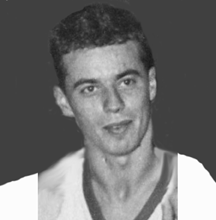
(Inducted in 1998) A forward who took full advantage of his speed and skill to excel both as a goal scorer and play maker, Bernie Bennett enjoyed a very rewarding soccer career and contributed greatly to soccer from 1956 to 1990. In addition to great success as a player, Bennett made significant contributions to the sport from an administration and a coaching perspective. His career started in 1956 while he was a student at St. Pat’s High School in St. John’s. He was a member of three championship teams and won one scoring title. He played junior soccer for St. Pat’s from 1957 to 1969 and was a member of two St. John’s championship teams. He played in the first provincial championship in 1960 in St. Lawrence. Only 16 when he played his first senior game in 1957 with St. Pat’s, he remained with that club until 1960 and moved to Holy Cross in 1961. From 1966 to 1971, he was a member of St. Pat’s and London Lions senior clubs. As a senior soccer player, Bennett was a member of six St. John’s championship teams, won two scoring titles, won one St. John’s MVP and one provincial MVP. In 1970 he was co-captain with Bill Matthews for the only provincial senior all-star team that entered national Challenge Cup competition. The team placed fourth. His playing career ended in Mount Pearl recreational ball in 1977. Bennett coached, along with Herb Jenkins, two Mount Pearl teams that won provincial titles and one team that won an Atlantic championship. During the 1960s he served as St. John’s league secretary for five years. He was the first provincial minor soccer chair and filled the role of provincial registrar. In addition, as a sports reporter for 20 years, he functioned as a “friend to soccer” providing excellent newspaper coverage at both The Daily News and The Evening Telegram. His great efforts had him inducted into the St. John’s Soccer Hall of Fame and the Mount Pearl Sports Hall of Fame.
Scott Betts
For over 30 years, Scott Betts has been impacting the growth and development of soccer at all levels of play. Since his arrival from Ontario in the late 1980’s, Scott has been a Provincial Coach with NLSA, Head Coach with Memorial University, served two regions, Mt. Pearl and St. John’s as their Technical Director and has coached Jubilee Trophy and Challenge Cup teams to provincial championships.
Scott’s keen eye and patient approach has resulted in many youth players reaching their potential and success at the university and senior level. His many youth teams at the club and provincial level have also been blessed with both Provincial and Atlantic championships.
Jumping from youth to senior teams and back again is not an easy task. Scott’s record of a provincial Challenge Cup championship, 8 eight Jubilee Trophy championships, two AUS and three Jubilee Trophy Coach of the Year awards, certainly suggests that he has mastered the ability to move from one to the other.
Charlie Bhnisch

(Inducted in 1985) Charlie Bhnisch’ s exceptional career as a top-level goalkeeper for Holy Cross in the early 1950s helped the club to a pair of St. John’s championships, and while his playing career was relatively short, his contributions as a coach and executive member were extensive and extremely valuable. In the 1960s and into the 1970s, Bhnisch assumed coaching duties with the Holy Cross senior club and his knowledge and leadership played major roles in establishing the foundation of the teams that dominated provincial senior male soccer during the late 1970s and into the 1960s with a national championship being earned in 1988. A tireless volunteer, Bhnisch served extremely well within the St. John’s soccer scene. His valuable contributions were made at both the senior and minor levels. An individual who always expressed his opinions, his advice, similar to his work, was straightforward and was often sought and followed. Soccer, especially in St. John’s but also within Newfoundland and Labrador, is simply better because of the involvement of Charlie Bhnisch.
Alfred Breen

(Inducted in 1989) Alf Breen was one of the most talented and successful soccer players to perform at the Ayre Athletic Grounds and the perennial all-star centre-half was a standout player in provincial competition and in a large number of exhibition games against a variety of visiting teams. Quick as well as fast, his determination and will to win were major ingredients in a career that spanned 20 years, from 1944 to 1963. Always displaying exceptional knowledge of the game as it was played during his era, Alf Breen was a consistent beneficial factor for the talented Holy Cross club that dominated St. John’s soccer for seven seasons. From 1950 to 1956, he played a major role in Holy Cross emerging as city champions from a league that involved amazing competition and fan interest that brought more than 500 fans to each and every game. Working the most difficult centre-half position, Alf Breen was effective both offensively and defensively and often controlled the centre area of the pitch with impressive play and rewarding skill. His overall soccer ability came to the forefront even though he was facing extremely strong opposition. His contributions to Holy Cross and the club’s success, was highlighted by his selection as the league’s Most Valuable Player in 1962. He was simply an exceptionally inspired soccerist with plenty of skill and talent. Playing during a period when football five’s was part of the sports scene, he stood out for Holy Cross as the team won more than its share of medals. Named to many, many all-star teams for exhibitions with teams from visiting British and Canadian ships and from St. Pierre and Miquelon, he was always one of the better performers for St. John’s. With provincial championship play just coming into being, Alf Breen earned a reputation for exceptional soccer against teams from the Burin Peninsula, especially St. Lawrence, and Corner Brook. Captain and first string centre for Holy Cross hockey teams in the late 1940s to the mid-1950s, he led the club to five Boyle Trophy finals and bowled a perfect 450 game in five-pin bowling at Holy Cross Alleys in the early 1950s. Alf Breen’s sons Bill, John and Bobby have been inducted into the Newfoundland and Labrador Soccer Hall of Fame.
Bill Breen

(Inducted in 2003) Bill Breen ranks with the finest soccer players to ever perform within Newfoundland and Labrador, and his outstanding personal soccer skills and talents coupled with an excellent approach to the game, resulted in a great career that earned respect and admiration for more than 30 years. Strong and quick, determined and always willing to learn, Bill Breen’s fine attitude towards soccer contributed as much to his success as his skills. He possessed a rewarding ability to control and place a ball that was always impressive. A fearless defender who never shied away from the physical aspect of soccer, he fully used his height and strength and was especially effective in heading balls away from his goal area. From his centre mid-back position, Bill Breen’s fine passing, often covering a long distance, was a major weapon in his team’s attack effectiveness. While he was particularly skilled in defending his own zone, he was also exceptional in allowing his team to go very quickly on the attack and to turn the tide of a game. His defensive skills were extremely beneficial to his team’s offensive effectiveness. Combining with his brother John, he provided the dominating Holy Cross clubs with valuable and vital strength up the middle. This was a major factor in the unmatched Holy Cross record of 15 consecutive St. John’s first division championships. While he was certainly a goalkeeper’s best friend, Bill Breen had an extremely strong and accurate shot that often made him a scoring threat on free kicks. Bill Breen’s soccer career began in 1970 when he started playing St. John’s minor soccer and it continued through a 1973 season with the championship St. Pat’s Junior High squad and through four St. John’s and Newfoundland and Labrador championships with Brother Rice High School. It was in 1974 that he joined the Holy Cross first division club that won the City title until 1989. He continued with Holy Cross until 1992. As a member of the Holy Cross masters team he has five St. John’s and three provincial titles. With 11 provincial titles, Bill Breen was a member of Holy Cross squads that represented Newfoundland and Labrador in the national Challenge Cup championships earning one gold medal, one silver medal and one bronze. An all-star every year of his soccer career, he was voted Most Valuable Player three times in five appearances at the Atlantic Challenge Cup playoffs. A member of the 1977 Canada Summer Games bronze medal team, he was voted top defender in St. John’s first division play eight times and most valuable player three times, his soccer career was highlighted by his selection to play for Canada’s national junior team at the 1975-76 CONCACAF tournament in Puerto Rico. He enjoyed considerable success as a hockey player and is a member of the Newfoundland and Labrador Hockey Hall of Fame. His father Alf, brother John and deceased brother Robert have been inducted into the provincial soccer hall of fame.
Bobby Breen

(Inducted in 1992) Bobby Breen was a stand out player during his era of competition, equal to any other performer of that time period, teammate or opponent. Graduating from a very rewarding minor and school soccer career, this talented back was an extremely important member of the great Holy Cross teams that dominated local and provincial soccer between 1980 and 1990. Simply a cool, calm defender who always took care of his responsibilities, he was the type of player of whom outstanding teams are comprised. Often playing in the shadow of his two older brothers, Bill and John, he went about his job in an extremely competent manner, gaining the full respect of those who played with him and those who played against him while gathering fan approval for his always impressive performances. Bobby Breen was a great team player who possessed exceptional personal skill and ability. A great defender, he brought a calm sense of urgency to keeping the ball away from his goal and used a very, very good understanding of defensive soccer to accomplish his goals. His ability included a valuable consistency in turning attacks around and he was a major factor in the Holy Cross trademark of moving quickly and easily from defense to offense. Excellent passing skills, a very accurate kick and the ability to carry the ball well through the centre field area, were activities at which Bobby Breen stood out. He contributed greatly to the record ten consecutive St. John’s senior championships that Holy Cross recorded, was vital in the five provincial senior titles earned by the club and contributed a great deal to four Atlantic championships earned by Holy Cross. When Holy Cross shocked the Canadian soccer world by sweeping the 1988 national Challenge Cup in Saskatoon, Saskatchewan and didn’t allow any goals, Bobby Breen was a very important aspect of the gold medal effort and the tournament shutout record. He was similarly important in the 1989 Challenge Cup silver medal effort and the 1981 Challenge Cup bronze medal effort. Bobby Breen was an extremely valuable member of the great Holy Cross club that was designated “Team of the Decade” and was inducted into the St. John’s Soccer Hall of Fame in 1992. His father Alf and brothers Bill and John are also members of the Newfoundland and Labrador Soccer Hall of Fame.
John Breen

(Inducted in 2003) An exceptional detailed knowledge of the game, an uncanny ability to read game situations and conditions immediately, supported by outstanding personal skill and talent, highlighted the tremendous soccer career of John Breen that enjoyed extremely impressive success for more than 30 years. John Breen was able to control games with the same high level of expertise that he could control a soccer ball. A play starter with great peripheral eyesight, his crisp, well-placed passes continuously allowed his team to apply offensive pressure on opponents and was often the main factor in generating great scoring opportunities. He was the “setup” player on numerous successful occasions. It was his great mid-field presence that controlled the exceptional defense that was the trademark of teams for which he played. On the attack or on defense, John Breen provided an extremely efficient soccer presence and it was this presence that greatly benefited a long line of outstanding soccer teams. His personal willingness to always play “all out” no matter what the sacrifice and the manner in which he provided leadership were valuable assets in an unbelievable career. Simply said, many players and many teams were much better soccerists because John Breen was a member or a teammate. His centre mid-field skills were extremely beneficial to his team’s offensive and defensive effectiveness. Combining with his brother Bill, he provided the dominating Holy Cross clubs with valuable and vital strength up the middle. This was a major factor in the unmatched Holy Cross record of 15 consecutive St. John’s first division championships. John Breen has the great record of having earned two national soccer championships. He was a member of the under-18 team that won the national in 1974 and was back as vital contributor to Holy Cross first division club that won the 1988 national Challenge Cup title. He was a vital factor in Holy Cross claiming a national silver medal and a national bronze medal at national Challenge Cup. Playing St. John’s minor soccer from 1970 to 1974, he was a member of the St. Pat’s Junior High squad in 1972 and led Brother Rice High to two St. John’s and two provincial titles between 1972 and 1975. He was voted most valuable player in 1974 and 1975. He was selected as the provincial player of the decade for the 1980s, a recognition that was well earned and demonstrated the respect that he received from soccer people. He was a member of the 1977 Canada Summer Games bronze medal team. During his 15 consecutive St. John’s first division championships and 11 provincial championships between 1974 and 1992, John Breen was selected as the league’s most valuable player four times and earned a berth on St. John’s and provincial all-star teams every year of his career. During five appearances at Atlantic Challenge Cup championships, he earned two MVP selections. His master soccer stint with Holy Cross has yielded five St. John’s titles and three provincial championships. He enjoyed considerable success as a hockey player. His father Alf, brother Bill and deceased brother Robert have been inducted into the provincial soccer hall of fame.
Laura Breen
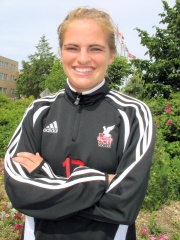
Throughout her career, Laura Breen had demonstrated that she was one of, if not the premiere soccer player of the modern era. That designation was verified by the Newfoundland and Labrador Soccer Association naming her Female Player of the Decade (2000 to 2009). Her accomplishments were many over that period. She had been an all-star in Jubilee Trophy and university competition, as well as winning scoring, top defender and MVP recognition in both competitions. She had twice been named Sport NL and Memorial University's Senior Female Athlete of the Year. She has been a St. John's Athlete of the Year, and was twice named NLSA's Senior Female Player of the Year. On two occasions, she represented Canada at the World University Games and had received three invitations for tryouts with Canada's national teams.
Frank Brenton

(Inducted in 2000) Frank Brenton had a soccer career that started in 1958 and continued in masters competition. His success and awards are startling and clearly demonstrate his outstanding ability at all levels of competition. In the beginning, Brenton moved up through minor soccer in Burin and includes being selected to the Burin Peninsula All-stars while 16 and winning three junior MVP awards. In 1970, while playing for Marystown he was named to a provincial all-star squad for national play and earned two more MVP awards. Between 1971 and 1981 Brenton was a member of Feildian teams that won three St. John’s championships, won another MVP award, was voted to three St. John’s all-star teams and played for the St. John’s club that won the 1981 Atlantic championship in Nova Scotia. His St. John’s indoor soccer statistics include three league championships, 16 consecutive all-star selections and ten MVP awards. Being named in 1994 as one of the top ten players to ever play in Newfoundland and Labrador was another recognition of his great ability. As a coach, Brenton continued his soccer success. He won St. John’s and provincial championships as coach of female teams between 1976 and 1983 including the first provincial title in ’76. As coach of male clubs he was one of the most successful in the St. John’s league with Stanley Steamers and Celtics in 1985, 1986 and 1987. His soccer knowledge allowed a large number of young players to simply become better players.
Fred Brien

(Inducted in 2009) Fred Brien began his soccer career in 1937 as a mid-teen while playing senior soccer with Mount Cashel in the St. John’s League. He quickly earned the respect of other players of the day by demonstrating a skill level and an understanding of the game way beyond his years. In 1945, returning from the war, his mastery of the ball not missing a beat, he helped lead Mount Cashel to St. John’s Senior Championships two years running. In 1947, he played a major role in leading Holy Cross to city championships in 1950, 1951 and 1952. When the first Provincial Championship was held in 1950, he played a key role in Holy Cross winning the first provincial championship. For his role as a player, he was inducted into the St. John’s Soccer Hall of Fame.
Clarence (Clar) Brooks
Clar Brooks enjoyed a very successful soccer career spanning more than 25 years. In the mid 1950’s at the age of 15, he earned a spot as a forward with his Grand Bank Gee Bees. From there, his versatility found him playing every position except goalkeeper. Noted for his tenacity, physicality, and fitness, when he tackled you on the field, you certainly became aware of his presence. Although most of his career was on the smaller fields using a 5-3-2 system, he was able to adjust and be effective on the larger fields of the 1970’s as his team switched to 4-3-3.
Clar was also a valued member of the 1960’s Grand Bank teams as they were named NLSA’s Team of the Decade. During that time period, they won two provincial championships. In the 1970’s, he played a major role in Grand Banks’ four successive trips to the Challenge Cup final, winning the right to represent the Province at the National Challenge Cup finals in 1974.
Doug Brown

(Inducted in Doug Brown’s soccer skills and talents extended from all-star centre to knowledgeable referee. Always displaying a great love for the game he mastered so well, he was as adept with a whistle as he was with a ball and he combined an extremely wide grasp of soccer with his natural athletic ability. He grew up in a soccer society in Scotland and when he moved to Newfoundland after marrying a St. John’s girl during the Second World War, he retained his impressive soccer knowledge. Brown was a centre forward with a strong Guards club in the St. John’s league and played all-star ball at the provincial and exhibition levels. Very tall, he was masterful with his head as a large number of opposing keepers discovered and used his height to the utmost advantage. He was both quick and fast, always able to move around opposing fullbacks displaying his great talent with ball dribbling. And he climaxed his attack with an extremely accurate and extremely hard and fast shot. He carried his great soccer knowledge and love into his officiating career. Always on the play because of his speed and uncanny knack to anticipate plays, he earned the respect and admiration of players and fans alike. In addition to his supreme knowledge of the rules and regulations, he clearly understood the conditions under which players performed and made his calls accordingly. Doug Brown has been inducted into the provincial golf hall of fame.
Joe Browne

When comparing Joe Browne to the modern day soccer player, one would have to say that although he was not more than five foot five, he played as big as any player on the field, displaying a passion and drive that would be a model for any young player to emulate. His grit, determination and technical ability made him a feared, yet respected competitor throughout the province. Wearing the captain’s arm band, he led by example. Considered to be one of the fittest players of his era, he was one the engines of the St. Pat's teams of the 1960s. His leadership on and off the field was rewarded with MVP recognition. His size was never a factor when it came to scoring. Throughout his career, he was always a leading scorer on his team and in the league. His touch around the goal led to two scoring titles while leading his team to seven St. John's and one provincial championship. When St. John's established its Hall of Fame, he was a member of the first group recognized. The attributes of leadership, grit, determination to go along with a remarkable scoring touch, made him an obvious first group selection.
John Browne
(Inducted in 2013)
For more than 40 years the sport of soccer has benefited from the reporting and columns of John Browne. Whether it was a story on the game or a personality involved in the game, one could always expect a fair and open assessment of whatever he was writing about.
Throughout his career as a reporter, John has taken the time and paid particular attention to getting the facts when he delved deeply into a story. When writing about or highlighting the senior programs or senior players of NLSA, one could expect a thought provoking account of the issue. When youth programs started to unfold, he was there taking the time to identify and promote the youth players and youth programs. His timely columns and articles have helped keep soccer a year round sport in the eye of the public. Being kept in the public eye, has certainly helped soccer experience a huge growth in its registration numbers.
Joy Burt

(Inducted in 2001) Joy Burt’s soccer career lasted 14 years and included exceptional success as a player coupled with outstanding contributions as a builder. These two aspects of her career combine to make her a top level individual within provincial soccer. In 1972 she played a major role in the establishment of the province’s first female soccer league, the Corner Brook Ladies soccer league. This aspect of her career continued as she was appointed provincial female chair by the provincial soccer association in 1976 and she filled this position for two years with a level of success that contributed greatly to the firm foundation upon which female soccer is based today. Joy Burt was an important person involved in bringing female soccer within Newfoundland and Labrador to the high profile to which it is entitled and which it occupies. Her playing career also started in 1972 within the Corner Brook ladies league and continued with well-earned rewards until the early 1980s. She was a striker who could score goals on a frequent basis, something opposing teams and players quickly discovered. Joy Burt was quick as well as fast, could trap and dribble a soccer ball with exceptional skill and possessed a passing talent that often put her teammates in scoring situations or denied opposing players a dangerous attack on goal. She was simply a very good, very skilled soccer player. In addition to her on-pitch playing ability, Joy Burt provided important leadership on the field and off the field. She led by example and was an extremely smart player who could quickly adjust to offense from defense. She handled the ball with great speed and great shooting accuracy. Within local and provincial soccer Joy Burt was an individual award winner, earning several Corner Brook scoring titles and more than her share of Most Valuable Player trophies, both in the regular schedule and during the playoffs. When provincial female soccer championships were introduced in 1976, Joy Burt was Corner Brook’s leader and most dangerous player. Opposing coaches and players displayed great respect and great caution when facing Joy Burt. She was the best Corner Brook player and, more often than not, the best player in a particular game against teams from St. John’s. Her exceptional ability at the local and provincial levels of competition had her selected by the provincial soccer association as its “best female soccer player within Newfoundland and Labrador for the 1970s”. It should be noted that in earning this prestigious designation, Joy Burt faced great competition from a very elite group of female athletes who played soccer. While attending Memorial University in St. John’s, Joy Burt earned a position on the 1984 university varsity squad and was a stand out performer in Atlantic university play. She was voted provincial female athlete of the year four times and St. John’s female athlete of the year for 1986. In addition to her great soccer career, Joy Burt was an international calibre power lifter and represented Canada in several world championships.
John Canning

(Inducted in 1985) Regarded by the vast majority of the individuals who saw him perform as the greatest natural athlete the province has ever produced, Jack Canning had a varied and outstanding athletic career that earned him almost automatic election to the Newfoundland and Labrador Sports Hall of Fame. During the early 1900s, Jack Canning played every sport that was available in the St. John’s area and played them all with amazing ability, exceptional success and very evident leadership for every team of which he was a member. Jack Canning was a member of four Terra Nova hockey teams that won the Boyle Trophy and the St. John’s championship. He received a medal for throwing a cricket ball a record 343 feet, ten inches. In track and field, he was the top member of winning St. Bon’s relay teams, held the 440 yard record and regularly won 220 yard dashes and the javelin. A perennial all-star baseball pitcher, he was always among the league’s top batters and could play any position with equal effectiveness. He was recognized as one of the best halfbacks to ever play soccer in St. John’s and excelled in many races at the St. John’s Regatta. A great cross-country skier, Jack Canning was a founding member of the Newfoundland Hiking Club and played an important and very prominent role in the Boy Scouts movement within the province. In respect of his outstanding athletic career that featured tremendous success in every sport available, Jack Canning was inducted into the Newfoundland and Labrador Sports Hall of Fame during its inaugural banquet October 13, 1973.
Charlie Chaytor

(Inducted in 2009) Charlie Chaytor has served the soccer communities of St. John’s and Mount Pearl for more than 30 years as a player, coach, referee and administrator. Although his playing career didn’t produce any championships, it was split between the Guards Junior and Mac United Senior teams in the St. John’s League. Being described as a “no nonsense” person and a person who could get the job done, he played significant roles in organizing the St. John’s Referee’s Association in 1961 where he refereed for five years, and in the formation of the Mount Pearl Soccer Association in 1972. While serving on the executive of the MPSA, he played major roles in organizing Mount Pearl’s first Referee’s Association and organizing the men’s Senior Recreation League. In addition to his executive duties, he found time to coach and referee within the minor program. For his efforts as a builder he was inducted into the Mount Pearl Soccer and the Mount Pearl Sports Halls of Fame.
Guy Clouter

(Inducted in 2007) Guy Clouter fashioned a 20-year soccer career that was filled with goals and added an extremely impressive successful and rewarding coaching performance. His play on the pitch and his contributions off the pitch established him as an exceptional soccer player and an exceptional soccer coach. Born July 11, 1936 in Catalina, he put together a playing career that earned him a starting berth on high-level teams in three separate high-level leagues. Owner of great skill and talent, especially as a goal-scoring centre-forward, he continuously demonstrated the ability to put the ball in the net. Overall, he added greatly to any team of which he was a member. He began playing soccer at the age of 14 with the Fortune senior soccer team. From 1953 to 1956 he played with Canadian Air Force teams in Cold Lake, Alberta and North Bay, Ontario. He played with the Fortune Apollos from 1957 to 1959 as well as playing in 1950 with MacUnited in the St. John’s League in 1959. He returned to Fortune to play with Apollos in 1960. Drawing on his excellent knowledge of soccer and seeking to return something to the game he loved, he included extensive worthwhile soccer coaching in his sporting activities from 1959 to 1984. In 1967 at the age of 31, Guy Clouter retired from playing soccer and began coaching the Fortune junior team with tremendous success. For the first time, Fortune won the Burin Peninsula junior championship. Under his expert coaching the club won in 1967, 1968 and 1969. In addition, Fortune earned the 1967 provincial junior championship with a great deal of talent and teamwork. Two years later, in 1969, after 18 years of soccer, Guy Clouter made a playing comeback at 33. He rejoined the Apollos and scored an amazing 17 goals in six games. Two of these goals came at the incredible speed of less than 30 seconds. In another game, he scored no less than six goals. It should be no surprise that he won the Burin Peninsula senior goal scoring championship for 1969. Continuing to give something back to soccer, in 1988 he served as president of the Fortune Soccer Association. He is a member of the Burin Peninsula Soccer Hall of Fame.
George “Bow” Collier Jr.

(Inducted in 2000) George “Bow” Collier enjoyed exceptional scoring success during a 25-year soccer career that saw the very skilled athlete establish himself as one of the finest scorers to ever play the game in Newfoundland and Labrador. An indication of his prowess is demonstrated by his selection as the province’s “Player of the Decade” for the 1960s. His career is overflowing with games in which he scored a multitude of goals, including one seven-goal performance against Garnish and three five-goal games with Guards in the St. John’s league in 1967. He was the league’s scoring leader and led Guards to the title. His career started with school, junior and senior soccer in his native Fortune and in 1968 he played the major role in a Burin Peninsula title for Fortune. Collier was an award winner while playing for Grand Bank GeeBees and contributed to their success. Every club with which he played was better because of his presence as he scored goals galore, won numerous scoring titles as well as often being judged the player who best combined sportsmanship and ability. Collier’s play was such that he attended the 1971 national tryout camp in Ontario and toured England and Scotland with a provincial select team. He was captain of the Burin Peninsula all-stars who took the “Come Home Year” tournament over St. John’s and St. Pierre and provided important leadership for Fortune clubs that won three consecutive senior “A” titles between 1975 and 1977. After attending two national coaching clinics, he filled the role of playing-coach with six Fortune clubs and was instrumental in Fortune taking three masters championships.
George “Nick” Collier Sr.

(Inducted in 1985) A tremendous centre-half for a long list of very competitive Fortune teams, George “Nick” Collier earned great respect as one of the finest players the Burin Peninsula produced. His 20-year career was overflowing with outstanding performances and featured soccer talent, skills, ability and determination that was extremely impressive. His presence in a Fortune uniform and his overall soccer leadership made certain that Fortune clubs were extremely competitive within Burin Peninsula play and in games against other provincial teams and squads from St. Pierre and Miquelon. “Nick” Collier was simply an exceptional player who greatly benefited the clubs for which he played. Blessed with speed, agility, excellent shooting and passing skills, he developed a great passion for soccer and it all came together on the pitch. His knowledge of the game was high and he was able to turn his expertise into great play for his team. He possessed the great ability to provide impressive defensive leadership while being able to change quickly to an offensive excellence that allowed Fortune to always break a game open when he was in uniform. Playing during a period that boasted some of the best soccer players the province ever produced, George “Nick” Collier more than held his own and earned a great reputation. His son George “Bow” Collier followed his father’s soccer footsteps and is also a member of the Newfoundland and Labrador Soccer Hall of Fame.
George Cooper

(Inducted in 2007) Soccer in Grand Bank, on the Burin Peninsula and throughout the province of Newfoundland and Labrador has benefited because of the great contributions of George Cooper. He ranks with the finest community volunteers within the province and has been very much involved with every aspect of soccer within Grand Bank and on the Burin Peninsula for more than 40 years. A Grand Bank soccer player from 1958 to 1985, he coached all levels of male and female soccer teams from 1970 to 2000 with exceptional success. This success includes gold medal teams in three successive Newfoundland and Labrador Summer Games, 1980, 1984 and 1988, a bronze medal at the 2000 Games, an Atlantic Under-18 female title, a national appearance and, very importantly, many seasons of coaching within the Grand Bank summer program. For 20 years he served on the Burin Peninsula Soccer Association as an executive member, including chair, and for seven years was the Burin Peninsula Director for the provincial soccer association. Many, many people have benefited greatly because of his exceptional soccer knowledge and because of the great concern he has demonstrated with an apparent willingness to devote his time and expertise to soccer. He has certainly been a fine servant of the sport, especially on the Burin Peninsula, often working with his wife Judy. Elected to Grand Bank Council for 15 years, George Cooper was deputy mayor and contributed greatly to an endless number of very worthwhile projects and events outside of soccer. He was named winner of the provincial Pitcher Plant Award for 2002 in recognition of his exceptional service to recreation and has received many, many other well deserved individual awards. He is a member of the Burin Peninsula Soccer Hall of Fame. George Cooper is simply a caring individual who has been very willing to provide a wide range of volunteer contributions to make things better. He has been a fine neighbor and a willing servant, especially within the soccer community.
Herb Coultas

(Inducted in 1985) An extremely impressive athletic career followed by an exceptional officiating career earned Herb Coultas election to the Newfoundland and Labrador Sports Hall of Fame. He was among the finest local athletes in cricket, soccer, rowing and track and field during a 25-year period that started in 1905 and this was followed by some of the best soccer and hockey officiating of his time. It was by winning a 75-yard dash at the 1905 winter indoor sports that Herb Coultas started his career. His athletic endeavours started with the Methodist Guards and continued with the group until it became the Guards Athletic Association. He was a member of Guards, Crescents and Victorias hockey teams that won the Boyle Trophy and the St. John’s championship. He performed for Collegian and Guards teams that captured St. John’s soccer championships. Often elected captain of the hockey and soccer clubs, he earned a great reputation for providing outstanding leadership to the teams. Calling on his long experience and possessing a great deal of technical knowledge, Herb Coultas earned a universal reputation for fair and unbiased refereeing of all levels of soccer and hockey. He gave freely of his time to officiate school and senior hockey and soccer during a long period of time. The Guards AA bestowed an honorary life membership on him for his continuous service to the organization. For his brilliant career as an outstanding athlete and for the important impact of his officiating, Herb Coultas was inducted into the Newfoundland and Labrador Sports Hall of Fame April 24, 1976.
Bren Curtis

(Inducted in 1999) Bren Curtis’s soccer career began while he was a student at Holy Cross High School and continued in a variety of capacities until he served as provincial association president in the late 1960s. As a player, coach and administrator, Bren Curtis played a major and contributing role with St. John’s and provincial soccer during a period of time that the sport was expanding and improving. Following exceptional personal and team success at the school level, Bren Curtis joined the junior and then senior Holy Cross clubs as an outstanding fullback. He was a member of the Holy Cross teams that opened the organization’s impressive domination of St. John’s soccer and rewarding involvement in provincial competition. He was a member of Holy Cross teams that won five St. John’s championships. When the provincial soccer association was founded in 1950, Bren Curtis was finishing his playing career and moving into the coaching aspect of the game. His detailed knowledge of the game, his ability to generate the best from players individually and collectively and his willingness to devote time and energy to coaching did him well as he led Holy Cross, St. Pat’s and London Lions teams to exceptional success at the St. John’s as well as the provincial level of soccer competition. He held a number of important executive positions, first within St. Johns soccer and later within provincial soccer filling the role of provincial president with great distinction from 1964 to 1967. Bren Curtis was involved with soccer during a period of time when it was the dominant sport in St. John’s and on the Burin Peninsula and competition at all levels was intense. His skills and ability as a player were considerable and his devotion and success as a coach were very successful. Bren Curtis carried his playing and coaching skills into his executive positions and soccer is better off because of it. As a player, coach and administrator, Bren Curtis was inducted into the Newfoundland and Labrador Soccer Hall of Fame.
Fiona Curtis
Fiona Curtis was one of the most dominant central midfielders of her generation and a leader on the
pitch. A gifted technical player, Fiona often combined her abilities on the ball with a high level of
communication to create plays with a great deal of deception. While she primarily played centrally in
the midfield, Fiona also possessed great defensive instincts and 1 v 1 defending ability, making her one
of the most versatile players in the game. She was admired by her teammates and competitors as being
a hard-working, skilled playmaker with a high level of fitness. Fiona was a strong communicator and was
known for her competitive edge and high soccer intelligence. While Fiona has won MVP awards in many
provincial competitions over the years, a major individual milestone was being named Rookie of the
Year for AUAA (now AUS) as a member of the Memorial University Seahawks in 1996. She was also
captain of the NLSA Canada Summer Games Team in 1997 and co-captain at MUN from 1999-2000. In
AUAA play, Fiona was a first team All-Star selection in 2000. Also in 2000, she was named an Academic
All-Canadian and inducted into the Memorial University Athletic Honour Society.
Rod Drake
Whenever the name of Rod Drake is mentioned, the usual response is “outstanding goalkeeper.” Blessed with sure hands and quick feet he established himself as one of the premiere goalkeepers of his era. When it came to making the big save when the game was on the line, you could always count on him to make the save, especially if was a penalty shot. During his career, he won four Burin Peninsula championships and three Challenge Cups, one with Lawn and two with Burin. In addition to his championships, Rod won the MVP award on two occasions, was named top goalie on three occasions, and had three all-star selections.
Sarah Drake
Early in her soccer career, Sarah Drake demonstrated that she was going to be a player of record and establish herself as one of the Province’s outstanding female players. As a youth player, playing in the Burin Peninsula Senior Women’s league, she began to demonstrate her talents as she was a Top Scorer and named MVP on four occasions.
While playing for Cape Breton University, her exceptional talents earned her recognition as an Atlantic and Canadian University MVP and 1st.Tteam All-Star. In addition, she was an AUS Top Scorer and Rookie of the Year. Her outstanding accomplishments were recognized by NLSA as she was named NLSA Youth Player of the Year and twice named NLSA Senior Player of the Year.
The high light of her career was in 2003, when she was named to the Team Canada University Soccer team to represent Canada at the World University Games in Seoul, South Korea. Sarah has also been inducted into the Burin Peninsula Soccer Hall of Fame.
Noel Doyle
During a 17-year career with the St. Lawrence Laurentians and his time with the 1985 Canada Games team, Noel Doyle demonstrated that he was an impact player. Whether he was playing as a striker, midfielder or central defender, he had the ability to take control of the game and lead his team to success. This leadership was evident early in his career as he captained his Canada Games team to a 5th place finish. With the ability to play any central position, Noel played a major role in helping St. Lawrence to win seven Challenge Cup championships in a span of eight years during the 1990’s. His bronze medal at the National Challenge Cup in 1999, was one of the highlights of his career. During his string of Challenge Cup victories, he was recognized with an MVP and a Most Sportsman-Like Player award. In addition to his Challenge Cup success, he was a two-time winner of the Premier’s Cup provincial championship.
Roland (Junior) Doyle

(Inducted in 2011) Versatility is one of the keys to being successful. For almost forty years Junior was able to take on any role or position on the soccer field. From being a goalkeeper, a striker or a playmaker, he was up to the task to fill the need for his team. Although most of his success was with St. Lawrence, he did help CBS with two 2nd.Division Provincial Titles in the 1980's. It was however, his years with his St. Lawrence Laurentians that his overall play stood out. During this time he received individual recognition with scoring titles and MVP awards. As well, he helped St. Lawrence win Burin Peninsula, Provincial Challenge Cup and Atlantic Soccer Championships. He was also part of the St. Lawrence team which won silver medals at the Eastern Canadian and National Challenge Cup Competitions as well as two gold medals at the Eastern Canadian Masters Championships. Junior is a member to the Burin Peninsula Soccer Hall of Fame and a member of the St. Lawrence team which was named NLSA Team of the Decade for the 1970's.
Ben Dunne

(Inducted in 2011) For over twenty years the growth of women’s soccer has steadily increased in numbers and in technical capability. This ongoing success can be attributed in part to the efforts of Ben Dunne, particularly in the late 1980s and 1990s. His efforts at the club level with Mount Pearl minor and later at the Provincial Team and senior women’s level is why female soccer is strong across the province. On the coaching side, Ben coached teams from U-8 to U-18 leading Mount Pearl teams to seven straight Provincial Championships. As a senior coach, he was head coach of the Newfoundland and Labrador 1993 Women’s Canada Games Team and twice coached teams to the Provincial Jubilee Trophy Championship. In addition to his coaching, he has worked in many capacities at the executive level to help raise the profile of women’s soccer. For his efforts as a Builder, Ben has been inducted into the Mount Pearl and St. John’s Soccer Halls of Fame and the Mount Pearl Sports Alliance Hall of Fame.
Gord Dunphy
A career which spans almost 50 years, Gord Dunphy has experienced and contributed to just about every aspect of the game. Whether as a player, coach or administrator, he achieved success and helped moved the game to the next level. Upon entering the coaching ranks in the 1980’s his teams immediately achieved success with a number of BPSA and Provincial championships. However, it was the 1990’s where he displayed his coaching success as his St. Lawrence Laurentians won three Challenge Cup titles, a National Challenge Cup Bronze medal, named NLSA Coach of the Year and had his team named NLSA Team of the Decade for the 1990’s designation.
After stepping aside from coaching, he immediately immersed himself in the administration side of the game, serving at the local, regional and provincial levels. While serving as the NLSA’s Vice President Senior Men, Gord played a major role in implementing changes to all levels of senior competitions and to discipline. His tenure with NLSA saw him Chair or serve on a number of NLSA committees. For his efforts, he has received the NLSA Executive of the Year award, and been inducted into the St. Lawrence and Burin Peninsula Soccer Halls of Fame.
Shane Dunphy
For nearly 30 years, Shane Dunphy has been striving to preserve and grow the game of soccer on the Burin Peninsula. Whether at the community, regional or provincial level, his involvement has been instrumental in the resurgence of the game in the region. Recognizing that he had to lead by example, Shane soon found himself involved at every level of the game. Organizing at the grass roots level was his first task as he became President of the Marystown Soccer Association. From there he moved to be President of the Burin Peninsula Soccer Association and then to the board of NLSA. One of his major accomplishments was the return of the BPSA to the Provincial “A” tournaments. In order to have good teams, you had to have coaches to work with and develop players. Recognizing this, Shane immersed himself in coaching and quickly found himself moving up the coaching ladder, culminating with a Provincial “B” certification and an assistant coach position with the NLSA’s Canada Games team. For his commitment and dedication to the game at all levels, NLSA has saw fit to recognize him with two of their most prestigious awards, the Executive of the Year and the Volunteer of the Year awards. In addition to these awards, he has received the SportNL and Investors Group Volunteer of the Year awards. Shane has also been inducted into the BPSA Hall of Fame.
Stephanie (Rose) Dyer
Stephanie (Rose) Dyer established herself as an impact player in two regions of our province where women’s soccer was played.
During her youth years, she was skilled enough to play with both the girl’s and boy’s teams from Grand Bank. In the early eighties, Stephanie began her senior career playing with Fortune and Grand Bank, winning the Burin Peninsula Women’s championship in 1984 with Grand Bank and was named MVP. In 1983 and 1985 she won the scoring title.
In 1985 Stephanie moved to St. John’s and continued her senior career with Stanley Steamer and Celtics, winning the St. John’s league twice. In 1986 she won the provincial women’s championship along with the MVP award and represented the province at the national women’s Championships.
Stephanie’s years at Memorial University were also rewarding as she twice finished second in AUS competition and was twice named a First Team all-star. For her efforts at Memorial, she was named to the Athletic Honor Society and the recipient of the Graham Snow award for her Outstanding performance in Sport and Academics. She was also inducted into the Burin Peninsula Soccer Hall of Fame.
Mike Edmunds
Mike started refereeing with St. John’s Minor soccer at the age of 10, then rapidly worked his
way through the development channels to complete his referee classifications. By the age of
22, Mike was a Class 1 official and was selected to attend the U15/U17 boys all star nationals in
Saskatchewan where he officiated his first ever national final garnering the attention of Canada
Soccer officials. Mike refereed regularly in local and provincial competitions officiating numerous
Challenge Cup and Jubilee Trophy finals and went on to referee professionally in the North
American Soccer League (NASL) and at Canadian National Championships, and Canadian
University National Championships (CIS). Mike also officiated at the 2009 Canada Summer
Games in PEI. In recent years, Mike has contributed in various roles including six years as
NLSA Director of Officials, and is the current chair of the NLSA Judicial Committee, a role he
has held for three years. Mike is frequently asked for advice from other parts of Canada and is
working on becoming a national level assessor through Canada Soccer’s National Assessors
Program.
Clem “Junior” Edwards

(Inducted in 2001) Clem “Junior” Edwards amassed a soccer career that is superb within the athletic history of Newfoundland and Labrador. As a player, he ranks equally with stars like Harry Ennis, Wils Molloy, Joe Gulliver and Norm Kelly and, as a coach he ranks equally with coaches like Jack Simms, Andy Samuelson, Jack Lundrigan, George Welsh and Harold Walsh. He was simply that good and owns an amazing record of 50 championship soccer teams as a player or coach. Edwards’ achievements and contributions within soccer are equal to that of anybody in the history of the sport in Newfoundland and Labrador. As a player and a coach, Edwards has been an outstanding personality who performed with pride and efficiency on the pitch and with a dedication to coaching that makes him an excellent role model. His early ability was such that he earned a spot on the powerful 1968 St. Lawrence Laurentians at the age of 15 and, while winning five important individual awards, played a valuable role in the ten provincial titles that St. Lawrence won during the 1970s to be selected as the provincial team of the decade. On six occasions he played in national Challenge Cup competition with two silver medals to his credit as well as an Eastern Canadian championship. Selected to the 1970 provincial all-stars for national championships, he was captain of the 1973 Canada Summer Games club and earned MVP designation with the provincial minor team that played at Expo 67. He was selected for a tryout for the 1974 Canadian national team, training and playing with the club in Bermuda. Since completing his senior playing career, mid-fielder Edwards has been a member of ten St. Lawrence teams that have won provincial masters championships. During an exceptional minor soccer career, Edwards stood out in local, provincial and national competition. He was very coachable and gained important knowledge that he has passed on to literally thousands of young players. Blessed with natural talent, his dedication to the game and his determination to always do his best under all and any circumstances came together in a manner that has him regarded among the finest soccer players ever produced by Newfoundland and Labrador. A team leader, a skilled individual and a person who displayed great pride in his community and his sport, Edwards has been a credit as a player and a coach. He is the type of individual who would instill pride in any team with which he played or which he coached. His most successful coaching has been with the St. Lawrence Laurentians senior team but his expertise has been of great benefit to local, Burin Peninsula and provincial teams at every level of soccer. His coaching was extremely important in the eight provincial senior championships that the Laurentians won under his coaching during the 1990s and the latest Challenge Cup title in 2002. Edwards actually started coaching at the local St. Lawrence minor level in 1969 at the age of 16 and it was in 1980 that he began a 22-year provincial coaching contribution that has been extremely important for local and provincial soccer. His coaching approach has been of the same high calibre as his playing approach, and soccer is much better because of this. It should be noted that when he wasn’t coaching at the senior level, he provided very competent direction for age-group teams with equal success. An extremely large number of players are simply better because of Edwards’ coaching. His 39-year involvement with soccer has been of great benefit to the sport. He is a member of the Burin Peninsula Soccer Hall of Fame and the St. Lawrence Soccer Hall of Fame. The personal athletic record of Clem “Junior” Edwards:
- Selected for tryout national men’s soccer team and played with national team in international tournament in Bermuda
- Played on ten St. Lawrence teams in national Challenge Cup competition Coached eight St. Lawrence teams in national Challenge Cup competition
- Was a member of two St. Lawrence teams that won national Challenge Cup silver medals
- Coached St. Lawrence team that won 2002 national Challenge Cup silver medal
- Captain of 1973 Newfoundland and Labrador Canada Summer Games team in Burnaby, B.C.
- Member of Newfoundland and Labrador all-star team that played in 1970 national Challenge Cup competition
- Member of Newfoundland and Labrador bantam all-star team that entered Expo ’67 tournament at Montreal and selected as Most Valuable Player of the competition
- Member of St. Lawrence team that won the Eastern Canadian championship Provincial
- Member of St. Lawrence teams that won ten provincial Challenge Cup titles
- Coached eight St. Lawrence teams that won provincial Challenge Cup titles
- Selected as provincial Challenge Cup most valuable player five times
- Member of ten St. Lawrence teams that won provincial masters titles
- Voted provincial coach of the year for 2002 by Sport Newfoundland and Labrador
- Voted Newfoundland and Labrador Soccer Association coach of the year for 1996, 1997, 2001 and 2002
- Member of 1970s team of the decade for Sport Newfoundland and Labrador
- Member of two provincial high school championship teams
- Coached three provincial high school championship teams
- Assistant coach of 2004 provincial under-14 boys all-stars
- Member of provincial peewee champions and voted most valuable player
- Inducted into the Newfoundland and Labrador Soccer Hall of Fame in 2001 Local
- Started organized soccer career at 12 years of age and still playing after 39 years as master
- Won first championship when St. Lawrence defeated Lawn and he was selected as the MVP
- Became a member of the St. Lawrence senior team when he was 15
- Member of 15 St. Lawrence teams that won Burin Peninsula championship
- Selected athlete of the year for St. Lawrence Regional High School for 1971
- Inducted into the St. Lawrence Soccer Hall of Fame in 1996
- Inducted into the Burin Peninsula Soccer Hall of Fame in 1998
- Coached 2004 Burin Peninsula boys team for Newfoundland and Labrador Summer Games
- Coached 2004 St. Lawrence under-14 boys team
- Served as chair of St. Lawrence Soccer Association
- Served as chair of St. Lawrence Minor Soccer Parents Association
Colin Edwards
In a career that spanned over 30 years, Colin Edwards established himself as a team leader. Accepting the position of captain, he was determined to lead his Lawn Shamrocks team out of the Burin Peninsula's third division. His determination paid off as his Shamrock's went on to eventually capture three Burin Peninsula's first division championships and a Challenge Cup. From the central defender position, he established himself as an intelligent but tough and fearless defender while inspiring his teammates to victory. During his Challenge Cup years, he was named top defender on two occasions and was twice named to the all-star team. After his Challenge Cup years, he went on to play Masters with Lawn winning five provincial titles in five years.
Craig Edwards
During his 18 years of Challenge Cup competition, Craig Edwards, established himself as one of the top central defenders of his era. As team captain and leader on the field, he helped his Marystown team to its only provincial Challenge Cup championship in 2004. Leading by example earned him the respect of his teammates and that of his opponents. Displaying the skill sets of great defenders - dominance in the air and aggressive challenges on the ground - earned him the league's top defender award twice, and a MVP selection. To further support his recognition as one of the league's top defenders, he was named a Challenge Cup all-star defender on four occasions.
Leonard “Brud” Edwards
With a soccer career lasting more than 30 years, Brud Edwards demonstrated that he was one of the most skilled and creative players of his era. Recognized for his tenacity on the ball and a work ethic which was second to none, he played a major role in helping the Lawn Shamrocks be one of the teams to beat in the late 1980’s and early 1990’s. Although his team wasn’t flush with talent, Brud’s leadership and timely scoring played a major role in keeping the Lawn Shamrocks championship contenders. During that period his Shamrocks won three BPSA championships and one Challenge Cup championship. In addition, he was twice named a Challenge Cup all-star midfielder. Not willing to retire after his Challenge Cup days, Brud went on to earn five Provincial Masters championships. For his lifetime of soccer excellence, he was inducted into the Burin Peninsula Soccer Hall of Fame.
Scott Edwards
Being the last man back makes a lot of players uncomfortable. For over twenty years Scott Edwards stood tall and excelled as the last man back. His exploits as a goalkeeper earned him the respect of his pairs throughout the Provincial Challenge Cup circuit. Over his long career he has represented his province at Canada Games, National Challenge Cup and university competition. His outstanding efforts in the nets saw him named Challenge Cup All-Star four times as he helped his team to four Provincial Challenge Cup titles. In addition to his success as a player, for the past seven years Scott has been establishing himself as an elite coach at the club and provincial level.
Harry Ennis

(Inducted in 1985) Harry Ennis is regarded as one of the best four or five soccer players ever produced in Newfoundland and Labrador. His play in each and every game of a 22-year career was superb and is ranked among the top stars of every game. Harry Ennis was born to play soccer. Blessed with exceptional skill and talent, he performed with perfection during an era when soccer attracted more than 500 fans to each and every game at the Ayre Athletic Grounds in St. John’s and earned the respect and admiration of teammates, opponents and fans for the manner in which he played the game. There was nobody better than Harry Ennis during his playing days. A natural halfback, he always made an extremely valuable playing contribution to the Holy Cross club that dominated St. John’s soccer with seven consecutive championship seasons from 1950 to 1956. Winner of numerous individual awards, he especially stood out in a defensive role but had the ability to organize dangerous offensive attacks because of great ball control and pitch leadership. He earned a reputation for sportsmanship with clean play and a demonstration of personal respect for officials and players alike. The fine performances he displayed in competition were well supported by his conduct off the pitch, especially as a coach of several Holy Cross junior teams. Harry Ennis did much to enhance the overall image of soccer during his career that spanned three decades. He set a standard by which players who followed him were often judged.
Gus Etchegary
(Inducted in 1980) For more than 45 years, soccer has played a major role in the life of Gus Etchegary and since he was born in St. Lawrence, that situation is not surprising. During the same period of time Etchegary has made extremely important contributions to soccer within Newfoundland and Labrador. Because of his involvement soccer within the province is in a much better position than it would be without his support. From 1945 to 1958, Etchegary was an all-star calibre fullback with Burin and St. Lawrence teams. The high level of leadership that he always displayed on the pitch continued when he moved into executive and leadership positions for the administration of soccer. From 1959, when he was elected president of the Burin Peninsula Athletic Association, Etchegary constantly demonstrated determined and sensible leadership in every aspect of the sport. His ability to promote soccer while obtaining the best from those with whom he was associated, was a foundation upon which the sport prospered, improved and expanded. The five years, from 1964 to 1968, that he served as St. John’s soccer president were crucial ones as the sport went through critical changes in the City and Etchegary’s common-sense approach was very important in the ultimate success and survival of St. John’s soccer. As provincial president from 1966 to 1971 and as a Canadian Soccer Association vice-president from 1970 to 1973, he made very important contributions to every level of soccer with which he was associated. After his official service within soccer, Etchegary continued to provide very important support for a wide range of soccer projects. He has been inducted into the Newfoundland and Labrador Sports Hall of Fame and the Burin Peninsula, St. Lawrence and St. John’s soccer halls of fame. Gus Etchegary is one of four individuals who have been awarded honorary life membership in the Newfoundland and Labrador Soccer Association.
Chris Facey

(Inducted in 2012) Chris Facey has contributed to the soccer community for over forty-five years as a player, coach and administrator. During this time period, he has been one of the driving forces behind the Feildian soccer teams and the maintenance of the Feildian Grounds as a soccer complex. Playing at all levels, his teams won St. John's Junior, First and Second Divion and Masters Division titles as well as Provincial titles at the Junior and Masters levels. In addition to local championships, Chris was a member of the Memorial University teams which won three Atlantic titles and the first National Championship in soccer for the Province. As a coach, his teams won two Jubilee Trophy Championships as well as being named Provincial Jubilee Coach of the Year. For his efforts, he has been inducted into the St. John's Soccer Hall of Fame and the Provincial Sports Hall of Fame.
Nigel Facey
A multi-sport athlete, Nigel Facey is one of the few athletes to have represented the province at
both a Canada Summer Games and a Canada Winter Games. Nigel’s soccer career was
primarily based around the Fieldians Athletic Association, where he played both defender and
striker, and was part of the Feildians effort that captured the City Championships in 1972 and
1977. Facey was a prolific goal scorer, winning the scoring championship two years in a row.
While good with both feet, he was an exceptional header and a significant number of goals were
scored with his head. Notably, in 1976, he had double the number of goals as the next player,
despite missing five games. That same year he notched the first ever goal scored under the
lights at Wishingwell Park in St. John’s in a 1-0 victory over Holy Cross. Facey is also a member
of the SportNL Hall of Fame, and the NL Hockey Hall of Fame.
Keith Farrell

(Inducted in 2002) Keith Farrell achieved one championship and two silver medals at the national level during his impressive 15-year senior soccer career. A talented and dedicated sweeper with a great love of the game, he played an integral role in Memorial University’s great 1970 Canadian intercollegiate soccer championship and contributed much to the silver-medal Laurentians in 1975 and 1977. He started his great career in 1966 when he earned a berth on the Laurentians at the age of 18 and continued at an extremely high level until 1982. His leadership at all levels of competition was outstanding as he was selected for Most Valuable Player, Sportsmanship and Ability and Top Defensive Player individual awards while being an important member of exceptional teams. Keith Farrell began playing junior soccer in 1966 and moved to the senior St. Lawrence club in 1967. He was a member of the Laurentians who won ten consecutive provincial championships and captured national silver medals in 1975 and 1977. The team was Atlantic champion four times and won the Eastern Challenge Cup in 1976. Captain of the Laurentian club that was provincial “team of the decade” for the 1970s, he played a major role in the 14 consecutive Burin Peninsula titles that the team won from 1967 to 1982. His university soccer included two Atlantic titles and an 11-game winning streak in 1968 and’69. He moved into masters soccer in 1983 and led St. Lawrence to ten straight provincial championships. Among his personal records is one for scoring the first goal at the 1975 national Challenge Cup championships for Newfoundland and Labrador. Keith Farrell is a member of the St. Lawrence Soccer Hall of Fame.
Reg Farrell

(Inducted in 1997) Reg Farrell enjoyed exceptional success during a soccer career that lasted from the mid 1950s until masters soccer at the present time. He was a member of the St. Lawrence senior team in 1957 at the age of 14. He won ten individual scoring titles, four MVP awards and was selected coach of the year. He was a member of 16 championship teams including six Burin Peninsula, one St. John’s, five provincial and four Atlantic. Like many others of his calibre he put something back into soccer serving as provincial director of coaching for four years. Farrell is a member of the St. Lawrence and Burin Peninsula halls of fame.
Al Felix

(Inducted in 2005) Al Felix was one of the finest soccer players to perform in St. John’s soccer during the 1930s and 1940s. While there was no inter-town or provincial competition available, he earned the respect of teammates, opponents and fans connected with the St. John’s league, and he was a constant stand out performer in many games against visiting ships and military contingents. Blessed with skill and talent galore, he used a detailed knowledge of soccer with the ability to read game situations and backed it all up with exceptional ball dribbling, accurate, hard shooting and pinpoint passing. Working from the stressful centre-half position, Al Felix was a standout both defensively and offensively and brought an extremely effective transmission style to the game. It should be noted well that while he stood out as a player, he stood out just as much as a true sport and always displayed great sportsmanship regardless of winning or losing a game. He was simply a tremendous soccer player who always demonstrated great pride in the game and in his ability to play it extremely well. His playing career lasted from 1929 to 1948 and was overflowing with personal and team successes for Mount Cashel, St. Bon’s and St. John’s all-star teams. He won the St. John’s championship cup, the St. John’s intercollegiate championship, was twice voted “player of the year” and was often voted team captain. It should be strongly stressed that this perennial all-star played St. John’s soccer during a period of time when the game was by far the most important and therefore most visible summer sport. Soccer was the game that everybody wanted to play and wanted to watch. To be a dominant figure during that soccer era was extremely difficult and required great talent as well as great dedication and determination. Al Felix Sr. always brought these characteristics to soccer and his career flourished because of it. Al Felix Sr. is a very worthy nominee for membership in the Newfoundland and Labrador Soccer Hall of Fame.
Frank “Red” Fizzard

(Inducted in 1998) Frank “Red” Fizzard of Grand Bank had a soccer career that most people can only dream about. A speedy, slick scoring forward, he was a dominant player on every team with which he played. His high level of skill and hard, accurate shooting made him an obvious threat to opposing teams. He is considered to be one of the best “heading” forwards to ever play the game provincially. His career started at the high school level in 1963 and continued until 1980 when he retired from masters competition. His 16-year career included being added to the St. Lawrence Laurentians in 1972 and 1973 when they won the Atlantic championships. Fizzard was one of the better players to perform for the Memorial University varsity soccer team during the time he attended MUN. Between 1964 and 1980, Frank “Red” Fizzard won many prestigious awards for his playing talents. Individually, his awards include MVP and top scorer at the junior, senior and masters levels. He was a member of clubs that won the Burin Peninsula, provincial and Atlantic championships and was selected to both Burin Peninsula and provincial all-star teams during that period. When his playing career was ended, Frank put a great deal into soccer as a coach and as an administrator, including serving as Grand Bank Soccer Association president. He has been inducted into the Burin Peninsula Soccer Hall of Fame.
Pat Fleming
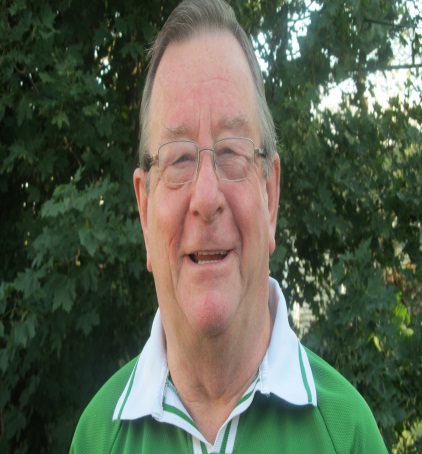
(Inducted in 2012)
Pat Fleming has been a household name in youth soccer in St. John's for twenty years. Serving as one of the founding members of St. John's Minor Soccer in the early eighties, he continued to serve up to 2000. During that period, he served four terms as President, worked on numerous committees, convening tournaments and coaching teams at all youth levels. His efforts over those years saw St. John's Minor grow from a very small organization to largest youth organization in the Province. When his sons moved into the senior ranks, he moved with them serving two years as assistant coach with Holy Cross Challenge Cup Team. For the last ten years he has served as coach of Trinity Pub in the St. John's Intermediate League. 2012 also saw Pat being inducted into the St. John's Soccer Hall of Fame.
Ern Foote

(Inducted in 1992) Ern Foote was the first Newfoundlander to earn certification by FIFA as a referee. After a fine playing career, the Fortune native moved quickly into the ranks of the best soccer officials in Canada. Extremely knowledgeable about the laws and the positional system for best calling plays, he provided great leadership and instructions for young soccer officials following in his footsteps. He called games at every level of competition within Canada including national championships, Canada Summer Games and intercollegiate encounters at the Atlantic and national levels. The manner in which he performed on and off the pitch earned him the respect of players, coaches, managers and fans and especially other officials. He is a member of the Burin Peninsula Soccer Hall of Fame.
Jerry Gallant

(Inducted in 2011) The strength of soccer on the west coast and in particular Stephenville, is in part due to the efforts of Jerry Gallant. For over 20 years Jerry worked on behalf of Stephenville and the Western Region in promoting the game of soccer at the local and provincial level. Through his position as President of Stephenville Soccer and his time on the Technical Committee of NLSA, he stressed the importance of a strong technical background for players and teams if they wished to move forward. This strong belief paid dividends during the mid nineties as Jerry and his Western Teams won three straight Provincial Championships and the right to represent the Province at the National Club Championships. His belief in technical development saw him earn the designation of Course Conductor which allowed him to encourage this belief among the coaches for whom he was responsible in certifying.
Gordon Grandy
Considered the premier goalkeeper of the 1950’s and 60’s, Gordon Grandy displayed the attributes which earned him the title of ‘one of the best’. Noted for his exceptional quickness, agility, and sure hands, his fearless approach to defending his goal kept opposing shooters second guessing themselves. While considered a team leader and motivator for his Grand Bank Gee Bees, he was also an innovator. Long before kicking long balls up the pitch became passé, Gordon was distributing the ball to his backs and midfield, allowing them to keep possession and mount coordinated attacks. His MVP recognition, outstanding goalkeeping, innovation and team leadership were major reasons why his team won a number of Burin Peninsula championships and three consecutive provincial championships in the 1960’s. The success of his Grand Bank Gee Bees in the early 1960’s, was in part due to Gordon’s efforts. For their accomplishments in the 1960’s, the Grand Bank Gee Bees were named the NLSA Team of the Decade.
Bill Grant

(Inducted in 1997) Bill Grant began his soccer career with the Curling Rangers in 1946 and played with the team until 1969. He coached the team for three seasons after his retirement as a player. As Curling established an amazing record of 23 consecutive Corner Brook senior soccer championships, Grant was team captain for nearly 20 years and won more than his share of individual awards. Grant played all-star ball for his full career and was captain for one of the two Corner Brook teams that won the provincial championship in 1954 and 1956.
Dermot “Joe” Gulliver
(Inducted in 1985) From an outstanding minor career in the Craigmillar Avenue area of St. John’s, Dermot “Joe” Gulliver enjoyed impressive success at the school and junior levels of soccer as he moved into the St. John’s senior league ranks at a very young age. His exceptional soccer career lasted from 1944 until 1969 and established him as one of the very best players the province ever produced. At his inside right position, Joe Gulliver’s Craigmillar Avenue career lasted from 1944 until 1948 when he earned a berth on the Holy Cross junior champions in ’49 and ’50. Moving up to the senior Holy Cross club in ’50, he was a dominant member of the seven St. John’s championship clubs that ran from 1950 to 1956. During that period, he won three league scoring titles. Moving to Western Newfoundland in 1962, he continued his rewarding career and played for the Corner Brook all-stars for seven seasons. He spent one year with the Deer Lake team prior to completing his career as coach of the Corner Brook club. His skills and ability in passing, trapping and shooting soccer balls made him extremely valuable to any team for which he played. An attitude that overflowed with sportsmanship and determination added greatly to his contributions. The apparent joy he displayed in being able to play was a gift that delighted fans and teammates. Dermot “Joe” Gullliver ranks with any soccer player ever produced within Newfoundland and Labrador. He was blessed with great skills and a great love of soccer. In addition to soccer, he was a baseball all-star and champion with Holy Cross and St. John’s teams and made great personal contributions to the Holy Cross basketball team that earned the nickname “Whiz Kids”. He was inducted into the Newfoundland and Labrador Sports Hall of Fame in 2004 and is also a member of the St. John’s Soccer Hall of Fame.
Jim Hamlyn

(Inducted in 2009) Spanning four decades and growing, Jim Hamlyn has served the soccer community of this province as a player, coach and volunteer. Playing with Feildians in the Provincial Challenge Cup and St. John’s Senior League for 18 years, he won two second division and one first division St. John’s Championship. While at university, he won one Atlantic Conference Championship and represented Memorial University at the Nationals. It was however; on the coaching and administrative side that he made his greatest contribution to the game. He began coaching Feildian teams in 1981 and for almost 20 years helped keep the Feildian Association a viable club in St. John’s and Challenge Cup competition. Eager to learn more about the game he earned his Provincial B Coaching Certificate and is now part of the National B Program. For the past seven years he has been a Provincial Team Coach taking teams to Nationals as well as being successful at the provincial level, winning a number of titles. He is a member of the St. John’s Soccer Hall of Fame and is presently the Technical Director for the Mount Pearl Soccer Association.
Frank Haskell

(Inducted in 2007) Frank Haskell had a soccer career that ranks with the very best ever put together within Newfoundland and Labrador. It contains extremely impressive personal and team successes. His career is highlighted by his exceptional accomplishments at the national level where he was a member of a gold medal team and two silver medal teams while earning a tryout for Canada’s national club and continuously demonstrating his ability to score goals. He ranks among the best strikers to ever play in Newfoundland and Labrador soccer with a natural ability to score goals and, just as importantly, to set up teammates to score goals. His shooting and passing were always extremely accurate in addition to being hard and strong as he was one of the most feared attackers during his playing era. Possessing great speed, with or without the ball, he was also very quick and had a keen sense of offensive soccer which he always demonstrated. Very coachable, he contributed greatly to any team of which he was a member earning the respect of his teammates and opponents. He broke into St. Lawrence minor soccer in 1968 when he was ten and started his all-star career when he was 12. He was a member of four provincial youth champions, winning the scoring title three times and being selected Most Valuable Player twice. One scoring title came in Stephenville when he had 14 goals in five games as a peewee. His school career was so successful that the St. Lawrence team of which he was a member was tagged “a one-player team” and he was the player. He broke into the St. Lawrence senior lineup in 1974 and was a member of seven teams that won Burin Peninsula, provincial and Atlantic championships in a row. He continued to demonstrate his great scoring ability with four goals during an overtime session against Quebec in the 1975 national championships and nine goals against Marystown during a Burin Peninsula game in 1976. He was a valuable member of the provincial youth team that won the Canadian championship in 1974 and played a major role in the national silver medal showings of St. Lawrence in 1975 and 1977. It was also in 1977 that his presence was very important for the provincial all-star club that finished fourth in the extremely competitive Canada Summer Games soccer competition in St. John’s. His playing was so impressive during the 1970s that he was invited to a national team tryout in 1978. As a member of the Royal Newfoundland Constabulary he was stationed in Corner Brook where he organized and played with a masters team that lost the provincial title by one goal to St. Lawrence. He is a member of the Burin Peninsula and the St. Lawrence soccer halls of fame.
John Hearn

(Inducted in 2012) John Hearn was a coach’s delight. While technically skilled, he brought to the game those intangible characteristics of determination and grit which set him apart from others in his era. This fighting spirit was an inspiration to his team mates but a major concern to his opponents. During his 14 year career, he helped his Province capture the National Youth Championship in 1974, represented his Province at the 1977 Canada Summer Games finishing fourth. He competed in six Atlantic Championships winning two and captured a Bronze Medal at the National Challenge Cups Championships in 1981. Provincially, John played a major role in helping his Holy Cross team capture six Provincial Challenge Cup titles and 12 St. John's First Division Championships. …
Harry Hickman

(Inducted in 2013)
Harry Hickman has to be considered the Grandfather of women's soccer in Newfoundland and Labrador. Thirty plus years and still counting as a women's soccer coach, should certainly verify this designation. From the early years of women's soccer, he was a driving force motivating the players and administrators to believe that women's soccer has a prominent place in this province.
Behind the bench, Harry's style was a success as seen in the success of his teams and the awards he has won. For 12 years, his University teams were a perennial play-off threat. His senior women's teams have won an Eastern Canadian Championship, six Provincial Senior Women/Jubilee Trophy Championships and four St. John's Senior Women's Championships. Personally, he has won an Atlantic University Coach of the Year Award, the Eleanor Bennett and Charlie Quick Awards from St. John's for contribution to women's soccer and soccer in general. He is also a member of the St. John's Soccer Hall of Fame
Denise Hickey
A career which spans more than 30 years, Denise Hickey has experienced success as a player, coach and administrator. With early success as a youth player, she represented her province at the Atlantic championships, Club Nationals and the Canada Summer Games. Upon moving to the senior ranks, she quickly establish herself as one of the premier defenders in both Jubilee Trophy and AUS leagues. Her intelligent play and technical ability earned her five trips to the National Jubilee championships. In addition, she also received MVP, Top Defender and Most Spirited Player recognition at the Jubilee level.
At the university level, she received four AUS first team and four U-Sport (CIS) Academic All-Star selections. On two occasions, she received invitations to attend the U-Sport High Performance Identification Camp. This camp served as an identification camp for potential National Team players.
With her competitive playing behind her, she quickly found herself involved in coaching and at the administrative level. Serving as NLSA’s VP Senior Women, Denise played a prominent role in bringing issues concerning the women’s game to the Board table for discussion. Over the past eight years, she has coached provincial and club youth teams taking them to Atlantic and National Club competitions.
Justice James D. Higgins

(Inducted in 1965) A lifetime devoted to the betterment of athletic life within St. John’s and the province resulted in the election of Justice James D. Higgins to the Newfoundland and Labrador Sports Hall of Fame. “Jimmy” Higgins participated as an athlete in school soccer and hockey and rowed in the St. John’s Regatta but made his biggest mark in sport as an organizer and administrator. While he was extremely active and successful in politics, education and the legal community, he devoted a great deal of time to athletics. He was president of the St. John’s Regatta Committee from 1939 to 1961 and guided the group through some very difficult times. He made very valuable contributions to the St. John’s Regatta. His contributions to the St. John’s soccer league, which he headed as president, were also very valuable and he played a major role in the establishment of the Newfoundland Soccer Association. Track and field benefited greatly from the involvement of “Jimmy” Higgins. He was a long time executive and tireless worker for the Newfoundland Branch of the Canadian Amateur Athletic Union, which controlled track and field. Overall, sport and every other aspect of community life, was better organized and accommodated because of the work and effort afforded it by “Jimmy” Higgins. In recognition of the long and valuable contributions that he made to a variety of sports organizations Justice James D. Higgins was inducted into the Newfoundland and Labrador Sports Hall of Fame November 7, 1981.
Honorable William J. Higgins
(Inducted in 1965) Exceptional performances in four separate sports and vital contributions to four sports earned the Honourable William J. Higgins election to the Newfoundland and Labrador Sports Hall of Fame. Extremely popular and very prominent, especially as a community leader in politics and the legal profession, “Billy” Higgins was born in 1880 and became a Supreme Court judge prior to his 1943 death. He rowed successfully in the St. John’s Regatta between 1901 and 1908 and was an all-star calibre soccer player with B.I.S. teams from 1898 to 1909. On two occasions he was victorious in the two-mile championship run and earned numerous awards for his swimming skills in races held annually at Quidi Vidi Lake. He served as St. John’s Regatta Committee president when the organization was being founded and contributed greatly to its permanency. Both the St. John’s Hockey League and the St. John’s Soccer League benefited from his presidency. He headed the Amateur Athletic Association when that group was responsible for local boxing, track and field and several other sports. His contributions to all were very valuable during a period of time when his calibre of excellent leadership was very important. For his great athletic career and his outstanding contributions to sport the Honorable William J. Higgins was inducted into the Newfoundland and Labrador Sports Hall of Fame during its inaugural banquet, October 13, 1973.
Greg Hillier

(Inducted in 1999) From the time he first played soccer at Buckmasters Field in St. John’s until the present, Greg Hillier has demonstrated a love for the sport that has resulted in important and often vital contributions. For ten years, Greg Hillier’s leadership and willingness to devote a great amount of time and apply important expertise have played a major role in Central Newfoundland soccer. He started his soccer career as a keeper for the Cabot association in second and third division competition in St. John’s and continued, more or less, as a player when he moved to Whitehorse, Yukon in 1979. It was in Whitehorse that he became deeply involved in administration of soccer. In fact, he was elected president of the local league that has encountered more than its share of problems. Under Hillier’s leadership the league rebounded. He introduced a variety of worthwhile programs and contributed especially to the territory’s minor soccer system. His contributions, in addition to introducing programs like special Canada Day activities and a Canada Games player pool, involved a great deal of coaching of minor clubs. He coached Yukon teams at the Arctic Winter Games. Hillier started officiating soccer at the senior and minor levels while in the Yukon. His playing time decreased greatly upon his return to Newfoundland and Labrador in 1989 but his contributions as a soccer promoter and administrator increased after he became Central Newfoundland director for the provincial soccer association. He held this position with great success until he changed jobs and his place of residence during the summer of 1999. Often facing serious obstacles and with relatively little local support, Greg Hillier spearheaded soccer in Central Newfoundland with extremely rewarding success. Working extensively at the minor levels, he was a main ingredient in provincial championships being hosted in the area and in minor and senior clubs from the area participating in provincial soccer. He has chaired a committee that redrafted the constitution of the Newfoundland and Labrador Soccer Association. Because of Greg Hillier’s contributions, soccer within Newfoundland and Labrador, especially in the Central area, is improved and much better than it was prior to his involvement. He has been a credit to his sport.
Len Hillier

(Inducted in 2007) Len Hillier was a standout soccer player, coach and referee during a career that overflowed with many achievements and many contributions. From player to coach to referee, he enjoyed many successes and made many contributions during a very beneficial soccer career. His early soccer activity began in his native Grand Bank where he displayed a great ability to score goals. It continued when he moved to Conception Bay South in the early 1970s and was very apparent as he earned more than his share of scoring title in a variety of leagues. While his time in CBS soccer was extremely rewarding, he played a major role in the 1977 St. John’s championship won by the Feildians. In addition to this first division play, he was selected to all-star teams that played pro clubs Ayr United and Toronto Blizzard. In 1975 he was a member of the St. John’s Selects who defeated Nova Scotia for the Atlantic championship. His ability to score goals was his trademark during this period. Demonstrating his great ability throughout youth and school soccer in Grand Bank, he scored in his first first division game with the GeeBees as an example of what was ahead. He was the Most Valuable Player twice with a scoring title as a member of a CBS team. In 1982 he set a scoring record and was MVP in CBS and led CBS clubs to provincial championships in 1974 and 1979. His coaching contribution covered 25 years in the CBS minor soccer organization and CBS teams won numerous championships under his coaching. With provincial “A” titles in 1984 and 1986, the CBS female team he coached won seven consecutive titles. He moved into serious officiating in 1986 and quickly moved to the top level of refereeing. For nearly 20 years, he was one of the province’s top officials calling games at every level of competition up to Challenge Cup. During this period he earned the respect of players, coaches, managers, fans and most importantly other officials for the excellent manner in which he performed with a whistle on the pitch. A fine hockey player who rowed in the Royal St. John’s Regatta, the Placentia Regatta and the Harbour Grace Regatta, he was inducted into the Conception Bay South Sports Hall of Fame in 2000.
Murdock Hiscock
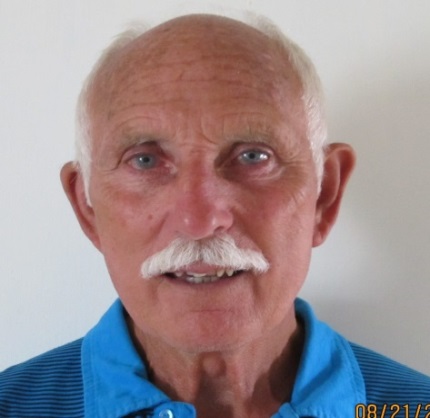
A career spanning more than 40 years as a player and as an official, Murdock Hiscock demonstrated qualities which proved to bring him success as a player and as an official. From his first game in 1962 with Fortune, he established himself as player with exceptional fitness, toughness, versatility and desire to win which was second to none. Always regarded as a player who respected the game and his opponents, his play on the field garnered him all-star recognition to play against all-star teams from St. John's and to play against Ayre United of the Scottish First Division. Although his Fortune team was always competitive at the Challenge Cup level, championship success came later in his career at the Divisional and Masters level. When his playing career ended, he turned to officiating and for the next 20 years, he earned his way up to a Class I or Provincial level status. Always reliable, he received assignments to officiate at the minor, intermediate, Jubilee Trophy and at the Challenge Cup level. For his contributions, he was inducted into the Fortune and Burin Peninsula's Soccer Hall's of Fame.
Don Hodder

(Inducted in 2009) Although small in stature, Don Hodder played as big and as tough as any player from 1964 to1980 while wearing the colours of the Guards Athletic Association. His skill on the ball and ability to score made him a threat whenever he stepped on the field. Even though he played a physical game, he always played fair and with respect for his opponents. This was evident with his five consecutive Most Gentlemanly and Effective Player Awards. As a perennial all star, he was selected to play against professional teams from Scotland and England. In addition to his Bronze Medal as a member of the province’s 1969 Canada Games Team, he earned two junior and one senior St. John’s championship and one provincial junior championship. He is a member of the St. John’s Soccer Hall of Fame.
Max Hollett
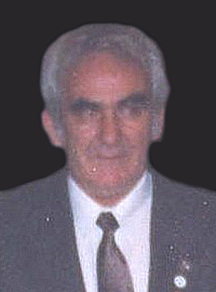
(Inducted in 1998) Max Hollett was born in Grand Bank in 1944 and grew up “playing soccer”. In the tradition of Grand Bankers, he developed his great skills and ability by constantly playing. He was only 14 years old when he earned a berth with the senior Grand Bank Gee Bees and for four seasons he handled the difficult task of playing both junior and senior soccer with the relative ease of a champion. Hollett led Grand Bank to the 1961 provincial title at the Ayre Athletic Grounds in St. John’s and was the leader again when the Gee Bees took the 1962 provincial championship, this time at Jubilee Field in Corner Brook. In all, he was the catalyst that had Grand Bank win four provincial championships in addition to the 1974 Challenge Cup at the King George Fifth pitch in St. John’s. A keen student of the game who always performed at the highest level as a true team player, Max Hollett was selected to the 1970 provincial all-star team that placed fourth in the Canadian championships in Winnipeg. He played soccer during a period that was filled with outstanding players and outstanding teams. Max Hollett was equal to any and better than most of the soccer players of his era. He constantly displayed exceptional skill and ability coupled with an impressive knowledge of the game. Always contributing to any team of which he was a member, he was an excellent example for younger players and was quick to offer soccer advice to all those who asked for it. His play was such, that in 1970, he was invited to the 1971 national senior team tryout camp where he impressed many who watched him perform. Max Hollett is a member of the Burin Peninsula Soccer Hall of Fame.
Pat Hollett
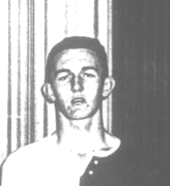
(Inducted in 1994) Pat Hollett of Burin enjoyed great success in soccer and was one of the finest track and field stars of his era. A solid left half with a great deal of savvy to go with impressive personal talent and skill, he was a valuable member of Burin teams in provincial senior competition, Guards clubs in St. John’s league play and Prince of Wales College clubs in St. John’s intercollegiate competition. His soccer career began while he was attending Burin’s Parish Hall School with his early coaching by Frank Pearce playing a major role in his development. With his soccer career starting to flourish, Pat Hollett attended PWC in St. John’s and scored the winning goal as the school won the 1957 intercollegiate championship. A halfback who excelled offensively and defensively, Pat Hollett was well known for the strength and accuracy of his out-of-touch throw-ins and he used this aspect of his game for the advantage of teams with which he played. His hard and accurate passes and his strong shooting were other weapons that he used well. He was only 13 years old when he earned a berth on the senior Burin Eagles and his excellent leadership was recognized by his election as Eagles captain for the majority of his playing years. His exceptional soccer seasons at the University of New Brunswick added to his overall career and he was selected as the university’s athlete of the year. Pat Hollett is a member of the Burin Peninsula Soccer Hall of Fame.
Leslie (Pope) Hopkins
After an outstanding career at the youth level where she was a member of the National Training Centre and represented the province at the National All-star and National Club championships, Leslie went on to impress in the provincial Jubilee Trophy league and at the university level with Memorial University.
In the provincial Jubilee Trophy league, Leslie established herself as a premier attacking player from wide midfield positions. With the ability to take players on and go for goal and the ability to play dangerous crosses from near and far positions, she became the complete attacking player. Over the course of her Jubilee Trophy years, she was a member of five Jubilee Trophy championship teams. In addition to her five championships, she was named the league’s MVP, earned Top Scorer recognition and was selected to the all-star team on eight occasions. Many soccer enthusiasts who follow the game often refer to her as the top midfielder of her era.
Leslie’s five years at Memorial University saw her named team captain, Female Soccer Player of the Year, Academic All-Canadian and inducted into Memorial’s Athletic Honor Society
Doug House
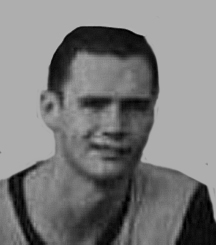
(Inducted in 2003) An exceptional player at every level of soccer at which he played, Doug House excelled during his 12-year career as a player and contributed greatly during his five seasons as a coach. An intelligent performer who possessed great soccer skills, he ranks with the finest players to ever wear a Feildian uniform and was a major factor in teams playing well with success. Extremely versatile, he was strong, had great passing and shooting skills and an outstanding ability to organize offensive attacks. As a centre-half he was a major defensive factor for teams and often controlled the centre of the pitch with beneficial results. Doug House ranks extremely well with the half men of his era. Known for his sportsmanship, he earned great respect from teammates and opponents. This was especially true in tight situations that required exceptional personal performances. Doug House was very effective under pressure, rising to the occasion. His playing career started in 1957 as a right half with the Bishop Feild intercollegiate team. In 1958 he moved to centre half for the club and was captain of the squad that finished second. He led his school squad to the 1959 championship. Doug House cracked the Feildians St. John’s junior and senior teams in 1960. He was selected as the Most Valuable Player for the St. John’s junior league and the Feildians Athletic Association, awarded a scholarship and led Arts to the Memorial University inter-faculty title. It was his leadership and play that marched Feildians to the St. John’s junior and senior soccer titles in 1961 as he was voted the league’s Most Valuable Player. The 1962 season had Feildians finish first in junior and senior competition and represent St. John’s in provincial first division championships. Out of the province during 1963, he played senior St. John’s soccer with Feildians but 1964 was a banner year with a provincial championship, a first place finish in the St. John’s league and another MVP selection by the Feildian Association, which also named him its athlete of the Year. He was the 1965 Rhodes Scholar, honored by Memorial University for outstanding contributions to athletics and played centre back for the Jesus College team at Oxford University. In 1966 he was captain for the St. John’s championship Feildians and was voted MVP in a special series against a team from Halifax. At Oxford he led Jesus College to a second division title. He completed his playing career with Feildians in 1967. From 1982 to 1986, Doug House returned to soccer as a coach and devoted this time to working with players and teams within the St. John’s minor soccer system. Voted St. John’s Male Athlete of the Year for 1961, he enjoyed considerable success as a hockey player and was inducted into the Newfoundland and Labrador Sports Hall of Fame in 1999. His father, Edgar has been inducted into the provincial soccer hall of fame.
Edgar House

(Inducted in 1999) Edgar House demonstrated exactly what a soccer player should be during his career within the St. John’s Football league. Cited by many as the “finest centre half to ever play on St. George’s Field”, he joined the Feildians senior club while still a student at Bishop Feild college. In fact, it was his performances with the school squad during a 1929 exhibition game during the first year that the Feildian Grounds was used for soccer that caused his move to the senior Feildians. He first played left half but his ability was such that he was quickly moved to the tough centre half position. He was the senior club’s centre half when it won the St. John’s championship in 1930 and he went on to enjoy considerable team and individual successes during the 1930s. His exceptional play came during a period when soccer was the major summer sport and featured great competition involving the finest athletes of the time. Even within this athletic situation, Edgar House was among the very best. While attending Dalhousie University, he was elected captain of the varsity squad that included many Newfoundlanders and several students from Jamaica. Possessing a strong kick and known for his tenacious play, Edgar House was greatly respected for his good sportsmanship and gentlemanly behavior, both on and off the pitch.
Mike Howlett
From his early years as a soccer player, Mike Howlett demonstrated that he was going to be a player of record when it came to scoring, particularly when the game was on the line or a big goal was needed. His scoring touch was such that he was usually found playing above his age category. At the age of fifteen, he began his senior career with St. Lawrence and for the next 15 (21 years, retired at 36 (won the scoring title at 36 actually)) years he split his time with the St. Lawrence Laurentians and two teams in Calgary. Throughout his career, Mike’s success on the field had been exceptional. At the national level, his Calgary teams represented Alberta six times while winning the National Challenge Cup gold medal twice. At home, his St. Lawrence team represented the province twice (1993, 1997, 2007 and 2008) so 4 times at Nationals, winning the Bronze Medal along the way as well as an Eastern Canadian Masters Silver. Individually, however, is where his value starts to show. His time in Alberta earned him two scoring titles and five All-Star selections. Back in his home province, Mike was three times an All-Star, while winning two scoring titles and being twice named MVP. For his efforts in 2008, he was named the NLSA Senior Player of the Year.
John Humby

(Inducted in 2011) John Humby has the distinction of playing and officiating at the highest level of soccer in the Province for over thirty five years. As a player, John distinguished himself as wide player while playing for Holy Cross. His pace and ability to provide crisp accurate crosses into the penalty area saw him help lead Holy Cross to a National Bronze Medal, three Provincial Challenge Cups and eight City Championships. As an official, John officiated at all levels of play for twenty five years. In a word, he was known as Mr. Dependable. During the days when officials were hard to come by, he was always the one the league could call on to cover a game when they were short of an official. This willingness to always be there and the feel for the game he learned as a player, earned him the respect from both league administrators and players alike. For his contribution to the St. John’s League, John was inducted into their Hall of Fame.
Ken Hunt

(Inducted in 2002) For an amazing 32 years young soccer players in Deer Lake have benefited from the expertise, concern, devotion and sacrifices of Ken Hunt. On an annual basis, he has coached and organized soccer at Elwood Regional High School and has been involved in each and every aspect of the teams. His involvement has been the most important aspect in Deer Lake soccer since 1972 and was the foundation upon which soccer in the community, and the surrounding area, was established. His willingness to devote the time and effort necessary has been the main factor in the various success the Elwood teams have enjoyed and has been an important aspect in the soccer careers of hundreds and hundreds of players. His coaching has continued until 2001-2002, his final year of teaching. After coaching Memorial University soccer teams in 1970 and 1971, he took over the Elwood High soccer program in 1972. While his coaching has been mainly directed towards students of Elwood Regional High, it has been a great asset to soccer in the whole Western Newfoundland area. The Deer Lake junior club that reached the provincial finals and the Deer Lake team that was extremely competitive in provincial second division play are included in Ken Hunt’s contributions. Many of the players who composed these teams were graduates of his high school clubs. In 1976 it was Ken Hunt who organized a soccer program in Deer Lake and he served as senior league president, filling the leadership position until 1981. He was coach for the league all-stars who competed in tournaments in many areas of the province. He played, coached and refereed at the local level and many of the players who made up the Deer Lake club that competed successfully in the Corner Brook league were graduates from his programs.
Kathy Hurley
For over twenty-five years, Kathy Hurley was a premier midfielder and defender with three
different Jubilee Trophy teams. Although small in stature, she was a tower of strength in her
club’s back line/midfield as she used her tenacity, game intelligence, quickness and sheer
determination to play opposing attackers into less dangerous positions. During her early days,
Kathy was known for her offensive play as a left footed midfield maestro and led many of her
teams in scoring. In her later years she adapted into the back line and was a solid defender with
the ability to read and control the whole game from the back. Her relaxed style of play and
leadership on and off the field has been a motivator for her teammates to excel. Her impressive
longevity and tireless stamina and dedication led to several all-star awards. Her leadership over
the years has been reflected in her being named team captain with most of the teams on which
she played. The role of team captain also demonstrates the confidence and respect her
teammates and coaches have for her abilities.
Donald Huxter
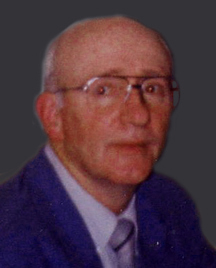
(Inducted in 1989) Don Huxter’s soccer career, in one form or another, has been ongoing for 50 years and is filled with achievements and contributions. From the time he became involved as a youth player in 1954, he has been involved in a wide range of capacities with soccer, especially in the Springdale area and Central Newfoundland. His lengthy career of contributions was as a player, coach, official and administrator and has been valuable to the sport and people in it. As a goalie and outside right, he moved through youth and school competition and into intramural play at Memorial University. He advanced to the MUN varsity team in 1958 and 1959 and earned a spot on the Acadian varsity club for two years of Atlantic intercollegiate competition. He was a member of two Springdale teams that won provincial titles and had two provincial school championships included in the 25 years he coached Springdale clubs. In addition to playing, he often filled the coaching role and was a member of the Springdale Soccer Association executive, in a variety of positions, for more than ten years. He obtained his level two officiating certificate and called games at all levels of soccer, including games in the 1977 Canada Summer Games in St. John’s. Since 1988, Don Huxter has been a highly respected member of the selection committee for the Newfoundland and Labrador Soccer Hall of Fame. As a soccer builder, he rates with anybody associated with any sport and a very large number of people, of all ages and both sexes, have been able to enjoy soccer because of his interest. Admired and respected, Don Huxter has been a credit to soccer and to Springdale.
George Innes
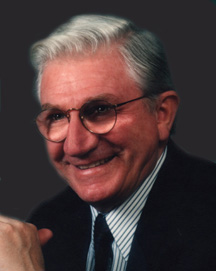
(Inducted in 1996) Soccer within Newfoundland and Labrador benefited greatly when George Innes moved from his native Scotland to Newfoundland and Labrador. From 1975 to the present, he has served soccer extremely well at every level and has made important and exceptional contributions to soccer at the local, provincial and national levels. Innes has been a good servant of soccer. Between 1981 and 1988 he served as provincial soccer president and it was during this period that his efforts played a major role in higher registration, better skills and many national and international games and tournaments held within the province. His leadership was extremely important in the expanded exposure soccer received. From a minor and third division coach, he served as St. John’s soccer president and laid the groundwork for improved minor operations, in St. John’s, provincially and even nationally. Provincial minor soccer registration jumped from 1,800 to 5,800 thanks to his efforts. Innes negotiated the 1985 World Cup qualifying game between Canada and Honduras in St. John’s. He played a major role in the 1985 World Youth championships, the hosting of the 1989 national Challenge Cup championships and was president when Holy Cross won the national Challenge Cup title in 1988. Nationally, Innes served in a variety of important positions on the Canadian Soccer Association executive between 1985 and 1989, including director of finance and director of the technical committee. On two occasions, he was head of Canada’s delegation for a world championship. Innes earned a reputation for working long and hard for soccer at every level of the game. He is a member of the Newfoundland and Labrador Soccer Hall of Fame and an honorary life member of the Canadian Soccer Association.
Dick Ivany
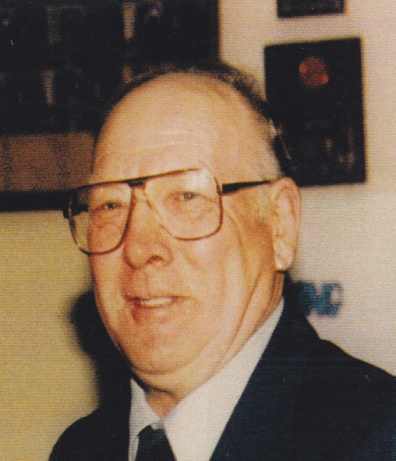
(Inducted in 2001) For more than 20 years Harry “Dick” Ivany was the foundation upon which all levels of soccer within Botwood were operated. From the late 1950s to the early 1980s, every soccer event and activity within the community had Ivany providing the leadership and lots of time and effort, allowing Botwood residents to participate. Every aspect of Botwood soccer was supported by Ivany who had a great feeling for the people with whom he lived and the many and varied beneficial things that came from being involved in soccer. While he played a little soccer himself and was respected for an all out effort in every game, it was as a soccer builder that Ivany gained the most respect. It would be fair to say that literally thousands of people were able to enjoy soccer because Ivany was a caring individual who demonstrated his love for the sport in a very meaningful manner. As a player he displayed a passion for the game, which, along with his determination and strength, made him a fan favorite. His on-pitch performances were important aspects of drawing fans. From its earliest history Botwood has been a port-of-call for many, many ships and a very large number of these ships included soccer players and teams within their crew. Exhibition games against these visiting crews coupled with provincial competition against Gander and Corner Brook were well attended. Ivany was in the middle of the activity, extending his soccer passion to the organization and promotion of sport. He was coach, referee, administrator and promoter and no aspect was too small or too big for his attention. He literally took care of everything where soccer and Botwood were concerned. His efforts didn’t stop at Botwood and he arranged for many players from Peterview, a town close to Botwood, to have the opportunity to participate on an on-going basis. While he wasn’t a wealthy individual, Ivany often contributed financially to soccer projects and provided a great deal of necessary transportation for teams and players in his own vehicles. Because of his drive and reputation he was often able to overcome money and transportation problems that would have handicapped the Botwood soccer program, especially hosting or traveling to minor championship tournaments. Overall, many young boys and men from the Botwood area would not have had the opportunity to play the game, compete against others, experience the thrill of skillful soccer and work with others to achieve a goal without Ivany’s vast contributions. Years after his 1993 death, Ivany is well remembered by Botwood residents. They respond to his name with respect and a feeling of well being. An indication of the respect and affection Ivany earned within Botwood is demonstrated by the fact that the town’s arena is named in his memory. He is remembered with respect by soccer people in many other communities around the province, and his memory is filled with gratitude for his long and unselfish work for soccer, especially in Botwood but generally at the provincial level.
Keith Jackman
During his 32 years between the uprights, Keith Jackman has experienced or stopped some of the best shooters from this province and many from other provinces across Canada. Recognized as an exceptional shot stopper, his positioning and leadership skills were major factors why he was considered the best of his era. His performance in goal throughout the 1990’s and well into the 2000’s earned him the respect from both teammates and opponents alike. His St. Lawrence teams of that era were so impressed with his abilities and leadership, that he was named team MVP on five occasions.
Throughout his career, Keith has won eight provincial Challenge Cup and seven provincial Masters championships. In addition, he has a National Challenge Cup Bronze Medal and two Eastern Canadian Masters Gold and one Silver medal.
Keith is also part of the 1990’s St. Lawrence Team which was chosen the NLSA Team of the Decade. In addition, he has also been inducted into the St. Lawrence Soccer Hall of Fame.
Stanislaw Jackowski

(Inducted in 1987) Stanislaw Jackowski began contributing to soccer within the province, especially within Labrador City-Wabush from the time he arrived in the mid-1960. Drawing upon a well founded soccer background and willing and able to provide exceptional leadership, he quickly became the driving force behind West Labrador soccer and provided the opportunity for players of all ages and both genders to participate in the sport. Jackowski was the major factor in the Labrador City association becoming a member of the provincial body and was certainly the driving force behind a successful effort to obtain an impressive soccer facility for the community. The facility boasts three fine pitches and thus allows as many people as want to play soccer. From the start, it was his foresight and expertise that put an excellent minor system in place and established a strong eight-team senior men’s league. He started a very active women’s league and while soccer was played in Labrador City from 1958, it really became a top level, permanent operation when Jackowski became involved.
Herb Jenkins

(Inducted in 1997) Jenkins had a rewarding career as a player, referee, coach and administrator during a 35-year period that lasted from 1962 to the present. He was recently inducted into the Mount Pearl Sports Hall of Fame and is a member of the St. John’s Soccer Hall of Fame. He played with four provincial championship teams and coached another five provincial champions. He was responsible for four teams travelling to the U.K, has been to St. Pierre in all capacities 48 times, coached five times, managed once and refereed once at the national level and was provincial “coach of the year” for 1996. Jenkins was a national referee for ten years after being the first Newfoundlander to earn a national badge. A former referee association president, he conducted numerous officiating clinics during his career.
Eddie Joyce
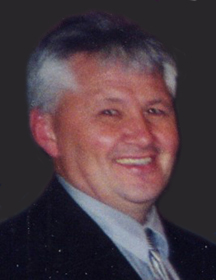
(Inducted in 2000) For 15 seasons Eddie Joyce was Corner Brook’s premiere soccer player during a very rewarding career with the Curling Rangers and the city’s all-stars. An aggressive performer who possessed exceptional talents and skills, he achieved the utmost success because of his determination and extremely competitive nature. Joyce loved soccer and played the game very, very well. After his retirement from competitive soccer, he continued to participate in masters and recreational soccer. At the Corner Brook level of competition, he was top scorer six times and added three Most Valuable Player selections to his scoring titles. In 1974 his prowess on the soccer field played a major role in his selection as Corner Brook’s Male athlete of the Year. His two goals gained a victory for Corner Brook in the 1976 provincial senior championships. In addition to his playing, Joyce has coordinated the Corner Brook soccer program and was recognized for his soccer contributions by then Premier Frank Moores in 1975. A bronze boxing medal winner at the 1975 Canada Winter Games, he also excelled in basketball. An MHA for the Bay of Islands District, Joyce was nominated by Blaine Gillam on behalf of the Curling Rangers soccer team.
Andy Joy
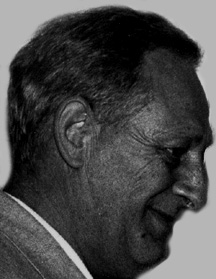
(Inducted in 1987) Andy Joy started his lengthy and distinguished soccer career at the age of seven years in Victoria Park and continued it as a player, coach and official close to 60 years. His was a career that was highlighted by his outstanding contributions to every level of soccer, especially in the St. John’s area. After playing St. John’s soccer during the 1930s, he joined the Royal Navy and had the opportunity to play soccer within the service between 1940 and 1943. His military soccer began in England, Wales and Scotland and included competition in The Azores, Bermuda and Argentina. These games allowed him to improve his soccer skills. From 1943 to 1960, Andy Joy was an extremely effective halfback for St. Pat’s in the St. John’s senior league. He completed his St. John’s senior league play with Holy Cross in 1961 and 1962. Especially strong defensively, he always displayed a keen knowledge of soccer and used it to improve the many younger players who were members of his team. He possessed a strong, long and accurate throw-in and normally fed good passes to his forwards. His coaching contributions ran from 1960 to 1977 with Holy Cross, St. Pat’s, Gonzaga and Stanley’s Pub clubs benefiting greatly from his expertise. He officiated in local soccer games at various levels from the late 1940s to the mid-1970s. Always fair and unbiased, his refereeing was especially valuable to junior and high school in St. John’s. Always willing to contribute, Andy Joy served on many soccer executives and committees and worked long, hard and successfully continuously for soccer. He served as St. John’s league treasurer for 13 years. He is a member of the St. John’s Soccer Hall of Fame.
Joe Keating

(Inducted in 1994) For more than 30 years Joe Keating made extremely important contributions to soccer within Newfoundland and Labrador, especially in Marystown and on the Burin Peninsula. He coupled valuable expertise and knowledge with deep concern and interest supported by a willingness to make sacrifices and an apparent fair and unbiased approach to each and every situation. Overall, he is one of the most respected soccer individuals within the province. His career started in 1971 as a school coach, racking up four provincial, seven regional and nine zone championships. It was also in 1971 that he organized a Marystown minor soccer system, moving to senior soccer in 1975. He served as Marystown soccer president and was deeply involved with coaching successfully at every level of the sport. After serving as Burin Peninsula soccer treasurer, he joined the provincial executive and was president for 1977 and 1978. During his time as provincial president he further strengthened his reputation with great representation of the province at the national level, attending six national meetings. In addition, he organized the tour of the Queen’s Park Rangers, the start of provincial school soccer and the hiring of a full-time executive director. Joe Keating has been extremely valuable as chair and a member of the provincial soccer hall of fame selection committee, serving for more than 20 years. He is a member of the Marystown Soccer Hall of Fame and the Burin Peninsula Soccer Hall of Fame. Very active in a variety of community projects, he has been a constant contributor to the betterment of life for a very large number of people.
Judi Kelloway

(Inducted in 2011) Judi Kelloway has distinguished herself at all levels of soccer throughout Canada. Her abundance of energy and her specific attention to detail, has seen her serve on, chair and represent Newfoundland and Labrador and the Canadian Soccer Associations on many committees. For the NLSA, Judi heads up its youth division, rules and regulations and harassment committees. As well, she also serves on the CSA’s Competitions Committee and represents them at many National Tournaments. Her knowledge of rules, regulations and protocol, often sees her as the focal point of procedure for many events. For her efforts as a leader, she has twice been named NLSA Executive of the Year as well as SportNL Executive of the Year. For her efforts and outstanding contribution to the game at the Provincial and National levels, the Canadian Soccer Association has awarded her with its Award of Merit.
Bob Kelly

(Inducted in 1985) In addition to a great soccer talent, Bob Kelly demonstrated an exceptional versatility during his extremely successful 19-year career as a great member of the St. Lawrence Laurentians. He began his career in the 1940s as an always-dangerous centre and finished it as a sure-footed, dependable fullback in the 1960s. Owner of a very, very accurate and very, very hard shot when he broke in as a centre forward, Bob Kelly played a major role in many, many St. Lawrence victories, including the title that the Laurentians won in 1952 when the first Newfoundland and Labrador championships were held. That championship effort was one of many he would influence beneficially for St. Lawrence. Always steady and always dangerous, he was a major factor for numerous St. Lawrence victories within Burin Peninsula and provincial championship seasons. As a centre he was always one of the team’s and one of the competition’s top scorers coupling talent and skill with leadership and determination. His overall soccer ability was clearly demonstrated when he dropped back to fullback in the later years of his great career. He was just as effective defensively as he had been offensively, thereby proving his great value to many successful St. Lawrence teams. Bob Kelly has been inducted into the Burin Peninsula Soccer Hall of Fame and the St. Lawrence Soccer Hall of Fame.
Eddie Kelly
Eddie Kelly was a dynamic player who possessed exceptional pace and a tireless work ethic. He was a coach’s delight, with an uncanny ability to put the ball in the back of the net when it mattered most. Although a diminutive forward, his infectious smile brought fear into the minds of all defenders who had to face him. Throughout his 35-year playing career Eddie dazzled fans with his blazing speed and scoring exploits as he led his St. Lawrence Laurentians to six Challenge Cup and nine Provincial Masters Championships. Along the way, he won two Challenge Cup and two Burin Peninsula scoring titles. His Master's team, in addition to provincial titles, captured two Eastern Canadian Master's Championships. For his outstanding play, he has been inducted into the St. Lawrence Soccer Hall of Fame and is an inductee for Burin Peninsula's Soccer Hall of Fame.
Harry Kelly
Dedication and hard work are hallmarks of the career of Harry Kelly, as he helped lead his St. Laurentians to nine Provincial Challenge Cup championships during his 15 year career. His leadership was also instrumental at the National Challenge Cup as St. Lawrence came away with a silver and bronze medal during that period. Harry’s dedication to excellence was also rewarded with a number of individual awards and recognitions. His play in Provincial Challenge Cup was recognized with seven All-Star selections, two MVP awards and a scoring title. In 1998, Harry’s fine play earned him the designation of NLSA Senior Male Player of the Year. For a decade of success, his team was chosen NLSA Team of the Decade and he, a finalist for Player of the Decade. To complete an already successful soccer career, Harry was part of a very powerful St. Lawrence Masters team which won 10 Provincial Masters championships along with two Eastern Canadian Masters gold medals and one silver medal.
Jonathan (Jon) Kelly
Jon Kelly was one of those rare players who, by just being there, made his opponents second guess their options. Although he had a quiet yet powerful approach to the game, he displayed game intelligence which allowed his strength, speed and skill to shut down opposing players and destroy many attacks. Although he experienced success at the youth level, it was his play as a senior player which made him stand out. A stalwart in the back line with Memorial University, he earned AUS first and second team all-star recognition, along with a team MVP award. In addition, his athletic and academic achievements earned him election to Memorial’s Athletic Honor Society. Although injury shortened his career, Jon was able to establish himself as one of the premier Challenge Cup defenders as he led Mount Pearl to its only Challenge Cup championship. During his career, he earned all-star recognition on eight occasions, five of which were consecutive. In addition, he was recognized with a Top Defender award and was named NLSA Senior Player of the Year. He is also a member of the Mount Pearl Soccer Hall of Fame.
Norm Kelly
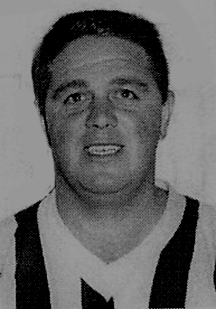
(Inducted in 1989) An outstanding career in the top level of soccer had Norm Kelly of St. Lawrence elected to the Newfoundland and Labrador Sports Hall of Fame. From 1956 to 1969 he ranked among the very best athletes within the province to ever play soccer as he made extremely important contributions to a series of winning St. Lawrence teams. Working extremely well from his mid-field position and possessing a bullet shot, he earned an exceptional reputation for his performances on the pitch while generating a sportsmanship reputation off the pitch. He was a credit to soccer. From 1956 to 1968, he was a major factor in St. Lawrence winning six Burin Peninsula soccer championships and four Newfoundland and Labrador titles. In all championship drives, Norm Kelly’s leadership qualities were important and played a big part in the club’s successes. His play was likewise important in 1967 when the first national Challenge Cup action was hosted by the province at St. Lawrence. The home team defeated Sydney, Nova Scotia 9-1. Personally, he was named provincial Most Valuable Player twice, Burin Peninsula MVP twice and St. Lawrence MVP four times. He was selected as a Burin Peninsula all-star three times and had a goal for the 1967 provincial all-stars that lost 3-2 to Toronto Ballymena in Toronto. After an injury ended his playing career in 1969, he coached St. Lawrence for two years and was involved in coaching and managing about 40 minor clubs, many in national competition. Between the early 1960s and 1989, Norm Kelly served soccer in variety of executive positions, at the local, Burin Peninsula and provincial levels. He was one of the organizers of curling in St. Lawrence in the early 1970s and played inter-town hockey. It was in recognition of his great soccer career that Norm Kelly was inducted into the Newfoundland and Labrador Sports Hall of Fame October 18, 2003.
Pat Kennedy
The terms, lead by example or leaving it all on the field, epitomises the soccer career of Pat Kennedy. Throughout his 20 years of Challenge Cup with Fieldians and his five years of university ball, his demeanor on the field never changed. He was always there to play and he was there to win. His lead by example approach help lead his Feildians to five Challenge Cup finals and his university team to the play-offs five times. His approach to the game and his play on the field, earned him All-Star recognition on numerous occasions in Challenge Cup and university play. In addition, he was twice named Challenge Cup MVP., NLSA Senior Player of the Year and a finalist for Sport NL Senior Player of the Year.
Edward Knight
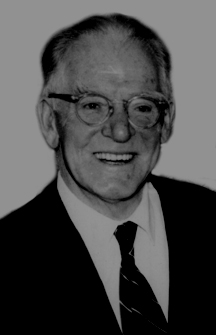
(Inducted in 1981) Edward Knight played an extremely important and vital role in the permanent continuing operation of the St. John’s soccer league between 1929 and 1939. With the league facing serious difficulties, he assumed the leadership position and devoted a great deal of time and a great deal of expertise to making certain that soccer was able to continue to be played within St. John’s. An all-star calibre goalkeeper with the Church of England Institute during his playing days, he was well aware of the many benefits that occurred from playing soccer and it was from that background that he volunteered as league president. In addition to playing for the CEI, he was a keeper with St. John’s teams that competed against Corner Brook, Grand Falls and other visiting teams. As league president, Edward Knight undertook an extremely wide range of responsibilities, especially in the care and operation of St. George’s Field, which was owned by the Church of England. While it was the location for soccer, the field was also the site of several other sports, particularly track and field. In the winter it was used for a skating rink and all benefited from his work. During his term as president, St. George’s Field was developed into an excellent facility for players and fans with grandstands and dressing room facilities added. In addition, the league was operated in a businesslike manner and became sustaining, especially financially. An outstanding worker for many beneficial projects within the athletic community, upon his retirement in 1939, Edward Knight was made an honorary life member of the league in recognition of his exceptional contributions.
Ben Lake

(Inducted in 1983) Ben Lake owns an amazing record of service and contributions to soccer during the past 50 years. Born in Fortune, he grew up in a soccer atmosphere and provided exceptional leadership for the sport in a wide range of positions and at every level from high school to international. Soccer is better because of Lake’s association with it. After coaching successfully at the school, junior and senior levels, he was elected provincial soccer president in 1971 and held the top spot for six years. During these six years soccer improved and expanded greatly because of Lake’s expertise, determination and outstanding leadership ability. His extensive list of soccer activities included the 1977 Canada Games soccer, permanent minor and senior soccer sponsorship, training and other aspects of the under-18 club that won the Canadian title, officiating and playing tours to the British Isles and involvement in tours by Ayr United and Queens Park. Lake played a major role in organizing female soccer, was a big part of two World Cup games being played in St. John’s and the 1987 World Youth soccer championships in St. John’s. In 1977 he was elected director of the Canadian Soccer Association and later served as its vice-president. Since 1973, an extremely large number of organizations, from British Columbia to Newfoundland and Labrador have honored Lake’s soccer contributions. He was the first provincial sports executive of the year in 1975. Lake is a member of the Newfoundland and Labrador Sports Hall of Fame, the St. John’s Soccer Hall of Fame and the Burin Peninsula Soccer Hall of Fame.
Eli Lee

(Inducted in 2002) Great accuracy, exceptional speed and amazing power were the trademarks that Eli Lee possessed on the goal-scoring shots that highlighted his nine-year senior soccer career. The talented GeeBee from Grand Bank earned a lasting reputation for being able to score from seemingly long distances and kick very hard shots from any angle or position. He was, and still is, credited with owning a blazing shot that provided continuing problems for opposing goalkeepers. A winger with speed and excellent ball control abilities, Eli Lee played a major role in the success that Grand Bank enjoyed from 1954 to 1962. In fact, he led the GeeBees to very well earned Burin Peninsula senior soccer championships in 1954, 1956, 1957, 1958, 1960 and 1962. Facing extremely tough opposition on the Peninsula, Lee was the main weapon for a club that was very competitive every season and claimed six championships. Eli Lee carried his fine soccer skills into provincial senior championship play for Grand Bank and, as it was in Burin Peninsula competition, played a major role in the three Newfoundland and Labrador titles earned by the GeeBees in 1958, 1960 and 1962. He was especially effective in the 1960 rush to the gold, scoring two goals in each of back-to-back games, including two against a powerful St. Pat’s team in the championship encounter. His 1960 performance, which included 12 goals in seven games, earned him the Most Valuable Player award as Grand Bank took the title over a hosting Corner Brook entry. One of a large group of top-level soccer players who came out of Grand Bank in the 1950s and 1960s, Eli Lee made a lasting impression on soccer within a relatively short career. He is a member of the Burin Peninsula Soccer Hall of Fame. Moving to Toronto in 1963, he switched his talents and interest to music and enjoyed success for nearly 40 years as a singer and entertainer.
Louis Legentile
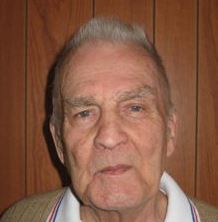
(Inducted in 2003) Born in 1924, Legentile owns an impressive career as a player, coach, manager and especially as an official. His contributions on his native St. Pierre and within Newfoundland and Labrador soccer are considerable as he set an excellent example for players and officials alike. He was only 14 years old when his skill and ability on a soccer pitch earned him a position with the ASSP team in 1938. This is all the more impressive because at the time the ASSP club was the only senior soccer team on the island and it required exceptional talent to become a member. His playing career lasted 15 years and included high level games against teams from visiting French and British war ships as well as teams from Newfoundland. His conduct on the pitch, coupled with his skill and ability, earned him great respect from local and visiting players and it was natural that after his playing career he would become an official. In a successful effort to master the rules and regulations of soccer, Legentile undertook coaching and managing responsibilities with ASSP and added to the general respect he had earned as a player. Moving into the officiating aspect of soccer in the mid-1950s, Legentile quickly mastered the position and became an expert. Learning well on the local scene, he attended a referee’s course at the Institut National de Sport in Paris and earned his certification. His duties included calling all games on St. Pierre, especially those against visiting Newfoundland clubs. His fair and unbiased conduct and great knowledge and positioning during these games impressed Newfoundland soccer officials and Legentile was introduced to very important games between Newfoundland teams. He called the first provincial junior title series with St. Pat’s of St. John’s at St. Lawrence, the Grand Bank senior title series at Corner Brook and many, many games featuring Burin Peninsula and St. John’s teams. In all cases, his officiating was of the highest level and allowed teams to play under extremely fair circumstances. Legentile has been a great credit to St. Pierre and Miquelon, a great credit to his family and friends, a great credit to soccer and a great credit to himself. He is a very fine addition to the Newfoundland and Labrador Soccer Hall of Fame.
Dave LeGrow

(Inducted in 2012)
Dave LeGrow has been an executive work horse for both the Mount Pearl and Provincial soccer associations for over twenty years, On the provincial scene, he has served as treasurer for four years and secretary for two terms, a position he now holds. In addition to his executive roles, he has taken lead roles with a number of key committees within the NLSA Board. Regionally, Dave has served as treasurer and secretary of the Mount Pearl Soccer Association and served or chaired numerous key committees. For his efforts, he has been twice named Executive of the Year by both the Mount Pearl and the Newfoundland and Labrador Soccer Associations and has received the Mount Pearl Sports Alliance Executive of the Year. In 2012, he was inducted into the Mount Pearl Soccer Hall of Fame.
Jim Loder
![]()
(Inducted in 2005) Exceptional performances as a player, respected contributions as an official and dedicated service as a coach highlight Jim Loder’s soccer career. A St. Lawrence all-star, this impressive individual gave a great deal back to soccer during and after his playing career was completed. Much of Loder’s minor soccer was played in Quebec between 1962 and 1970 but upon his return to St. Lawrence he joined a group of local stars and moved into the serious side of the sport when he attended Memorial University on his way to a physical education degree. He blossomed under top coaching at MUN and became a valuable member of the varsity team from1970 to 1974. His play was of such high calibre that he earned a berth on the Newfoundland and Labrador all-star squad for the 1973 Canada Summer Games. From 1973 until 1985 he played a major role in the impressive success that St. Lawrence put together within Burin Peninsula, provincial and national senior soccer competition. After 1985 he often filled in with St. Lawrence when and where it was necessary. He was a valuable member of St. Lawrence clubs that racked up four appearances in national Challenge Cup finals, earned two Atlantic Challenge Cup titles, captured one Eastern Canadian championship and won nine provincial Challenge Cup crowns as well as being designated provincial team of the decade for the 1970s. His stellar and fearless play at left fullback, coupled with fine performances in other positions when necessary, was a major aspect of the St. Lawrence successes. On at least eight occasions he was selected to play with all-star teams that faced visiting high level clubs such as Ayr United and in all outings he was one of the better local performers. The numerous individual awards that he earned are another indication of his great skill and talent. After his senior career, he moved into masters soccer with St. Lawrence and continued his impressive play with major contributions to the remarkable 11 provincial championships that teams of which he was a member earned. From 1973 to the present, Jim Loder has been a fine soccer official, rising to a class one level. Earning respect from all the soccer people with whom he has been in contact, his officiating has been used at many, many local and provincial games and on several occasions for national championships. An excellent indication of the quality of his soccer involvement was his 2004 selection by the Newfoundland and Labrador High School Athletic Federation for a special award to recognize a remarkable 28-year coaching career. His devotion to soccer, and to St. Lawrence, is noted very well by this aspect of his life. In addition to his school involvement, he has coached age-group teams at the local and provincial levels and on two occasions has headed Newfoundland and Labrador teams at national championships. He has been inducted into the St. Lawrence Soccer Hall of Fame.
Bob LeMessurier
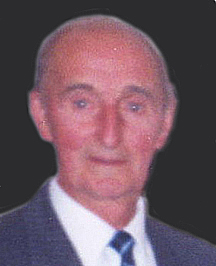
(Inducted in 1999) Bob LeMessurier started playing soccer in 1939 when he played for Curling during a three-year-period. This was the beginning of an outstanding 18-year career that saw him establish himself as one of the finest fullbacks to ever perform within the province. After joining the Royal Navy in 1941, Bob LeMessurier earned a spot on many navy soccer clubs in England and this experience provided him with an excellent knowledge and background for local and provincial competition. He returned to Corner Brook in 1945 and was one of the main instigators associated with the founding of the Curling Rangers soccer team in 1947. It was with the Rangers that he combined with St. Lawrence native Joe Lundrigan to form one of the best fullback combinations in provincial soccer history. Bob LeMessurier enjoyed an extremely rewarding ten-year career with the Rangers prior to being transferred to Grand Falls by his company in 1956. From 1947 to 1956, he was selected a Corner Brook all-star and stood out in exhibition games against teams from visiting paper boats and other ships as well as in provincial play from 1951 to 1956. Teaming with Lundrigan, LeMessurier prevented opposing forwards from getting scoring chances and in only two games during his all-star career did Corner Brook lose by more than one goal. Always a credit to his team and to his sport, Bob LeMessurier played a major role in the two provincial championships that Corner Brook won while he played. His sportsmanship was always evident and was matched only by his great skill and talent on a soccer pitch. Bob LeMessurier joins his brother Walter in the Hall of Fame.
Walter LeMessurier
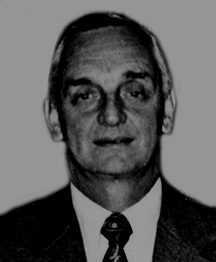
(Inducted in 1983) An athletic career that involved great success in seven different sports and an impressive list of contributions to a wide range of athletics had Walter LeMessurier elected to the Newfoundland and Labrador Sports Hall of Fame. Soccer, baseball, hockey, softball, billiards, table tennis and golf were sports in which he did amazingly well. He chaired the Hall of Fame Board of Governors, was a provincial sports federation vice-president and filled many other sports executive positions. With MVP selections and two provincial championships to his credit, Walter LeMessurier is a provincial soccer hall of fame member. His local .519 batting average was a Corner Brook baseball high and in provincial play he hit .500 and .313. An excellent hockey player, he stood out at the local and provincial levels of competition. He was an outstanding softball pitcher and shortstop and won singles and doubles table tennis titles at the Corner Brook and provincial levels. Western Newfoundland billiards champion, Walter LeMessurier earned a berth on the provincial representatives at the Canadian seniors golf championships. Known for his sportsmanship, he made important contributions to a wide range of activities, especially athletic organizations and events. In due regard for his tremendous playing achievements and organizing contributions, Walter LeMessurier was inducted into the Newfoundland and Labrador Sports Hall of Fame November 4, 1988.
Jack Lundrigan

(Inducted in 2003) A playing career followed by a coaching career that lasted more than 30 years and was overflowing with outstanding success, made Jack Lundrigan one of the top soccer personalities to come out of St. Lawrence and therefore one of the best within the province. Overall, he was an extremely beneficial and impressive influence on the St. Lawrence soccer community from the late 1930s to the late 1960s. Jack Lundrigan’s soccer career, according to him, was influenced greatly by his parents Pat and Sara Lundrigan, and by Father Thorne who brought him into the St. Lawrence senior soccer picture in 1938 at the age of 17. It quickly became apparent that his hard-nose style of fullback play surprised many of his opponents as he worked defensively with a flawless style. He wore the St. Lawrence senior uniform for 17 seasons, counting as teammates many of the finest players to come out of that community. He was a major factor in the Laurentians success within Burin Peninsula competition and especially with the 1951 and 1952 provincial champions. Performing against strong Holy Cross, Guards, Feildians, Corner Brook and St. Pierre clubs as well as Burin Peninsula teams, Jack Lundrigan established himself among the best soccer players of his time. As a top-level coach, Jack Lundrigan continued the success he earned as a player. He led St. Lawrence to its first national Challenge Cup appearance in Toronto in 1967 with the club losing by a very close 3-2 score. In addition to several Burin Peninsula championships, he coached Laurentian teams that won two provincial titles and one Atlantic Provinces championship. It was under his tutorship that provincial soccer hall of fame players like Norm Kelly, Cyril Quirke and Reg Farrell expanded their soccer knowledge and improved and increased their soccer skills and ability. Jack Lundrigan was very able in passing on the expert soccer knowledge that he possessed to the members of teams that he coached. It was apparent during his complete coaching career that he knew well the game of soccer and was very able in passing his knowledge along to others. He contributed greatly to the St. Lawrence soccer tradition and in so doing was a great benefactor to soccer in general. Jack Lundrigan was inducted into the St. Lawrence Soccer Hall of Fame in 1978 and was inducted into the Burin Peninsula Soccer Hall of Fame in 1995. He died in 1980. His son Kevin is a member of the St. Lawrence Soccer Hall of Fame. Jack Lundrigan was nominated by Len Slaney.
Joe Lundrigan
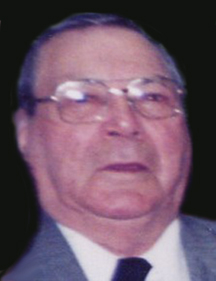
(Inducted in 1999) After playing as a teen and a youth in his native St. Lawrence, Joe Lundrigan was a member of his army unit’s team in England for three years during the Second World War. He played for St. Lawrence in 1946 and moved to Corner Brook in 1947. At the local league level, he starred as an extremely effective fullback for Curling Rangers from 1947 to 1951 and was a major factor in the club winning the championship every year. From Corner Brook’s first entry into provincial competition in 1951 to 1956, Joe Lundrigan ranked with the best fullbacks within the province. He was a fearless defender who earned a reputation for starting his own club’s attacks from the defensive zone. Joe Lundrigan was an important factor in the two provincial championships that were won by Corner Brook teams on which he played. Always praised by Corner Brook keepers, Joe Lundrigan was one of the main reasons why Corner Brook lost only two games by more than one goal during his provincial career. A 1-0 decision over St. John’s in St. John’s was the top game of his rewarding career and demonstrated his great ability in the defensive zone. Bob LeMessurier was his fullback partner for Corner Brook and it is more than appropriate that he has also been elected to the hall of fame this year. While Joe Lundrigan’s performances on a soccer pitch earned him hall of fame election, it should be noted that he attended a national coaching clinic in Montreal and continued in that capacity with Curling Rangers after his retirement as a player.
Jo Anne Mallay
Jo Anne Mallay established herself a top Burin Peninsula player of the 1980s and early 1990s,
playing at the local, Atlantic, university and Jubilee Trophy levels. This included participating in
U18 and Jubilee Trophy national championships, as well as in the women’s 1985 national
tournament as part of an all-star team representing Newfoundland and Labrador. Her passion
for soccer speaks to service to the sport as a long-time volunteer, organizer, and coach. As an
administrator for the Marystown Minor Soccer Association, she focused on every aspect of the
game from field safety, to growing and attracting coaches and mentors, and worked closely with
the Burin Peninsula Soccer Association to unify soccer across communities. She coached
multiple BPSA teams at the metro and provincial league and NLSA level. Jo Anne put particular
emphasis on reviving female soccer at the grassroots level providing young females with quality
coaching combined with starting the “Play Like a Girl” Program. This led to a resurgence in
female participation at the youth level and paved the way for BPSA’s female teams entering
competitive play in the St. John’s metro league and provincial leagues. Her hard work has also
contributed to producing a succession of female athletes that are now representing the province
in multiple competitions and levels. Jo Anne is also a member of the Burin Peninsula Soccer
Hall of Fame.
Terry Mallay

(Inducted in 1998) Born in Kent, England, Terry Mallay grew up in Marystown, was educated in St. John’s and worked in Labrador where he became involved in soccer prior to returning to Marystown in 1965. One year after returning to Marystown, he was responsible for Marystown becoming a full member of the Burin Peninsula Soccer Association since previously Marystown played only on an exhibition basis. Terry coached a Marystown junior team in 1966 and had a senior club as well as a junior team in 1967. His soccer involvement since 1966 has been varied and important at the local, regional and provincial levels. Between 1967 and 1985, in addition to serving as a member of the Marystown soccer executive, he filled a wide range of other soccer positions and performed all of his duties in an excellent manner. One of the first Canadian Soccer Association certified coaches within Newfoundland and Labrador, Terry Mallay coached teams at the regional and provincial levels. He served on coaching staffs of Marystown, Burin Peninsula and provincial all-star clubs. He was manager of Canada Games and provincial teams and played a major role in the organization of the Ayr United visit in 1975 and the Queens Park visit in 1980. Often a Burin Peninsula delegate to the Newfoundland Soccer Association, he served as a provincial vice-president. In addition to his soccer contributions, Terry Mallay is a level five hockey coach, has been a member of the Marystown Recreation Commission for 35 years, was a member of the organizing committee for the 1980 and 2005 provincial Summer Games, and served as a director of the provincial sports federation. Terry Mallay has made a tremendous contribution to the development of soccer during the past thirty years and has played a special role in Marystown soccer.
Connie (Cooper) Marshall
For the past 30 years, Connie (Cooper) Marshall has established herself as a player, coach and administrator. Competing in both the Burin Peninsula and St. John's leagues, she was instrumental in her team winning championships in both leagues. In mid to late 1990's, the urge to play a role in advancing the game of soccer, particularly on the women's side, saw her getting elected to the BPSA. and serving in a number of executive and Board positions. In 2001 she was elected to the NLSA board as VP Sr. Women. For the next seven years she feverishly pushed to advance women's soccer in the Province.
In 2000, Connie began her coach career, quickly moving through the certification steps to the position of National B coach. As Head Coach of our Provincial age group teams, she achieved success at Atlantics and at Nationals. Although work commitments forced her to move to Ontario, she continued her coaching, to include Master Learning Facilitator and Head Mentor Coach (women) with the Ontario Soccer Association.
Pat Marshall
Despite his teenage years, Pat Marshall displayed the calmness of a veteran player as he started to establish himself as an impact player in both the St. John’s Junior and Senior leagues of the 1950’s and 1960’s. In an era where kick and run were the styles of play, he started to open eyes with his slick passing and ball possession techniques. His ability to execute under pressure, particularly when taking a penalty, earned him the title of “Mr. Penalty Shot”
Given the honor of team captain by his teammates, he didn’t disappoint. Newspapers of the day said he was a classy midfielder, a perfect gentleman with the intensity and fight of a tiger when challenging for the ball. His overall play and leadership over his career earned his St. Pats team four St. John’s Senior championships and one Provincial Senior championship in a period five years.
During his career, Pat was a perennial league All-Star, a league MVP, a Most Gentlemanly and Effective Player and a yearly contender for the scoring title. His value to his St. Pats team has been clearly recognized by the number of times his teammates chose him as their Most Valuable Player.
Ron Martin
A feared striker who gave 110% every time he played, Ron “Knockers” Martin was a key cog in
the wheel that powered the golden Feildians teams of the 1960s. Ron started his soccer career
in 1961, winning the City Championship with the Feildians Juniors. That same year, he was
called up regularly by the Feildians seniors who also went on to win the City Championship,
making a name for himself as a creative and tenacious goal-scorer and future leader. By 1962,
he was chosen the team’s Most Valuable Player. Ron was a strong, determined player with the
stamina required to cover both offense and defense under the old style of play, and adapted
quickly to the new format of the late 60’s becoming a formidable striker for the double blues. He
was part of the team’s first-ever All-Newfoundland Championship in 1964, contributing one of
Feildians’ three goals in their 3-0 tiebreaker in Grand Bank. By 1969, he had further matured as
a player and teammate, serving as captain to lead the 1969 Fieldians to both the City and All-
Newfoundland Championships once again.
Bill Matthews
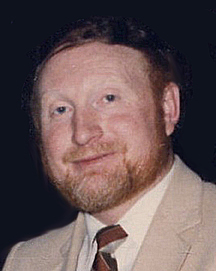
(Inducted in 1992) As a player and as a coach Bill Matthews enjoyed exceptional success within Newfoundland and Labrador soccer. Extremely skilled as a player he developed a keen knowledge of the game and carried this expertise over into his coaching years. Owner of great leadership qualities, he used this aspect of his game to great advantage as both a player and a coach where his motivation skills were very valuable. A graduate of Grand Bank minor and school soccer, Bill Matthews grew up in a strong soccer environment and it was upon this foundation that he built his career. His talent and leadership qualities were especially effective in provincial senior soccer championships when they were key aspects of the 1970 and 1971 championships that were achieved by the Grand Bank GeeBees. The lone year that Newfoundland and Labrador sent a provincial all-star team to the national Challenge Cup championships was 1970 and not only was Bill Matthews a member of that club but he was elected co-captain. As one of the better centre halves to play soccer within the province, he was a constant benefit to any club of which he was a member. Besides contributing a great deal to Grand Bank and Burin Peninsula soccer, Bill Matthews played with and coached Feildians of the St. John’s Senior Soccer League while he was attending Memorial University.
Walt Mavin

Although his playing career showed potential, Walt Mavin found his calling as a builder. For the past 20 years he has served his region, club, and Newfoundland and Labrador Soccer Association as a coach and as an administrator. His coaching career began in 1995 when he started coaching Mount Pearl youth teams in provincial tournaments. For the next 20 years, in addition to coaching club all-star teams, he has found time to coach provincial, Mount Pearl Challenge Cup and Memorial University women's teams. Although championship success was modest, his youth teams did captured provincial and Atlantic age group championships, his Challenge Cup teams won a provincial Challenge Cup championship and seven years running was the top senior team in the St. John's League. His true measure of success as a coach however, was on two occasions he was named NLSA Coach of the Year. In addition to coaching, he found time to spend 11 years serving in various capacities on the Mount Pearl Soccer Association executive, including four years as president. During his tenure as president, he played a major role in helping Mount Pearl acquire a new Soccer Hut and Field Turf facility. For his contribution as a builder, Mount Pearl has inducted him into its Soccer Hall of Fame.
John McGrath
After a short career as a player, John McGrath quickly found himself immersed in the administrative side of soccer. His first major task as a young administrative volunteer in the 1970’s, was to sort out and tidy up concerns involving discipline. Encouraged by the soccer leaders of the day, he stepped up and became NLSA President, serving from 1979 - 1981. During his tenure as President, he implemented and oversaw many changes to the present structure of the game. Some of the initiatives saw the reorganization of the divisional structure, changes to the structure of Challenge Cup and the establishment of a Masters league for players over thirty. Other initiatives saw increased participation in youth soccer, higher player registration, the securing of major corporate sponsorship and the establishment of the Newfoundland and Labrador Soccer Hall of Fame.
During the 1970’s and 1980’s NLSA hosted a number of National and International events which required knowledgeable and dependable volunteers. With his background and experience, he was always front and center to pitch in and do his part. For his contribution to the sport of soccer and to SportNL, John was inducted into the Newfoundland and Labrador Sports Hall of Fame.
Jim McNamara
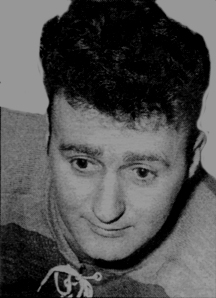
(Inducted in 1998) Jim McNamara was as good as any player who ever performed in St. John’s senior soccer. A member of St. Bon’s senior teams from 1948 to 1962, he played in the St. John’s league during a period when first Holy Cross and then Guards dominated team competition at the Ayre Athletic Grounds. A centre-half, usually playing against teams that were better than his own, McNamara earned the respect of opponents and fans alike for the excellence of his play and for the leadership he provided every club of which he was a member. While St. Bon’s won only one city title during his career, McNamara was selected to every all-star squad that was put together during his time in the St. John’s league. In fact, the only time the provincial senior championship was won by a St. John’s “all-star” team rather than “club” team, McNamara was one of its most valuable players. His soccer career started in 1947 when he earned a berth on the school team at St. Bonaventure’s College. He was a member of four school teams that won championships. McNamara’s senior soccer career started in 1948 when he joined St. Bon’s in the St. John’s league and it lasted until 1961 when he retired mainly because of work commitments that took him out of St. John’s. He was an outstanding athlete with soccer as his best sport. Had he played with Holy Cross or Guards, he would have added to their championship totals. As it was, he was among the very best senior players to perform in the St. John’s senior league from his first game to his last. In addition to his tremendous skill and talent as a player, Jim McNamara displayed the utmost in sportsmanship, being called for a very small number of infractions during his 14 seasons of the best ball possible. He is a member of the Newfoundland and Labrador Sports Hall of Fame and the Newfoundland and Labrador Basketball Hall of Fame in addition to the Newfoundland Soccer Hall of Fame. He enjoyed great success in hockey and track and field.
Adrian Miller
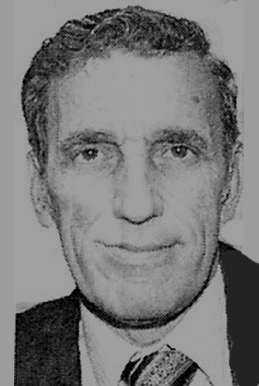
(Inducted in 2002) Adrian Miller owns an exceptionally successful career as a builder within a wide range of soccer activities during a 40-year period. He filled an extremely large number of executive and organizing positions in a manner that added much to their individual success and thus contributed greatly to the expansion and betterment of soccer in every area of Newfoundland and Labrador. Working with dedication and determination in a quiet but extremely effective manner, Adrian Miller was a beneficial contributor to soccer at the team, local and provincial levels while fulfilling important responsibilities connected with national and international events that were held within the province. He was associated with many of the very successful international tours and national championships that earned provincial soccer a very high reputation at every level of soccer. His involvement greatly assisted the tours of Ayr United, Northern Ireland Selects, Queen’s Park Rangers, the World Cup games in 1972 and 1985, the 1990 Petro Challenge Cup Tournament, the 1987 FIFA U-16 World Tournament, national and Atlantic Challenge Cup competitions in St. John’s and St. Lawrence. Adrian Miller served in every position on the St. John’s soccer executive and contributed much as provincial vice-president for several years. He is credited with playing a major role in the early peewee and bantam trips for competition in Montreal. Adrian Miller is a member of the St. John’s Soccer Hall of Fame and the Bell Island Sports Hall of Fame. In addition to soccer, he was involved in track and field and hockey as an athlete-builder while making many contributions as a builder to lacrosse and rowing. Adrian Miller is a member of the Newfoundland and Labrador Sports Hall of Fame.
Bill Miller
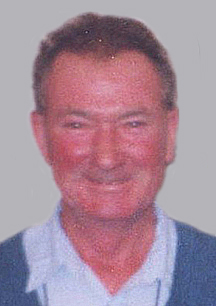
(Inducted in 2003) A career overflowing with valuable and worthwhile contributions to soccer on St. Pierre and Miquelon and within Newfoundland and Labrador marks Bill Miller’s efforts. Providing impressive leadership for soccer on St. Pierre and Miquelon and filling the demanding role of liaison with the provincial association for many years, he has been a great asset to the sport in both organizations. An effective and reserved individual who has earned great respect from all the soccer people with whom he has come in contact, Miller has provided the perfect link between the two associations of which he is a member. Since 1971 he has cemented relationships between Newfoundland and Labrador and St. Pierre and Miquelon, thus allowing the two to be of apparent benefit to each other. Born in 1938, Miller joined the ASSP in 1948 and owns a contributing membership in the organization for 55 years. In July, 1952 just days prior to his fourteenth birthday he used his exceptional speed to score the first goal of his career in Grand Bank during his first game outside of St. Pierre and Miquelon. It was a memorable goal and the first of many he would score during a rewarding playing career that included action in St. John’s, Corner Brook, all over the Burin Peninsula and against teams from North Sydney and Halifax. In addition to his fine playing ability, Miller has been a long-time contributor to the organizing and administrative aspect of ASSP, serving on its committee and as vice-president and president, a position he accepted in 1994 and continues to hold. Much of the success of the St. Pierre Sports Association is a direct result of his drive and work and he has been a major factor in the fine relationship that exists between the ASSP and the Newfoundland and Labrador Soccer Association. The respect and affection that Miller has within both soccer associations has been well earned and a large number of successful activities between the two areas have been accomplished because of him. He has been a leader in the ASSP 100 year anniversary celebrations and is an excellent addition to the Soccer Hall of Fame.
Dragan Mirkovic
Having played professional soccer in Croatia prior to coming to our Province, Dragan’s early years playing Challenge Cup, amazed everyone with his ability to finish and express himself. Not knowing what he meant by those terms, but we quickly found out.
When NLSA offered the position of Technical Director to him in 1999, Dragan quickly immersed himself in all aspects of player and coaching development as he set his sights on changing the culture of soccer within Newfoundland and Labrador. Over the next twenty plus years, the results speak for themselves.
The initiation of the National Training Center (NTC) program in the early 2000s for promising young players has led to the partnership with the Vancouver White Caps which extends to 2026. He was a lead force in expanding our provincial teams’ program from three teams to as many as 12. Some might say that his greatest contribution was in the area of coaching development, where many of our coaches were encouraged and supported to achieve Provincial B and National level certification. His efforts to support women in coaching has resulted in many of our women coaches attaining these certification levels. At one point, our province had 6 of the 26 National B coaches in Canada.
Although coaching development speaks for itself, his success behind the bench also speaks volumes as many of his youth teams captured medals of all colors at Atlantic championships. His women’s teams have won the Jubilee Trophy 4 times and many of the young players in our programs went on to attain scholarships at various universities across North America.
Wils Molloy
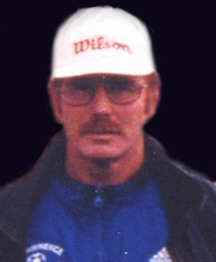
(Inducted in 1989) Playing a major role in the winning of a remarkable 37 soccer championships it was no surprise that Wils Molloy was elected to the Newfoundland and Labrador Soccer Hall of Fame. The St. Lawrence native showed enough skill and ability to play for the prestigious senior Laurentians at the age of 18 and was good enough to gain a berth on Canada’s Olympic team for a 1972 qualifying round game against Mexico. His record includes five Eastern Canadian, nine provincial first division, 19 Burin Peninsula first division and four provincial masters championship teams. Wils Molloy was an important factor in all 37 titles, playing with and against the finest soccer players of his time. Blessed with great talent, he was selected for numerous Burin Peninsula and provincial all-star clubs for exhibitions against British and other visiting teams and he earned many individual awards. He earned a reputation as a great goal scorer and as a player who combined sportsmanship with his exceptional ability. He was always a credit to his sport, his community, his province and especially to himself. In addition to his soccer accomplishments, he excelled in basketball, curling, ice hockey, softball and floor hockey. A member of the Burin Peninsula Soccer Hall of Fame and St. Lawrence Soccer Hall of Fame, it was for the manner in which he played exceptional soccer that Wils Molloy was inducted into the Newfoundland and Labrador Sports Hall of Fame November 4, 1989.
Frank “Butsy” Moore
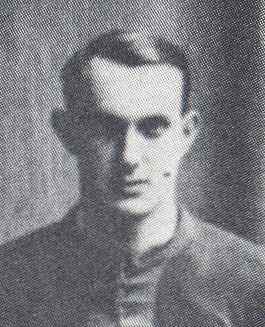
(Inducted in 1997) From 1926 to 1940, Frank Moore was the premiere goaltender in the St. John’s soccer league. He led Holy Cross to numerous championships and amazingly went three seasons without allowing a goal. A big man, 6’6?, he was exceptionally effective in the popular “football fives” contests of his era being able to throw the ball from one end of the pitch to the other. Moore was also captain of the only Holy Cross team to win hockey’s Boyle Trophy in 1934.
Sherry Morrissey
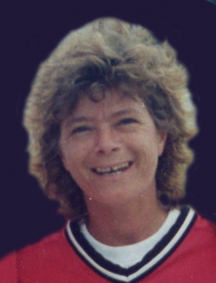
(Inducted in 2011) Sherry Morrissey was an athlete and an impact player on the soccer field. Although small in stature, she played as big as any player in the women’s program. Technically skilled and with speed to go along with competitive desire and toughness, she brought fear in all those she faced on the soccer field. These abilities made her one of the dominant players of the eighties. As a perennial scoring leader, both within her team and in the league, she was known for scoring the big goal. When a game winner or game breaking goal was needed she could be counted on to come through. In the 1980s she played on three St. John’s and three Provincial Championship Teams. She was recognized for her athletic abilities by being named St. John’s Female Athlete of the Year. She was the first female player to be inducted into the St. John’s Soccer Hall of Fame. The NLSA also honoured Sherry by naming her Female Player of the Decade for the 1980s.
Andrew Moyst
Andrews Moyst established himself as a player of worth when he helped his Newfoundland and Labrador team to the National Tier II U-17 Gold Medal. From there it was all uphill. In 1992, he was selected to the National U-21 Team training pool and began his Challenge Cup career with Mt. Pearl. During his time with Mt. Pearl, he helped his team to a Challenge Cup championship while winning a league MVP and being named as a league All-Star on a number of occasions.
After his playing career, Andrew established himself as an elite Provincial coach. While earning himself a National B certification, he coached successful Provincial and club teams and the 2005 Canada Games team. In 2011 he began refereeing at the senior level, officiating Challenge Cup, Jubilee Trophy and University caliber soccer while earning himself a Provincial Level certification. His poise and confidence in the middle, earned him the 2014 AUS Men's Championship game. Andrew has also been inducted into the Mt. Pearl Sports Alliance Hall of Fame.
Edward (Ed) Moyst
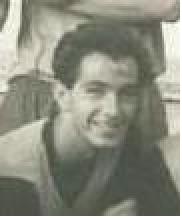
(Inducted in 1994) Ed Moyst began his love affair with the sport of soccer when he played as junior and senior player with the Feildian soccer Club between 1958 and 1971. During his 13 years as a player he won several junior and senior St. John’s and provincial championships as well as one Atlantic Challenge Cup championship. During his playing career he won a number of individual awards for his skill with the Feildians and in the St. John’s senior league. In the late 60s, Ed helped organize a soccer league for the Mount Pearl Kinsmen Club along with Charlie Chaytor. For this work and devotion he was named Kinsman of the year for 1972. That same year he became one of the founding members of the Mount Pearl Soccer Association and in 1973 was elected its first chairman. He has been on the executive of the club ever since acting as chairman twice, director twice, vice chairman once and then as administrator. Ed played a key role in starting a soccer program for girls. Girls soccer proved to be very popular and with Ed’s help the ‘girl’s league has grown to rival the success of the boy’s. The long and dedicated service of Ed Moyst has resulted in notable growth for the soccer program in Mount Pearl. In addition to his duties as an organizer and administrator for the soccer association, Ed holds a level three technical coaching certificate and a class two certificate as an official. He has worked as an official at soccer games for more than 30 years and was technical chairman for soccer at the 1988 Newfoundland and Labrador Summer Games. Ed Moyst’s contributions to the sport of soccer have not gone unnoticed. He was elected to the St. John’s Soccer Hall of Fame as a player in 1984 and to the Mount Pearl Soccer Hall of Fame 1996.
Tony Mullett

(Inducted in 2003) Determination coupled with skill and ability and an all-out effort in each and every game, marked Tony Mullett’s soccer-playing career that precluded another all-out successful effort to acquire as much soccer coaching knowledge as possible. The outstanding result adds up to a 25-year involvement at the local, provincial and national levels of soccer competition. As a hard-nosed and extremely effective back, Tony Mullett made important contributions to the great success that Holy Cross first division clubs earned between 1976 and 2001. His no-nonsense approach to soccer allowed him to play Challenge Cup during four decades with many team and individual rewards. Like many of his teammates, he was continuing a family soccer tradition and continuing it very well. He was especially effective for the Holy Cross teams that won a gold, silver and bronze medal in the elite national Challenge Cup competition, always demonstrating exceptional defensive ability and providing the highest calibre of determination. He was an important cog in the club’s outstanding drive to success. A member of 11 provincial championship teams, Tony Mullett was a valuable member of the Holy Cross club that won 15 consecutive St. John’s first division championships and represented Newfoundland and Labrador at five Atlantic Challenge events. In all competitions his play was spirited and he counts a provincial “top defender” selection among his numerous individual awards. He was a member of the 1977 Canada Summer Games bronze medal team. He coached Holy Cross for four seasons in provincial Challenge Cup as well as the team that represented Newfoundland and Labrador in the1997 Canada Summer Games. For nine years he was chief instructor and co-coordinator for Holy Cross training camps that attracted large numbers of young players. For the past five years Tony Mullett has been technical director for the St. John’s Youth Soccer Association, attaining a national “B” license from the Canadian Soccer Association. In his determined effort to obtain as much soccer expertise as possible, he has attended clinics and training camps in England and the United States and others conducted by expert international instructors. His coaching knowledge has had beneficial influence on the soccer careers of thousands of young players and continues to do so. From a playing and coaching perspective, soccer is simply better because of Tony Mullett.
Brian Murphy

(Inducted in 1996) As an athlete and as a builder Brian Murphy had an outstanding soccer career and this career had him elected to the Newfoundland and Labrador Sports Hall of Fame. He is a member of the Newfoundland and Labrador Soccer Hall of Fame and the St. John’s Soccer Hall of Fame. He has been voted the top sports executive in 2005, and the top coach in 1988 within the province. His soccer career overflows with success, as a player, as a coach and as an executive. His versatility is shown by his selection as an all-star goalie, and all-star defender and an all-star striker. He stood out for Memorial University varsity clubs and Holy Cross teams. Brian Murphy was a member of two of the three Newfoundland and Labrador teams that have won Canadian soccer championships, the 1974 MUN club as player and the 1988 Holy Cross team, as coach. He was a member of the provincial squad that won a bronze medal at the 1977 Canada Summer Games. In all he has earned more than 25 awards and has been awarded membership in Memorial University’s Athletic Honor Society. His leadership has been extremely prominent within soccer and he played the major role in obtaining the excellent new soccer facility in St. John’s. In basketball, he was a perennial all-star guard winning Most Valuable Player and scoring awards. His contributions to every basketball team with which he played were extremely valuable and his value was demonstrated by his selection in a Telegram poll as one of the best ten basketball players all-time within the province. As a coach and organizer he has returned much to the sport. Great soccer and basketball accomplishments and contributions had Brian Murphy inducted into the Newfoundland and Labrador Sports Hall of Fame October 16, 1999.
Denis (Dee) Murphy
(Inducted in 2011) For over 50 years Dee Murphy has served the soccer community either through his position as a sports writer, television commentator or as a soccer volunteer. Through his many contacts, Dee has helped promote soccer throughout the Province and in the rest of Canada in his role as Public Relations person for the NLSA. Every young player throughout the Province who has made a Provincial Team or has made good on the National scene has had a story or their name mentioned in their local media. This recognition has inspired many young players to seek out their dream goals as soccer players. Through Dee’s efforts, the NLSA has established themselves as the best when it comes to reporting results on Provincial and National Tournaments. In addition to reporting on soccer, Dee has chaired a committee to record the history of soccer in St. John’s. He was a member of the NLSA Hall of Fame Committee for 15 years and has coached his Black Horse Women’s Soccer Team to three St. John’s and two Provincial Championships.
Monsignor John Murray
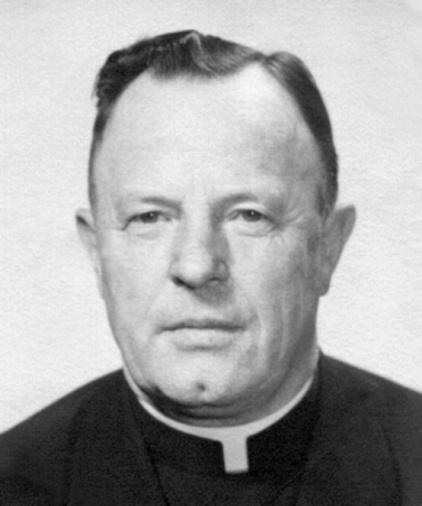
(Inducted in 1997) Monsignor John Murray was one the best players when he grew up in St. Lawrence, continued to excel during his education at St. Bon’s College in St. John’s and was good enough to play top-level soccer while attending a seminary in Ireland. Upon his return to St. Lawrence as a priest, he played a major role in laying the foundation for a soccer program and tradition that has given the community a soccer record that is outstanding.
Rudy Norman
Every generation a player seems to stand well above the rest. During his 23 years of Challenge Cup competition and his five years of university play, Rudy Norman’s accomplishments certainly verify that he was one of the best. During his lengthy career, Rudy was a 14-time Provincial Challenge Cup champion, the most by any individual and a three-time National Challenge Cup medalist, winning a silver and two bronze medals. Individually, he was a seven-time Challenge Cup Top Scorer and a three-time Challenge Cup MVP in addition to being selected 14 times as a Challenge Cup all-star. His value to the St. Lawrence Laurentians over the years has been recognized 10 times with the team’s Most Dedicated Player award. For his outstanding play at Nationals, he has been a three- time recipient of the Gerard Quirke Award. To recognize his outstanding achievements, Rudy was named the NLSA Player of the Decade (2000 - 2010) was and inducted into the Burin Peninsula Soccer Hall of Fame.
Alex Noseworthy
In 1951 at the age of 14, Alex Noseworthy began his senior soccer career while playing for the Fortune Apollos. His first two years saw him playing as forward because of his speed and aggressive play. Recognizing that he had more than just pace and aggressiveness, he was moved to the center midfield position, a position he played until he retired. While playing in this midfield position he was able to demonstrate his true abilities as one of the top midfield players of that era. While playing against the powerful St. Lawrence and Grand Bank teams of the 1950s and 1960s, he more than held his own as he made them earn every inch of field they gained. One the highlights of his career was the winning of the Dr. Dubinsky award, an award which recognized skill and ability and was given to the Burin Peninsula all-stars most valuable player. Alex is also a member of the Burin Peninsula and Fortune soccer halls of fame.
Cecil Noseworthy
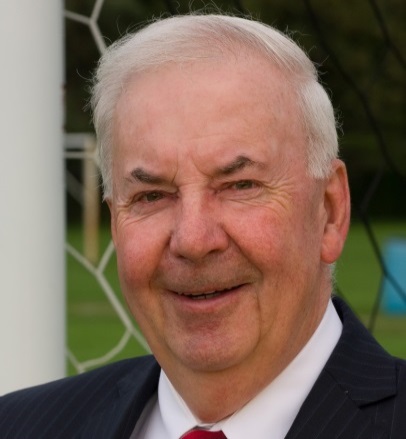
(Inducted in 2013) Cec Noseworthy has served the soccer community for more than 20 years. In the early seventies when the call went out for more officials, he decided to give it a try. By the mid seventies he earned his Provincial Instructor designation and in 1978 he was one of two who became our Province's first CSA National Badge referees.
By the early eighties, Cec qualified as a National Instructor and National Assessor. These qualifications saw him travel across Canada assessing officials and instructing on courses. Two of his highlights however, were the preparation of officials for the 1977 Canada Summer Games which saw 28 of the 35 officials needed for the Games, come from this Province. The second was the opportunity to instruct at the FIFA CONCACAF Referee's Seminar in 1978.
As a referee, Cec refereed at all levels. He officiated at National Challenge Cup and University Championships as well as having the opportunity to referee in nine games which involved Canada's National Team. In 1992, he was inducted into the St. John's Soccer Hall of Fame.
Gerry O’Brien
Forty plus years of involvement in the game has produced numerous moments of excitement and rewards in his role as a player and as a coach. From his early years as a player, all-star selection and provincial championships were a common occurrence. Upon entering the senior ranks, he established himself as one of the premier defenders of his era. His 30 years of senior ball saw him playing Challenge Cup, Intermediate and Masters. His defensive skills earned him a Top Defender and All-Star selections at the Challenge Cup level. Stepping back from Challenge Cup, Gerry found success at the Intermediate and Masters level, winning City and Provincial championships. His greatest pleasure, however, was capturing two Eastern Canadian Masters championships.
Before his playing days ended, Gerry got the coaching bug. His initial debut in coaching was as a playing coach with Mount Pearl Challenge Cup and later with Mount Pearl Intermediates. It was at the youth level, however, that he made his mark as a coach. For the past 15 years he has worked diligently at the club and provincial level with teams of all age groups. His easy going demeaner has allowed him to get the most from his players. For his efforts, he has been inducted into the Mount Pearl Soccer and Sports Alliance Halls of Fame.
Malcolm Osmond
Those who say nice guys never win, never had the privilege of knowing Malcolm Osmond. Throughout his twenty year soccer career with the Grand Bank Gee Bees during the 1950’s and 60’s, he exemplified the qualities of an outstanding athlete. His exceptional sportsmanship shown to all teams and players, along with his positive attitude and fair play, earned him the respect of the Burin Peninsula soccer community. In 1951 at the age of 18, Malcolm was selected to the Burin Peninsula All-Star team. From 1957 to 1964, Malcolm’s Grand Bank team won six Burin Peninsula senior championships and two Provincial championships. His outstanding play during the 1962 provincial championships earned him the MVP of the tournament. His team’s overall excellent play during the 1960’s earned the distinction of NLSA Team of the Decade. Malcolm is also a member of the Grand Bank and Burin Peninsula Soccer Halls of Fame.
Trevor Paine

(Inducted in 2007) For more than 20 years Trevor Paine made extremely beneficial contributions to soccer within Newfoundland and Labrador, especially youth soccer and especially within Labrador and particularly to soccer in the Lake Melville area. His work and expertise have been important and valuable in the growth and expansion that provincial soccer enjoyed during his time as a member of the provincial executive. Paine arrived in Happy Valley-Goose Bay in 1980 with the British Royal Air Force, married and settled down in 1982. He was elected president of the Happy Valley-Goose Bay Minor Soccer Association in 1986, providing the leadership and foresight that resulted in the Shriners indoor soccer program attracting 700 players in 2005. Coupled with excellent outdoor facilities, qualified coaches, working volunteers and a high calibre of competition, the overall operation ranks highly with any other and Paine’s leadership played a major role in it all happening. A great deal of the credit for the excellent state of soccer in Happy Valley-Goose Bay belongs to Paine. He is the catalyst that has attracted others who work in a very co-operative manner to make the complete operation function smoothly and expand successfully. During 15 years as Labrador East director for the provincial association and as its technical director as of 2001, his planning and work has been responsible for the introduction of rewarding programs that have opened provincial youth all-star teams to qualified players from every area of the province. Providing hands-on leadership and working with other dedicated and qualified individuals, his contributions have been exceptional. While the outstanding Happy Valley-Goose Bay minor soccer operation is a major aspect of his achievements, he has contributed much to the Lab Cup annual tournament and many other Labrador projects. But his work includes much more than Labrador. He has been responsible for many successes at the provincial, national and even international levels of soccer. He is simply a qualified soccer leader with a willingness to work long and hard to ensure that many people benefit from his efforts. Paine served on a large number of committees within sport, including the board of directors of Sport Newfoundland and Labrador, and owns a record of accomplishment within the Labrador community. He is the third Labradorian to be elected to the soccer hall of fame, joining Stan Jackowski and Aubrey Pike of Labrador City.
Bob Perks

(Inducted in 2013)
For almost thirty years Bob Perks has been part of some aspect of soccer. He has played, coached, officiated and served on the organizational side of the game. Although individual recognition was light, he could be considered the one who provided the glue, that uniqueness that helped win two Atlantic University Championships as well as St. John's 1st and 2nd Division Championships along with five Masters Division's titles.
Bob's greatest strength however, was on the administrative side of the game. His uniqueness as an organizer and logistics expert saw him for a twenty year period, being part of the Host Committee for every major International event host by the NLSA. These events would include two World Cup Qualifiers, the FIFA U-16 World Cup and a number of International Friendly games.
In 1985, Bob was elected NLSA's Youth Chairperson. Over the next five years working closely with NLSA President, George Innes, they restructured the youth programs throughout the Province. This restructuring saw a drastic increase in the number of youth teams competing with youth registration increasing three fold.
Boyd “Buck” Pennell
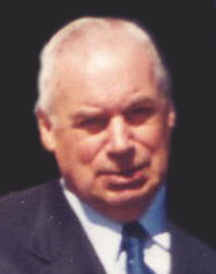 (Inducted in 1999) At the St. John’s and provincial levels of soccer, Boyd “Buck” Pennell earned an outstanding reputation as a goalkeeper during a 17- year career, from 1952 to 1969, with a variety of Feildian teams. Extremely agile, possessing great soccer knowledge and always demonstrating fearless moves, he backstopped many impressive victories. His St. John’s showing included City championships in 1961 and 1966 coupled with top goalkeeper individual awards in 1958 and 1961. He was selected as Feildian team Most Valuable Player in 1958 and 1964. At the provincial level, he was goalie for Feildian clubs that won the 1964 and 1969 championships. In the ’64 finals against Grand Bank GeeBees he allowed only one goal and posted two shutouts in three games. He was named provincial MVP and top goalie for 1964.
(Inducted in 1999) At the St. John’s and provincial levels of soccer, Boyd “Buck” Pennell earned an outstanding reputation as a goalkeeper during a 17- year career, from 1952 to 1969, with a variety of Feildian teams. Extremely agile, possessing great soccer knowledge and always demonstrating fearless moves, he backstopped many impressive victories. His St. John’s showing included City championships in 1961 and 1966 coupled with top goalkeeper individual awards in 1958 and 1961. He was selected as Feildian team Most Valuable Player in 1958 and 1964. At the provincial level, he was goalie for Feildian clubs that won the 1964 and 1969 championships. In the ’64 finals against Grand Bank GeeBees he allowed only one goal and posted two shutouts in three games. He was named provincial MVP and top goalie for 1964.
Vince Pickett
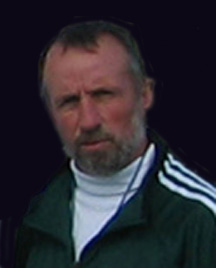
(Inducted in 1996) Vince Pickett’s outstanding soccer career ran from 1966 to 2004 with extremely impressive results in every aspect of the sport. As a player, as a coach and as an executive he put together a tremendous record of accomplishments and contributions. He is simply a very exceptional soccer personality. He started as a junior player for Marystown and for several seasons played both junior and senior ball at such a high level that he was selected for the 1970 provincial senior all-star team for national championships. He starred for the Memorial University varsity squad from 1971 to 1976 with four Atlantic intercollegiate titles to its credit. In 1974 he played with the Burin Peninsula all-stars against Ayr United of Scotland. Vince Pickett’s coaching career got under way with a national clinic in 1976. He quickly developed into one of the finest coaches within provincial soccer calling shots for a variety of teams of all ages and in a wide range of competitions, always with rewarding success. He coached Marystown to the provincial Challenge Cup title in 2004 after winning a silver medal with the male club at the 2001 Canada Summer Games. He had four youth clubs win provincial honors and in 1995 the team he coached won the “Fair Play Award” at the national championships. He was provincial “coach of the year” and top provincial Challenge Cup coach for 1995 and in 1988 he was awarded a government of Canada certificate for his many contributions. As an executive, especially within youth soccer, his contributions range from Marystown to the Burin Peninsula to the provincial association. He is a member of the Burin Peninsula Soccer Hall of Fame and the Marystown Recreation Commission Hall of Fame.
Aubrey Pike
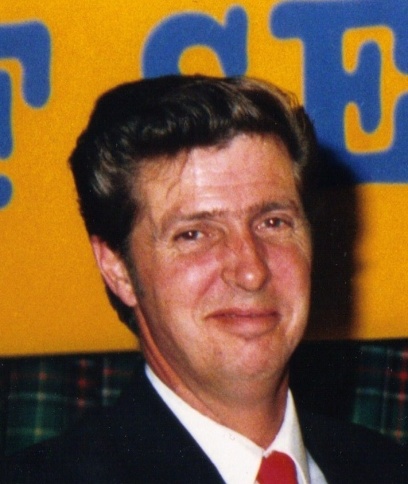
(Inducted in 1994) Aubrey Pike was the second hall of fame member from Labrador, joining Stanislaw Jackowski. He was the first to be inducted into the Labrador West Soccer Hall of Fame in 1982. After playing in his native St. Lawrence and St. John’s, Pike has been involved as a player, coach, official and executive with Labrador City soccer since he moved there in 1959. He has received numerous individual plaques and awards, played masters soccer and coached high school soccer. His great soccer talent and ability was equaled only by his love of the sport as clearly demonstrated by the time and effort he devoted to the game, especially during the early days of Labrador West soccer. He played a valuable, major role in the establishment of Labrador soccer.
Hobie Pike
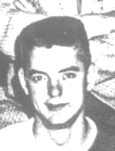
(Inducted in 1998) Hobie Pike enjoyed exceptional success as a player and referee during an 11- year soccer playing career that stretched from 1953 to 1964 and an officiating career that went from 1965 to 1972. Both as a player for Guards teams and as one of the province’s finest officials, he earned universal respect for his evident ability. His soccer talent was such that he was equally effective as a fullback, halfback, or forward. Hobie Pike’s soccer career began while he was attending Prince of Wales College in St. John’s. He was a member of several high school championship teams. From 1953 to 1957, beginning when he was 16 years old, he played for four Guards teams that emerged as St. John’s junior soccer champions. In 1957, in addition to being a member of the junior champions, Hobie Pike played for the Guards club that won both the St. John’s and provincial senior titles. His success as a player is clearly demonstrated by the fact that between 1953 and 1959 he was a member of eleven championship teams in just seven years. The titles came at the St. John’s and provincial levels. After his retirement as a player in 1964, Hobie Pike was appointed both St. John’s and provincial referee-in-chief in 1965. He held both positions for several years and until he ceased to officiate in 1972, made important contributions to the improvement and advancement of soccer officiating. Hobie was an official for the first national Challenge Cup game between a Newfoundland team and a visiting team when he called the 1967 game between Sydney, Nova Scotia and St. Lawrence. He was the only Newfoundland soccer official at the first Summer Games in 1969 in Halifax and was honorary chairman for the 1989 national Challenge Cup competition in St. John’s. He was inducted into the St. John’s Soccer Hall of Fame in 1986.
Frank Pitman
A distinguished senior playing career which lasted 20 years, Frank Pitman has accomplished just about everything one could hope for in soccer. To begin his career, he represented his Province at the National U-18 championships and the 1973 Canada Summer Games. While playing for the St. Lawrence Laurentians, he helped his teams to ten Burin Peninsula championship, eight Provincial Masters championships, two Premier's Cup titles and six Provincial Challenge Cup championships. While representing the Province at the National Challenge Cup championships, his team captured two National Challenge Cup Silver Medals. His team's success in the 1970's earned the title, NLSA Team of the Decade. Frank has also been inducted into the St. Lawrence and the Burin Peninsula Soccer Halls of Fame.
Kevin Pittman
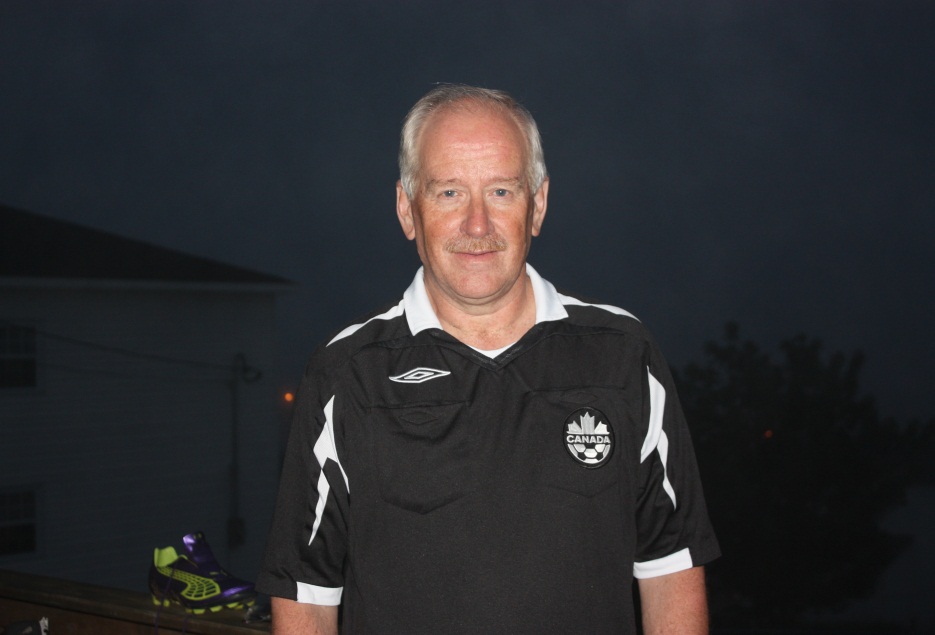
In a career that spans over 30 years and still counting, Kevin Pittman will have officiated at over 2000 games at every level of competition. Whether it was age group competition or a National Championship, he accepted all assignments. After receiving his first certification as a official, he aspired to and earned earn his National Level Certification. Not satisfied with just officiating, he went on to acquire his CSA's National Assessor's and Instructor's designation. These two classifications now allowed him to direct some of his energy to the development of up and coming young officials. In 2003, he was elected Vice-President Senior of NLSA and Commissioner of Challenge Cup. For his efforts, he has been inducted into the St. Lawrence and Burin Peninsula Soccer Hall's of Fame.
Bruce Power
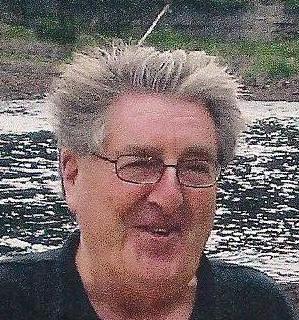
(Inducted in 1992) A tremendously successful and worthwhile 15 years as president of the Stephenville Minor Soccer Association made Bruce Power eligible for a well-earned induction into the Newfoundland and Labrador Soccer Hall of Fame. Extremely impressive leadership plus a willingness to devote plenty of time and effort to the development of young athletes in the Western Newfoundland community came together in an excellent minor soccer system. A native of Branch who moved to Stephenville, Bruce Power organized the Stephenville association in 1980 with just less than 100 registered participants. With his ability to organize a major factor, the Stephenville association grew to 500 players enjoying a solid annual league that earned great respect from soccer people all over the province. With plenty of backing from volunteers and the Stephenville town council, Bruce Power’s work played a major role in soccer facilities growing to five pitches with a sound organization providing quality coaching and officiating. Members of the association earned ten or 12 provincial championships, successfully hosted more than their share of tournaments and established themselves as full partners in provincial soccer. His work was of such high quality that even after Bruce Power moved from Stephenville the minor soccer system that he initiated continued at a high level and is regarded as one of the better soccer systems with the province.
Norbert “Dick” Power

(Inducted in 2005) Dick Power owns an incredible soccer career within Newfoundland and Labrador. During his nearly 20 senior seasons, he was a valuable contributor to any team of which he was a member and that is especially true for the Holy Cross championship clubs with whom he played. His extremely impressive soccer career included three national medals, nine provincial championships and a record 15 St. John’s titles. His many, many personal awards and selections are an excellent indication of the great skill he had in soccer and of his great value to the outstanding Holy Cross clubs for which he played. It can be said that Dick Power had a tremendous beneficial influence on the 1988 Holy Cross team that is the only Newfoundland and Labrador club to win the national senior title and the Challenge Cup. He was equally valuable to the 1989 Holy Cross eleven that won the silver medal and the Holy Cross team that won the 1981 bronze medal. Nobody contributed more to these top national performances, to the two Atlantic championships, to the nine provincial championships and a record 15 consecutive St. John’s titles that Holy Cross won between 1979 and 1994 than Dick Power. He ranks equally with any Newfoundland and Labrador soccer player during that period of time. He was an exceptional role model for younger athletes, in fact for younger people, with an athletic attitude overflowing with sportsmanship but fearless determination. He did not shy away from physical contact but always, repeat always, conducted himself in a manner that was extremely respectful to his opponents, officials and the game itself. Modest to the extreme, he displayed great skill and talent in a fashion that could be used as an example of how worthwhile athletics are enjoyed and performed. Dick Power was simply an extremely gifted athlete who played soccer in a manner that provided pride to all those who knew him. A detailed summary of his achievements provides tremendous evidence of Dick Power’s extremely high-level soccer career. In addition to soccer, he was a standout in ball hockey, hockey, basketball, running, baseball and softball. He also enjoyed success as a coach. He was a credit to his sports, a credit to his province, a credit to his family and friends and certainly a credit to himself. He was a fine person. Dick Power’s soccer career included:
- Member of Holy Cross team that won a 1988 gold medal, a 1989 silver medal and a 1981 bronze medal in national Challenge Cup
- Member of Holy Cross team that won nine provincial Challenge Cup championships in 1979, 1981, 1983, 1984, 1985, 1986, 1988, 1989 and 1994
- Member of Holy Cross team that won two Atlantic Challenge Cup championships and earned a berth in the Atlantics five times
- Member of Holy Cross team that was selected provincial team of the year for 1988 and 1989
- Member of Holy Cross team that earned soccer’s Team of the Decade selection for the 1980s
- Member of Holy Cross team that won a record 15 consecutive St. John’s first division championships
- Member of Memorial University varsity soccer team for five years, 1976 to 1980
- Member of two provincial all-star teams in national select tournaments
- Member of provincial under-16 and under-18 all-star teams
- Member of St. John’s under-16 and under-18 all-star teams
- Despite young age was alternate for provincial team in 1977 Canada Summer Games
- Member of provincial team that played professional Toronto Blizzard club and under-18 Scottish national team
- Selected Most Valuable Player in 1988 Atlantic Challenge Cup playoffs
- Selected Most Valuable Player for 1988 and 1989 provincial Challenge Cup
- Selected numerous times as Most Gentlemanly and Effective Player in St. John’s first division and provincial Challenge Cup competition
- Finalist for provincial Player of the Decade for 1980s
- Awarded soccer scholarship at Memorial University 1978 to 1980
- Inducted into the St. John’s Soccer Hall of Fame in 2003
- Starred for Brother Rice High School soccer teams for two years with two St. John’s and two provincial championships to his credit
Sam Pretty
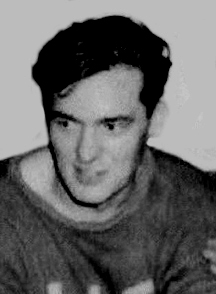
(Inducted in 1987) Sam Pretty enjoyed an outstanding career, particularly in St. John’s soccer, but also at the provincial level. His playing days ran from 1942 to 1962 with a brilliant Holy Cross eleven that captured seven St. John’s soccer titles and the first All Newfoundland honors in 1950. While he was known as one of the best fullbacks in the league, Sam also played goalkeeper for his club on many occasions. He was also called on to take free kicks and penalty kicks when his team needed a goal. Although he will always be best remembered as a soccer player, Sam also played softball and was a member of the West End senior softball championship team of 1946. He also rowed in the annual St. John’s Regatta for a number of years. Following his distinguished playing career, Pretty became one of the founding group of former players that established the Mount Pearl soccer organization in 1973. He served as an executive member for approximately seven years, found time to coach both minor and senior teams and even came out of retirement and played in the Mount Pearl senior soccer league. In 1976 at the age of 50 he was a member of the United team that captured the championship in the senior soccer league. Sam Pretty was recognized for his efforts when he was inducted into the St. John’s Soccer Hall of Fame in 1984 and the Mount Pearl Sports Hall of Fame. Sam passed away in 1986 but will always be remembers for his long and distinguished career as a soccer player for Holy Cross and for his contribution to the development of soccer in Mount Pearl. Each year a school scholarship is awarded in Mount Pearl in memory of Sam Pretty.
Ron Price

(Inducted in 2012)
From his early days as a player with Fortune to his twilight years with Marystown in Provincial Masters, Ron Price was a technically skillful player who played the game with respect for others. Leading his Fortune team to the Provincial Junior Championship and an MVP award in 1967, he established himself as a force to be reckoned with in the future. Upon entering university, he once again demonstrated how good he was in helping Memorial to three Atlantic championships and a National Championship in 1970. His excellent play also saw him selected to Provincial All-Star teams to play at the National All-Star Championships and against touring professional teams from the United Kingdom. He has been named Marystown Athlete of the Year and has been inducted into the Burin Peninsula Soccer Hall of Fame.
Louis Quedinet
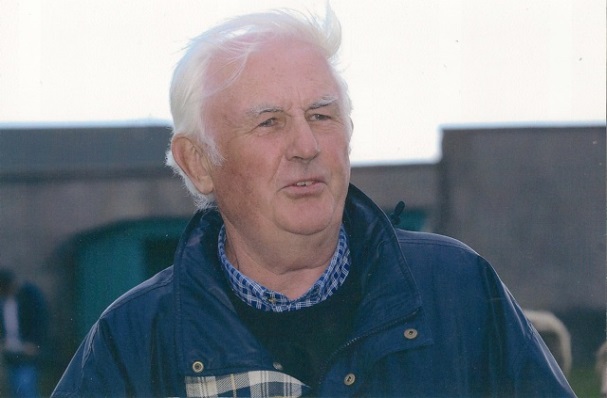
(Inducted in 2013)
Louis Quedinet or Lou Lou as he was referred to, was the primary architect behind the organizing of club soccer on the islands of St. Pierre and Miquelon. His efforts to grow soccer on the Islands resulted in him serving as President of the St. Pierre and Miquelon League for 18 years and President of ASIA for 30 years, a club he helped found.
Lou Lou and others were the driving force behind getting St. Pierre and Miquelon voting members of NLSA. He was a regular voting delegate at NLSA meetings and set the stage for many exhibition matches between St. Pierre clubs and visiting senior and youth teams to the Islands.
Through his efforts, he was able to convince the NLSA that the Island Clubs were capable of hosting Provincial tournaments. Over the years this has been proven to be true. The many friendships and memorable stories which have been shared over the years from their visit to the French Islands of St. Pierre and Miquelon, is a testament to the peoples commitment to the game.
Charlie Quick
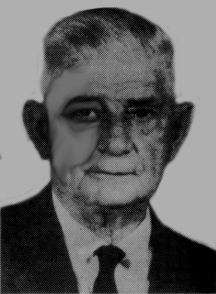
(Inducted in 1981) Fast and quick with great agility, Charlie Quick established himself as one of the finest soccer players to display his talents at St. George’s Pitch in St. John’s during the first 25 years of the 1900s. Performing always in front of crowds that understood soccer extremely well and were not shy about voicing their opinions, Quick’s skill and ability added to an outgoing personality and good sportsmanship play, endeared him to his teammates, opponents and fans alike. Charlie Quick was a highly respected athlete with soccer as one of his better sports but this Newfoundland and Labrador Sports Hall of Famer also excelled in baseball, rowing and hockey and celebrated 70 years of being a well known and well liked St. John’s personality prior to his death in 1981. During his full life he was always willing, and certainly capable, of offering good, sound advice and outstanding support to young athletes. This was especially true within the Guards Athletic Association, which recognized his contributions with an honorary life membership in 1960. He broke into St. John’s senior soccer in 1906 as a member of the Methodist Guards that won the Brigade league championship in ’06 and ’08. He remained with the club until 1910, prior to joining the Collegiate team in 1911 and playing with the squad until 1919. He was a league champion in 1911, 1914 and 1916. His final St. John’s championship came in 1923 with the Guards club that he joined in 1920. A forward with an extremely accurate shot and very proficient in passing the ball, he excelled in “football fives” games that were featured at a very large number of garden parties during the period in which he played. Born in 1887, Charlie Quick’s soccer career began while he was attending school at Centenary Hall School and Holy Cross School in St. John ‘s West. His sons also attended Holy Cross. His full life featured playing and supporting athletics. His keen sense of top sportsmanship and his understanding of playing systems and rules were often demonstrated at a variety of facilities. He endeared himself to all who knew him by his approach to athletics and athletes. In addition to the Newfoundland and Labrador Sports Hall of Fame, he is a member of the St. John’s Soccer Hall of Fame.
Cyril Quirke

(Inducted in 1996) Cyril Quirke worked his way through St. Lawrence youth soccer during the 1950s. In 1959 he earned a berth on the St. Lawrence junior club, winning the 1959 Burin Peninsula championship and the 1960 provincial junior title. Establishing himself as a sure-footed fullback, he often displayed great offensive play with many breaks up the pitch. His ability to dribble the ball and to make solid, accurate passes enhanced this aspect of his play while his work on his own 18-yard line demonstrated his defensive value to any team of which he was a member. In Burin Peninsula soccer, he was a member of five St. Lawrence championship teams in 1961, 1965, 1966, 1967 and 1968 and he played for three provincial champions in 1966, 1967 and 1968, and has an Atlantic title for 1967. His career culminated in 1970 when he was selected for the provincial all-star squad that played in the national Challenge Cup finals in Winnipeg. His contributions to soccer include coaching St. Lawrence to the provincial and Atlantic championships in 1971. He is a member of the Burin Peninsula Soccer Hall of Fame and the St. Lawrence Soccer Hall of Fame.
John V. Rabbitts
(Inducted in1985) An outstanding personal athletic career that was joined by a life of great contributions to countless sports, had John V. Rabbitts elected to the Newfoundland and Labrador Sports Hall of Fame. After a fine playing career with the Church Lads Brigade teams in St. John’s soccer, he moved into a variety of soccer executive positions. He was extremely active in St. John’s soccer for nearly 20 years and was elected the first president of the Newfoundland and Labrador Soccer Association in 1950. Known best as “J.V.R.”, he started his long association with the Church Lads Brigade in 1923 and excelled in soccer, hockey, rowing, tennis, bowling, track and basketball. The highlight of his playing career came in 1934 when he captained the C.L.B. team that edged Holy Cross for the St. John’s title. A great statistician and sport promoter, he served on the executive, usually as secretary, of an unbelievable number of sports, first at the St. John’s level and, in a great many cases, then at the provincial level. It has been estimated that during his lifetime, John V. Rabbitts served faithfully more than 20 local and provincial sports groups. In addition, he provided limitless media coverage for all kinds of sports. He collected an amazing amount of information and sports memorabilia that proved very valuable to the athletic history of the province. For a lifetime of playing, organizing, promoting and recording numerous sports, John V. Rabbitts was inducted into the Newfoundland and Labrador Sports Hall of Fame November 2, 1979.
Bernard “Fox” Reddy
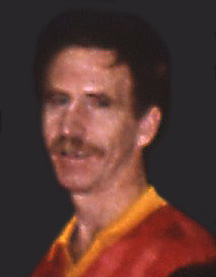
(Inducted in 1994) Bernard “Fox” Reddy of St. John’s includes an outstanding number of achievements in his 33 years of elite soccer performances. From St. John’s junior championships with Holy Cross from 1966 to 1969, he has been involved with exceptional teams as an exceptional player during his full career. His senior career began in 1967 and includes a gold medal, a silver medal and a bronze medal from the 1988, 1989 and 1981 national Challenge Cup finals, bronze at the 1969 Canada Summer Games, membership on the 1979 provincial all-stars as well as a 1979 St. John’s senior scoring title, a 1978 St. John’s MVP selection and several St. John’s awards for sportsmanship and ability. He played for the 1970 Memorial University varsity soccer team and was runner-up for provincial male soccer player of the 1970s. Bernard Reddy’s leadership qualities, leading by example, was clearly demonstrated as he was captain for eight consecutive Holy Cross teams and contributed greatly to the Holy Cross club that won 15 consecutive St. John’s senior titles. Owner of great soccer knowledge that supported his impressive skill and talent, he was always ready and willing to pass his expertise along to other players and assumed a coaching role with several Holy Cross Challenge Cup teams. It is fair to say that Bernard Reddy was a great asset to any team of which he was a member. Like his father Mike and brother Gerry, he is a member of the provincial and St. John’s soccer halls of fame.
Fred “Butch” Reddy
For over 30 years Fred “Butch” Reddy committed himself to the game of soccer. In his early years he toiled as a goalkeeper for his Holy Cross Crusaders winning St. John’s Junior and senior St. John’s championships. In 1973 he was a member of the Holy Cross team that won the first Challenge Cup of the modern era. With his senior days over, Fred played the next 15 years with the Holy Cross Masters.
However, it was in the Builder category which Fred had his greatest impact on the game. Itching to remained involved and contribute, he decided to serve on the St. John’s Board, get involved in coaching and to become an official. For ten years he patrolled between the lines managing the game, while earning the respect of players and coaches alike. As a member of the St. John’s Board for ten years, he did what was needed to be done as he moved from Vice-President to committee volunteer.
Coaching was where Fred seemed to have his greatest impact. For over 20 years he shared his knowledge and philosophy of how the game should be played. Spreading his time between St. John’s girl’s and boy’s youth teams, senior women and Challenge Cup he made his mark. Fred is also a member of the St. John’s Soccer Hall of Fame.
Gerry “Farmer” Reddy
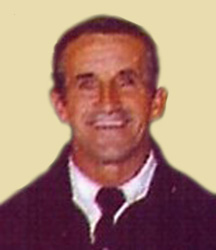
(Inducted in 2003) As a player and as a coach, Gerry “Farmer” Reddy was an outstanding performer within soccer and enjoyed great success in both capacities for more than 30 years. From the 1969 Canada Summer Games to the 2003 Challenge Cup he has been a leader for every team with which he has been associated. His ability to play soccer and his ability to coach soccer has earned him impressive rewards at the national, provincial and local levels and hundreds of players and many teams are simply better because of “Farmer” Reddy’s involvement with them. Following in a long and wide family tradition, he has always demonstrated a great love for soccer, a love that he has passed on to his off springs. “Farmer” Reddy was only 15 when he started playing St. John’s junior soccer in 1965 and he was a major asset in the 1969 junior championship that his Holy Cross team won. It was also in 1969 that he was a member of the provincial all-star club that won the bronze medal at the Canada Summer Games in Halifax. A member of the St. John’s senior championship Holy Cross teams in 1973, 1976 and 1978, he performed in the 1973 national Challenge Cup championships after Holy Cross took the provincial title. During the 1980 and 1981 St. John’s seasons, he was playing-coach of the “Crusaders”, a team designed to allow more players to participate. The club earned first place in 1980. Starting in 1981 “Farmer” Reddy was coach of the Holy Cross squad that won ten consecutive St. John’s league titles. During this decade, his accomplishments included a gold medal at the 1988 national Challenge Cup championships, a silver medal at the 1989 national Challenge Cup championships, a bronze medal at the 1981 national Challenge Cup championships, provincial Challenge Cup titles from 1983 to 1986, a 1982 provincial championship with the St. John’s Selects and selection as provincial coach of the year for 1988. Inducted into the St. John’s Soccer Hall of Fame in 1996, he has been a member of the Mount Pearl Challenge Cup coaching staff since 1999, including the title-winning 2003 club. In 1995, he turned his considerable soccer expertise to minor soccer with great success. His provincial minor championships by Mount Pearl include the 1995 under-17 girls team, the 1997 under-19 girls team and the 1998 under-17 boys team. In addition to his playing and coaching, he was a soccer writer with the St. John’s Daily News for one year and in that capacity was also beneficial to the sport of soccer. His deceased father Mike and his brother Bernard “Fox” Reddy have been inducted into the provincial soccer hall of fame.
Mike Reddy
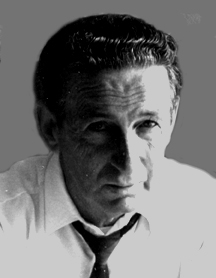
(Inducted in 1981) Regarded as one of the finest players in the history of Newfoundland and Labrador soccer, Mike Reddy established himself within the St. John’s senior league during the 1920s and 1930s. In addition, he coached Holy Cross to the 1951 St. John’s championship and excelled in soccer in the British Isles while serving in the armed forces during the Second World War. Mike Reddy was 16 when he broke into the Holy Cross junior club in 1927 and advanced to the Holy Cross senior squad in 1930. His contribution as a player was extremely valuable as Holy Cross won seven of eight St. John’s senior titles between 1930 and 1938. The team won a large number of Tie cups and he was a permanent all-star selection during the period. Always a scoring threat with a quick, hard and accurate shot, he was also adept at passing and dribbling the ball. He was runner-up for the 1931 St. John’s scoring title and was voted the league’s most valuable player in 1932, the first time the award was presented. Despite serious foot problems, he played with Holy Cross in 1945 after returning from the War but was forced to retire in 1946. Equally dangerous with his feet or head, Mike Reddy was a fan favorite and was tagged as a wizard with the ball. He played with and against some of the finest soccer players to ever perform locally and more than held his own with them. He was simply an exceptional soccer player. Mike Reddy is a member of the St. John’s Soccer Hall of Fame as are his two sons Gerry and Bernard and all three have been inducted into the Newfoundland and Labrador Soccer Hall of Fame.
Paul Reddy

(Inducted in 2007) Paul Reddy’s soccer career spans more than 30 years with exceptional success as a player and important contributions as a coach, especially of youth and minor teams and players. A member of a great soccer family, he devoted a great deal of time and effort to reach the high levels of soccer successes that he did. An always dangerous striker, he won more than his share of scoring titles, supported by most valuable awards. His approach to soccer was such that he earned an excellent reputation as a teammate and an opponent. He possessed great skill and backed it up with a clear understanding of the sport. Very coachable, he learned quickly and in addition to his excellent talent as a goal scorer he was known for his accurate and timely passing to teammates. His soccer started in the Kilbride minor League from where he moved into grammar school action with Holy Cross and jumped into prominence with an impressive three-season career with Brother Rice in high school competition. With Rice he played a major role in three provincial championships as he earned three MVP selections and three scoring titles. At the 1973 Canada Summer games in Burnaby, British Columbia his play was such that he earned a tryout with Canada’s national team and played in a 2-2 tie against Ayr United of the Scottish Professional League. He later played with a provincial all-star squad against Queen’s Park Rangers, also a pro club. A complete striker with a smooth and effective style, he started a 15-year career with Holy Cross seniors in 1973 and was a valuable member of the club that won ten consecutive St. John’s championships. He won the scoring title for 1977, 1980 and 1981 with 15 goals for 13 games in ’77. He was also voted the Most Valuable Player and top offensive player for that season. He was again very valuable as Holy Cross won the St. John’s, provincial and Atlantic championships in 1981and finished with a national third place showing. He was captain of the Atlantic Selects in 1979. He added three scoring titles in St. John’s indoor soccer. His coaching contributions were especially valuable in the establishment of Conception Bay South minor soccer where he played a major role in the organization developing many young players. He coached the CBS provincial summer games team and was coach of the Holy Cross club that finished third in the 2002 provincial Challenge Cup competition.
Doug Redmond

(Inducted in 1997) Doug Redmond’s administration abilities and devotion to the sport have been extremely valuable and very productive for all aspects and all levels of soccer. He has served on the national board of directors, contributed a great deal provincially as president and other executive positions, as Challenge Cup commissioner, on a large number of diverse and important committees and as representative at national championships and other events. In St. John’s soccer he has been secretary, registrar, statistician and a hall of fame selector for more than 30 years and again being a vital member of many, many committees that have been a great benefit to the St. John’s soccer community. He was winner of the Charlie Bhnisch Award for 1979 and 1984 and the Sandy Foster Award for 1981. He played ball for a short time but his overall value to soccer has been as a builder. Nobody has contributed more to the growth and improvement of Newfoundland and Labrador soccer than Doug Redmond. Voted the provincial “Sports Executive of the year “for 1996, he was a member of the province’s Mission Staff at the 1993 Canada Summer Games. A member of the St. John’s Soccer Hall of Fame, he received a Canadian Soccer Association merit award in 1997. Three times he has been appointed “head of delegation” for Canadian national teams playing outside of Canada. Besides his great soccer contributions, Doug Redmond was extremely active with the St. John’s Maple Leafs Booster Club for 13 years, a volunteer with the Memorial University basketball program, was treasurer and coach for a local hockey league and has run the ten-mile and marathon, in addition to acting as a race marshall.
Gus Richards Jr.

(Inducted in 2013) Gus Richards could be considered as one who had three separate careers. As a junior with the Feildians, he established himself as a feared striker who had exceptional speed and the ability to put the ball in the back of the net. Soon after entering the senior ranks with Feildians, he switched to play with Holy Cross. While playing for Holy Cross, his scoring and pace helped lead the team to the National Challenge Cup Championship and a second place finish the following year. In addition, he also shared in a number of Provincial Challenge Cup and St. John's League Championships while playing for the red and gold.
For the final stage of his career, Gus moved back to the Feildians where he helped them reach the Challenge Cup final a number of times. Unfortunately, his scoring magic was not enough for another Challenge Cup Championship.
Over his career, Gus was fortunate to be named an All-Star, win a Most Valuable Player Award and a Most Gentlemanly and Effective Player award to go with a couple of Scoring titles.
Tom Riley
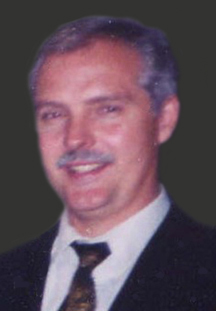
(Inducted in 2001) While he excelled as an elite player, Tom Riley of Garnish made important contributions to various levels of soccer as a coach who provided fine leadership for a variety of young players. Extremely knowledgeable and equally dedicated, Riley’s career has been an inspiration for many others. Growing up in Garnish it was natural and expected that he would play soccer and he quickly demonstrated exceptional ability and responded well to coaching and local competition. A smooth, quick performer who used his height to his advantage, fullback Riley had a fine understanding of the game at a young age and used this understanding to perform extremely well as a field general. Combining exceptional ball control and a rewarding passing talent, he was an important factor in every game in which he played. In addition, he was able to adjust his play to the level at which he competed and displayed impressive determination and a will to win. Riley was a definite asset to every team with which he played. Riley’s soccer career exploded when he earned a berth on Memorial University’s varsity club in the early 1970s. He was an important member of the MUN club that won the 1973 Atlantic University championship and advanced into the national university semi-finals. He contributed greatly from 1974 to 1976 as MUN played in the AUAA finals each season and his play resulted in his selection as an AUAA all-star. In 1975, Riley was named winner of the Richard Perry Award for outstanding contributions to varsity athletics at MUN. His play in AUAA competition was of such a high standard that Riley was selected to Canada’s national team for a ten-day International Cup tournament in Cuba during January 1975. He was a member of a provincial all-star squad that toured Scotland and England the same year. During the 1977 Canada Summer Games, Riley was a valuable member of the provincial team that placed fourth. In provincial Challenge Cup play Riley was the leader as Burin Eagles won the 1990 and 1991 titles, after making the finals in 1989. . In addition he played several seasons of second division ball for Garnish. Besides playing with Burin, Riley coached the team for seven seasons and has headed Burin Peninsula under-17 and under-19 female teams. Recently he has acted as an instructor for the Burin Peninsula Training centre. He trained the Burin Peninsula players who were members of the 1981 Canada Summer Games team. As a coach, he contributed greatly to many Garnish teams and called the shots for Prince of Wales High School in the St. John’s school league for three years.
Hannah Rivkin
Hannah Rivkin was a player who displayed all the characteristics necessary to play at the highest level. Using her incredible level of fitness and pace, she was able to outperform her opponents at every level in which she played. Going hand in hand with her fitness, she displayed a technical ability and a level of game intelligence and insight, that was well beyond her years.
Throughout her career, Hannah was a leader by example and committed to the task at hand. This was evident by her being named the recipient of the Michael “Beecher” Smith Award for a student athlete who demonstrates outstanding leadership, dedication and commitment while bringing a positive attitude to her team.
To give further insight into the accomplish and accolades Hannah has received over the years, one has to go back to her years as a National Training Centre (NTC) player. In 2009, she was named NLSA and Sport NL Junior Player of the Year. Her impact at the Jubilee Trophy level was instant as she was named Rookie of the Year. During her years playing in the provincial Jubilee Trophy league, she earned regular season and play-off MVP honors, all-star selections, three Jubilee Trophy championships, and was
named NLSA Senior Player of the Year.
At the university level Hannah once again excelled. In addition to winning the Atlantic University championship, she received AUS and RESQ First Team All-star selections while playing for Memorial and McGill universities along with CIS First and Second Team All-star selections.
To highlight Hannah’s career was her two years with the National U-20 Women’s team playing international friendlies for Canada.
Ed Roche
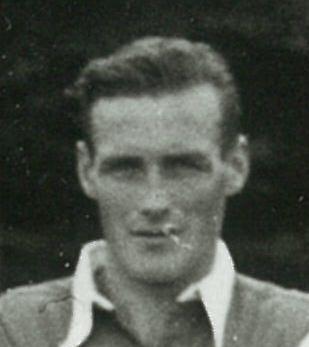
(Inducted in 1994) For 24 seasons Corner Brook’s Ed Roche set an extremely high standard of soccer successes that made him one of the finest halfbacks within Newfoundland and Labrador. Using great strength and a talented approach to the game, he established himself as a perennial all-star and a champion many times over. Earning impressive respect from teammates and opponents alike, he was a fan favorite, especially in his hometown. Breaking into senior soccer in 1947 with the Curling Rangers, he played his entire career with the Rangers until his retirement in 1971. He was a very valuable part of 22 Corner Brook championship seasons for the Rangers, often leading the club defensively and using hard, accurate passes to initiate breakouts for his team. Ed Roche was known for the length and effectiveness of his out-of-bounds throw-ins that often resulted in goals. He was a valuable asset with the Corner Brook all-stars who won two provincial senior championships in the 1950s and filled a similar role with six Central-Western Newfoundland titles. Selected as the most valuable player in the Corner Brook senior league for 1967, he gained a great deal of respect for the sportsmanlike manner in which he played and for the co-operative type of team play that he contributed to the Rangers and the Corner Brook all-stars. Ed Roche was a credit and an asset to soccer for two decades after the provincial association was formed, especially in Western Newfoundland. Overall his performances helped soccer become well established in that area of the province and certainly in Corner Brook.
Alan Ross
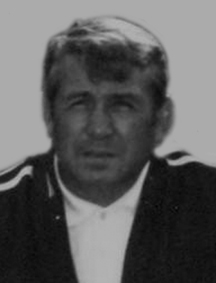
(Inducted in 1989) From his arrival in Newfoundland in 1970 to join Memorial University’s Faculty of Physical Education, Alan Ross exerted great influence on soccer at the local and provincial levels and even at the national level during more than 20 seasons. This is especially true in the coaching field where he has enjoyed exceptional success. He moved to Newfoundland from his native Liverpool after achieving many successes with all levels of soccer and cricket as a player and as a coach. He brought a truly professional approach to soccer coaching and this allowed him to develop an extremely large number of elite teams and players and to influence local coaches in a highly beneficial manner. Included in the 17 seasons that he coached Memorial University’s men’s varsity team are one Canadian intercollegiate title, in 1970, two national runner-up finishes and three Atlantic intercollegiate championships. His coaching was a major factor in MUN achieving a high level reputation within Canadian intercollegiate soccer. He included a long list of other soccer accomplishments and contributions at the local, provincial and national levels. In 1974 his coaching and leadership were vital to the Newfoundland and Labrador youth all-star club that won the Canadian championship.
Tom Rose
(Inducted in 1985) During a 16-year senior soccer career, Tom Rose of Grand Bank established himself as one of the finest players to perform within Newfoundland and Labrador. A prolific goal scorer, he ranks with some of the best playmakers to be developed in Burin Peninsula soccer. An excellent role model for younger players and an outstanding example of a star who co-operated with each and every teammate, he put together an impressive high-level career from 1946 to 1962. Such was the respect that he earned from teammates that Tom Rose was captain of the Grand Bank GeeBees for the majority of his time with the club. Always contributing to the team good, his value was marked by his selection as winner of Most Valuable Player awards. He was twice voted Grand Bank MVP, twice voted Burin Peninsula MVP and once received the nod as provincial MVP. These selections are a lasting tribute to his success as a soccer player. Tom Rose was a major contributor to the Grand Bank clubs that earned provincial senior championships in 1960, 1961 and 1962. His contributions to Grand Bank and Burin Peninsula soccer continued after his playing years and he reacted to these responsibilities in the same way as he did as a player by calling upon his ability, skill and determination. Soccer, in general, and within Grand Bank was simply improved and better because of Tom Rose.
Jim Royle

(Inducted in 2009) Jim Royle was involved in the sport of soccer for 40 years as a player, coach and administrator. Although his senior playing career with the Guards and Feildians didn’t produce championships, his play on the field earned the respect of the players in the league. While at Memorial University, his team twice won the Atlantic Championship and twice he represented the Atlantic Region at the National University Championships, winning the Silver Medal on one occasion. On the administrative side, he has served the Feildian Athletic Association as a coach/manager and as the Association’s vice president. His dedicated and tireless efforts have played a major role in keeping the Club a viable entity in the Newfoundland and Labrador soccer scene. His efforts and commitment in the St. John’s League has twice earned him the Charlie Quick Award for outstanding contribution. He has also been inducted into the St. John’s Soccer Hall of Fame.
Philip Ruiz
From his early years of minor soccer in Stephenville, Philip Ruiz was destined to achieve success as a soccer player. Being selected to provincial U-16 and U-18 teams, he represented the province at the National All-Star championships. After excelling as both a goalkeeper and central defender at the 1989 Canada Summer Games, he went on to impress at the university level.
His four years of varsity soccer at Mt. Allison university, saw him lead his university team to the AUS Championship in 1991. Along the way, he earned AUS and CIS All-Star status and an AUS MVP award. To cap off his university success, in 1991 he was named Mt. Allison’s male Athlete of the Year.
After university, Philip moved to Nova Scotia where he began playing senior soccer. In 1995 and 1996 his King of Donair team won the Nova Scotia championship and the right to go the National Challenge Cup championships. There, his team captured a Bronze medal in 1995 and a Silver in 1996.
To highlight his brilliant career, in 1991 Philip tried out for the Nova Scotia Clippers of the newly formed professional CSL league. His selection to the team, made him the first player from the Newfoundland and Labrador to sign and play for a professional soccer team.
John Russell

(Inducted in 2002) John Russell was an outstanding soccer player who excelled in St. John’s and Burin Peninsula soccer in addition to establishing himself among the top provincial performers during his 13-year senior playing career. A very versatile athlete who performed at the all-star level as a striker, midfielder and back, he demonstrated great skill and talent and certainly a willingness to make the sacrifices that are necessary to earn a reputation as one of the very best. He was one of the very best. His soccer career started at Curtis Academy in St. John’s and continued in the city league with Guards and Holy Cross. He moved into the Grand Bank GeeBee lineup when his family moved there in 1958 and played on their provincial and Burin Peninsula championship teams in 1958, 1960 and 1962. His constant high level of play and his refusal to back down were very important ingredients of these championship teams and every other team for which he played. As a striker John Russell earned a reputation as a very dangerous opponent, as a mid-fielder he expanded his reputation as a consistent playmaker and as a back he was regarded as extremely effective in a defensive role. Overall, his soccer knowledge combined with extra effective ball control and passing skills to produce rewarding results. He played during an era when competition was tough and Burin Peninsula teams were overflowing with great players and yet he was good enough to more than hold his own with all of them. He was good enough to be an added player for the 1972 St. Lawrence team that won the Atlantic title and selected to an all-star team that faced Scotland’s Ayr United team when it toured the province. Following his career as a player, John Russell served on the Grand Bank Soccer Association executive and coached for several years. John Russell is a member of the Burin Peninsula Soccer Hall of Fame.
Andy Samuelson
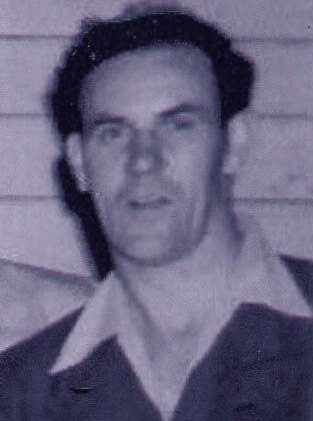
(Inducted in 2003) Andy Samuelson put together a playing and coaching soccer career that lasted for more than 30 years, and established himself as an extremely successful participant in the sport when it was one of three or four major sports within St. John’s. From 1931 to 1964, he demonstrated his skill and ability on a string of winning clubs and provided the coaching leadership for a Holy Cross team that dominated St. John’s soccer for seven consecutive seasons, from 1950 to 1956. He used his playing career as a learning ground becoming expert in coaching, both with individual players and collectively with teams. His ability and skill as a player was a major factor in allowing him to coach some of the finest players to ever perform locally and provincially with rewarding soccer. Andy Samuelson had the ability to perform his coaching duties with exceptional discipline but with outstanding person-to-person confidence and fellowship. Charlie Bhisch, Sam Pretty, Alf Breen, Harry Ennis and Joe Gulliver are Soccer Hall of Fame members whom he coached during the highly successful years of Holy Cross. While he was able to provide winning leadership for these stars, he was expert at obtaining the best performances possible from each and every player as members of teams he coached. As an all-star fullback, Andy Samuelson was a top school player as of 1930 and won his first St. John’s junior championship in 1933. His playing career included terms as a member of Holy Cross, Star of the Sea and the Benevolent Irish Society in St. John’s competition. This career included many team and individual honors as he earned respect from teammates and opponents alike for his performances on the pitch. As a coach within a highly competitive St. John’s league after the Second World War, Andy Samuelson continued to earn respect from all aspects of the soccer community. His expertise as a coach was vital to the great success that Holy Cross enjoyed locally and provincially under his leadership. His value to Holy Cross was recognized in 1976 when he was one of three coaches honored by the Holy Cross Athletic Association for his contributions to the association’s soccer teams. In addition to his outstanding soccer career, he was one of the province’s finest five-pin bowlers and has been inducted into the Newfoundland and Labrador Bowling Hall of Fame.
John Saunders
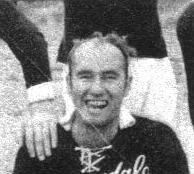
(Inducted in 2005) John Saunders was the leading soccer player in Springdale for 27 years, from 1945 to 1972, during a career that played a major role in the success and popularity the game enjoyed within that area of Newfoundland. His was an outstanding career from a skill and talent viewpoint, supported by the leadership and sportsmanship that he always demonstrated. A fearless fullback who earned an exceptional reputation for his effectiveness defensively, John Saunders was the perennial captain of the Springdale team that engaged teams from other communities in competition and more than held its own against visiting British and other ships. He set the standard by which other players were judged. He was only 16 years old when he earned a starting spot on the senior Springdale team and was the club’s pacesetter until knee trouble forced his retirement when he was 43. While “scrap” games were the order of the day as he grew up in Springdale, John Saunders did not have the opportunity to play organized youth soccer and his joining the senior team was well earned and based upon his ability and determination. Springdale soccer is at least 100 years old but, while extremely active during the full century, did not become officially affiliated with the provincial body until 1964. John Saunders has a career that included 19 years prior to affiliation and eight seasons after affiliation. He starred in both periods. Despite earning his reputation as a strong and tough fullback, John Saunders was also well known for his sportsmanship on the pitch. Always encouraging to teammates and opponents alike, he was an excellent role model for younger players. He possessed great accuracy in clearing the ball, often starting offensive drives with his well-placed kicks. He had a reputation for great “heading” expertise and was known to send the ball long distances with this skill, again with impressive accuracy. He built his defensive effectiveness upon these skills. His overall soccer career is overflowing with personal and team successes and is a major aspect of Springdale’s soccer history. He was the type of player that adds to the tradition of a very worthwhile community activity.
Clarence Senior

For more than forty years, Clarence Senior has served the Burin Soccer Association and the Burin Peninsula Soccer Association as a coach and as an administrator. Since 1970 he has been an active administrator within the Burin Association serving in many executive roles, including president. His 25 years with the BPSA executive, saw him serve as VP, ladies chair and chair of its Hall of Fame Committee. His coaching began in the early seventies coaching Burin minor teams. In the early eighties he started coaching the Burin ladies team earning six Burin Peninsula championships and three provincial championships. After eight years with the ladies, he moved to the Burin Eagles Challenge Cup team where he co-coached the team for ten years winning two Challenge Cup championships. For his contributions to soccer on the Burin Peninsula, he was inducted into the Burin Peninsula Soccer Hall of Fame.
Jack Simms
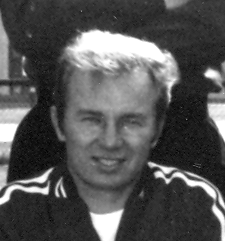
(Inducted in 2004) Jack Simms owns a soccer coaching record that is equal to any within Newfoundland and Labrador. A keen student of the game, with an excellent rapport with players, he provided exceptional leadership to St. Lawrence teams between 1970 and 1985 and his expertise was recognized with his appointment to coach several other elite clubs. A native of Grand Bank, Simms was a recreational player in his younger days and during five years in the Canadian Navy, but upon obtaining employment in St. Lawrence he naturally became deeply involved in soccer and started a most rewarding coaching career. His willingness to attend clinics and to learn from experts like Alan Ross allowed him to greatly improve his own understanding of soccer. It was this understanding and a keen ability to learn that supported Simms in his rewarding coaching career. He developed an impressive knowledge of soccer systems, was able to deal in a comfortable manner with individual players and to direct collectively some of the best players within Newfoundland and Labrador during his coaching era. His ability to get the very best out of the elite players who comprised the St. Lawrence teams was a major factor in the successes that the team enjoyed. Keeping players within a structure that required discipline while encouraging their individual resourcefulness was a necessary factor of Simms’ success. Under his tutelage St. Lawrence dominated local and provincial soccer with nine championships. Four appearances in national Challenge Cup finals, two Atlantic titles, an Eastern Canadian championship and a designation of team of the decade for the 1970s are part of his accomplishments. In addition, he helped coach the 1974 provincial under-18 all-stars who won the Canadian title, was a member of the coaching staff for the 1973 Canada Summer Games club and coached two age-group teams in national play. Locally, he was a driving force behind a minor soccer program that assisted greatly the skills of young players between 1979 and 1985 with several winning skill competitions on the Mainland. His overall efforts were extremely beneficial to minor soccer in St. Lawrence. Jack Simms was simply an excellent coach who led an excellent group of players to excellent results. He has been inducted into the Burin Peninsula and St. Lawrence soccer halls of fame.
Al Slaney

(Inducted in 2005) While he started his soccer career as a fullback and then a forward, it was as a goalkeeper that Al Slaney established himself as a perennial all-star at the local and national levels. His ball stopping performances earned him earnest respect from teammates and opponents alike from the early 1970s to his retirement in 1984. Playing “out” he contributed greatly to one peewee and two bantam provincial championships with his native St. Lawrence but it was as a keeper that he played a major role in the 1974 Canadian championship that a Newfoundland and Labrador under-18 club achieved. His play was essential in the claiming of this national title. Always a great “team” player, Al Slaney had no problem playing behind Bob Slaney, another great hall of fame keeper with the Laurentians. In fact, his dedication to soccer was clearly demonstrated by his impressive reaction to his situation. While he was outstanding in the games that he did play, it was after the retirement of Bob Slaney in 1974 that Al Slaney really came into his own. The 1977 Canada Summer Games allowed Al Slaney to demonstrate just how talented a keeper he was. His play was superb and drew a great deal of favorable comment from all sources. He was certainly one of the better players with all teams in the ’77 Games, especially after improving his skills during a tour of England and Scotland with the club. During his 11 seasons as the first line keeper with St. Lawrence, Al Slaney’s talent and ability allowed his performances to be very important in many, many games thus being extremely valuable in provincial and national Challenge Cup competition. His keeping was an important factor in the great success that St. Lawrence teams experienced between 1974 and 1984. Selected as the top goalkeeper for the vast majority of the seasons in which he played, Al Slaney earned several Most Valuable Player awards. He is a member of the Burin Peninsula Soccer Hall of Fame and the St. Lawrence Soccer Hall of Fame.
Bill “Doc” Slaney
Bill or “Doc” Slaney as he was called, was recognized for his leadership and motivational ability within his team and among young players. This leadership ability earned him the title of ‘Team Captain’, a position he held for four years. Known for his strength in the air and the ability to shoot with both feet, he was regarded as a prolific goal scorer of his era. Beginning his playing career in1947, Bill helped his St. Lawrence team to seven straight Burin Peninsula championships for a total of eight in all. At the provincial championships, he helped lead his team to victory three more times. After his playing career was over, Bill entered the world of coaching. There, he helped guide St. Lawrence to another provincial championship, an Atlantic championship and saw St. Lawrence represent Newfoundland and Labrador at the first Eastern Canadian Challenge Cup championships in 1967. To cap off his career, Bill was inducted into the St. Lawrence and Burin Peninsula Soccer Halls of Fame.
Bob Slaney

(Inducted in 1997) Bob Slaney was one of the best keepers to ever play soccer within the province. His career as an athlete stretched from school soccer in 1960 to his final season of senior ball in 1974. He was the backbone of seven provincial and Atlantic champions and was a major factor in St. Lawrence winning eight Burin Peninsula titles. Winner of more than his share of individual awards, Slaney managed and coached St. Lawrence after retiring as a player. He served as St. Lawrence soccer head for ten years, was Burin Peninsula soccer president for five years and served provincially as vice-president and registrar. Slaney is a member of both the St. Lawrence and Burin Peninsula Halls of Fame.
Herb Slaney
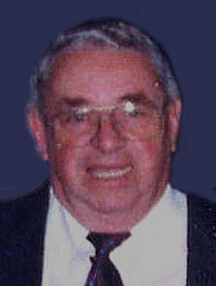
(Inducted in 1998) Herb Slaney was born in St. Lawrence in 1932. After playing a great deal of “meadow” soccer where he learned most of his individual skills, Herb Slaney progressed into the Burin school system soccer league. After completing his high school education in St. Lawrence, he went to St. Bonaventure’s College in St. John’s where he competed in the intercollegiate soccer league. Herb Slaney began playing for the St. Lawrence Laurentians in the senior Burin Peninsula league at the age of 15. From 1948 to 1962 the St. Lawrence Laurentians won nine Burin Peninsula championships with Herb winning several scoring titles. During his 14-year career, the St. Lawrence Laurentians won three provincial championships in 1951, 1952 and 1955, and in the 1955 play downs, Herb Slaney was selected Most Valuable Player. A striker with very quick feet, he was gifted with a quickness that added to his overall speed. His extremely accurate footwork allowed him to pass the ball very, very well, dribble it with expertise and score with hard, well-placed shots. Soccer people on the Burin Peninsula often compare players from one town to another. In the 1950s Herb Slaney was to St. Lawrence what Tommy Rose was to Grand Bank. Herb was an inspirational player to all young boys who aspired to become a member of the St. Lawrence Laurentians. Herb Slaney was often cited as the St. Lawrence “player of the 50s decade”. When he retired, he maintained an active interest in the game through attendance. He provided expert analysis to younger players who are always eager to learn from a former Laurentian hero. During his athletic playing days, Herb also participated in the sports of hockey and basketball, excelling at those as he did at soccer. Herb Slaney was inducted into the St. Lawrence Soccer Hall of Fame in 1980 and into the Burin Peninsula Soccer Hall of Fame in 1993.
Leonard Slaney

(Inducted in 2000) For 38 years, Len Slaney was a very positive force for soccer at the local level, the provincial level and at times the national level. His very beneficial service to the sport has been a major factor in soccer’s expansion and improvement as he contributes by his actions as well as his example. There is nobody more respected in soccer than Slaney and his fine reputation is built on continuous years of “hands-on” service. His career as a volunteer executive is almost unbelievable and overflows with important contributions of all levels of soccer operations. He has served on the St. Lawrence soccer executive for 28 years, has been working for Burin Peninsula soccer for 20 years and filled executive positions for provincial soccer for 15 years. In every position, Slaney was a worker who achieved success because of his unlimited energy, his undying determination and impressive expertise in all aspects of the position. He simply got the job done. As a coach he guided 16 teams that won provincial titles and in 1967 a provincial all-star team he finished with a 3-1 record in Montreal. While an early injury in 1967 prevented him from a long playing career he was a member of school, junior and senior St. Lawrence squads and the first Memorial University varsity club in 1967. He played for one St. Lawrence provincial championship squad. Slaney has been inducted into the St. Lawrence and Burin Peninsula Soccer Halls of Fame and was 1999 executive of the year for the Newfoundland and Labrador Soccer Association. He was voted 1999's provincial sports executive of the year.
Paul Slaney
Paul Slaney was considered a genuine sportsman, as he combined skill and finesse to his position as a midfielder. His abilities were recognized through eight provincial Challenge Cup All-Star selections. His composure in challenging situations played a major role as his St. Lawrence team compiled 11 Provincial Challenge Cup championships. At the National Challenge Cup, Paul’s leadership was once again evident as he helped his team to a National silver and bronze medal. After a successful playing career, Paul entered the field of coaching. There, for 12 years, he used his attributes as a player to successfully mould provincial age group players into up and coming stars. His ability as a coach is also evident by his two Canada Games coaching appointments and two provincial Challenge Cup championships. Paul was also a member of the St. Lawrence team which was named the 1990’s NLSA Team of the Decade. In addition, he was a finalist for the 1990’s Player of the Decade.
Daryl Smith
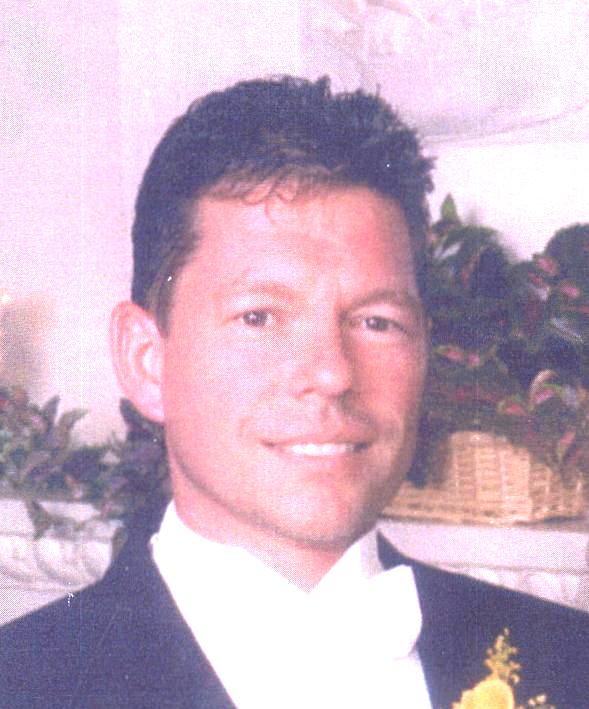
(Inducted in 2009) Daryl Smith established himself as one of the province’s most skillful players while playing youth soccer. When representing the province at the National Under-18 championships, his play was so impressive that National Coaches invited him for a try-out with the National Youth Team. When he eventually moved into the senior ranks, his outstanding technical ability helped lead his Holy Cross team to being named Team of the Decade for the eighties. His time with Holy Cross resulted in 15 St. John’s Senior Titles, eight Provincial Challenge Cup Championships and a Gold, Silver and Bronze Medal at the National Challenge Cup Championships. In addition to Team awards, he was recognized for his individual play. He was named a St. John’s and a Challenge Cup All-Star on five occasions. He received MVP honors four times in the St. John’s Senior League and twice he was named MVP of the Provincial Challenge Cup League. Daryl is a member of the St. John’s Soccer Hall of Fame and joins his father Gerry Smith in the provincial Soccer Hall of Fame.
Gerry Smith
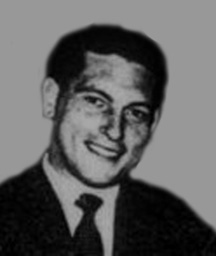
(Inducted in 2001) During a 25-year career that went from high school to senior provincial competition, including a 17-year officiating period and several organizing and executive years, Gerry Smith had an important and powerful impact on local and provincial soccer that influenced many of the aspects of the game, especially at the St. John’s level. A powerful and dependable fullback who often controlled his team’s defensive zone, Smith possessed a solid kick, exceptional passing skills and a quickness combined with speed that was unusual for a big man. Simply, Smith was an extremely solid and effective member of any team with which he played. In addition to having an excellent general knowledge of the game, he learned the rules and regulations early in his playing career and used an in-depth overall view of action in both zones to provide very beneficial on-field leadership. He was especially effective defensively but had the ability to generate the start of continuous offence by his team. Smith’s soccer career started in 1945 as a member of the Bishop Feild high school team and included two St. John’s championships up to 1949. In 1948, he was a valuable member of the Feildian club that won the St. John’s “B” title in a division that was in fact a junior-aged operation. In 1952 Smith joined the Guards senior club and initiated an 11-year period of top calibre competition that overflowed with success. This Guards squad was involved in an annual battle for the St. John’s and provincial championships, often facing an elite Holy Cross eleven that racked up seven straight St. John’s titles. Once selected as St. John’s top fullback, Smith earned a reputation as a tough defender who gave no quarter and expected no quarter. He was one of the strengths upon which the Guards built a very respected soccer club. Guards broke into the championship circle in 1957, winning the St. John’s and provincial soccer championships. With Smith playing a major role, the Guards repeated both championship efforts in 1958 and again in 1959. These title performances gave Smith the best possible results during the three-year period, six of six possible championships. It should be noted that during the same three years Smith was coach or manager of the Guards junior team that won three St. John’s titles thereby making it nine out of a possible nine. During this period Smith filled the important and often demanding position of soccer chairman for the very active Guards Athletic Association and he did it so well that he was re-appointed continuously. While enjoying much success as a player, Smith first became involved in soccer officiating in 1953 when he called a very large number of St. John’s high school and “B” games. Recognized at once as a very knowledgeable and unbiased referee he would continue to officiate in important games at all levels for 17 seasons. In 1960 Smith organized the St. John’s Soccer Officials Association and for the next 11 years provided high level officiating for provincial and St. John’s senior games while always available to fill in at the high school and junior levels. His officiating ability was such that he was called upon to call the most important games at every level of soccer and he fulfilled his duties in a manner that added to the respect he earned as an official. Simply, Smith was an excellent official who always did a fine job.
Charlie Snook
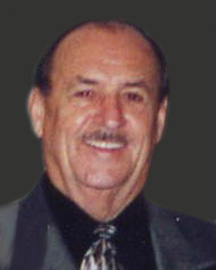
(Inducted in 2000) A great ability to score goals and an exceptional versatility to fill any position with outstanding success were two of the impressive features of the 14-year soccer career of Charlie Snook. A native of Grand Bank, he was an extremely valuable member of GeeBee teams in Burin Peninsula competition and played a very important and prominent role for Guards in the St. John’s league. Between 1946 and 1959, Snook established himself as one of the finest soccer players to enjoy the sport in Newfoundland and Labrador and filled four positions with all-star results. A phenomenal scorer who could control and turn on a ball with great agility, Snook broke into Grand Bank senior soccer in 1946 while still attending school and continued with the GeeBees until 1954. Always one of the league’s top performers and scorers, he played a major role in the peninsula and provincial title that Grand Bank won in 1954 and was the Most Valuable Player in the season’s provincials against St. Bon’s of St. John’s and Corner Brook. Snook moved to St. John’s and played with Guards for five seasons. He was the City’s senior scoring champ in 1957 and was an extremely valuable contributor to the success of the great Guards teams in 1957, 1958 and 1959 as the club won both the St. John’s and provincial championship each year. On a game-to-game basis, Snook was one of the most popular and effective players at the Ayre Athletic Grounds as he always demonstrated his great talents and skills.
Bob Spearns
Bob Spearns combined technical ability and leadership to lead his St. Lawrence Laurentians to nine provincial Challenge Cup championships during a 15 year Challenge Cup career. His leadership on the field earned the respect of his teammates and from players and coaches throughout the league. During his career he served as team captain for eight years, was named an All-Star seven times, selected league MVP twice and was named the league’s Top Defender four times. In addition to his provincial Challenge Cup championships, Bob was instrumental in helping his St. Lawrence team to silver and bronze medals at the National Challenge Cup championships. To go with his national Challenge Cup medals, he also earned a gold and silver medal at the Eastern Canadian Masters championships. Highlighting his team’s success, the NLSA named St. Lawrence the 1990’s Team of the Decade. To further cap off an already brilliant career, Bob was named the Newfoundland and Labrador Soccer Association’s Player of the Decade for the 1990’s.
Glenn Stanford
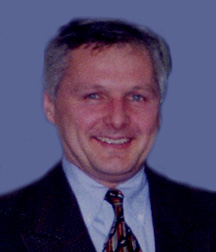
(Inducted in 2013) Although not so tall, Glenn Stanford played as if he were over six feet. His grit and determination along with his exceptional quickness over the first five yards, made defending him a real challenge. His talents first caught the eye of Alan Ross in1974 when he was added to the Provincial U-18 Team which later went on to win the National U-18 Championship.
Glenn's playing career was split between Memorial University and Holy Cross. Although Memorial was always a contender, an Atlantic Championship was not in the making. His Holy Cross teams of that era however, was a different story.
From the late 1970's to the mid 1980's Glenn's Holy Cross teams won a National Challenge Cup Bronze Medal, two Atlantic Challenge Cup Championships, four Provincial Challenge Cup Championships and seven St. John's Senior League Championships. Glenn's contribution to those teams was a contributing factor to the team’s overall success.
Noel “Jake” Stanford

(Inducted in 2007) The willingness of Noel “Jake” Stanford to devote his time, efforts and expertise to the betterment of an extremely large number of young people during a 23-year period makes him an excellent addition to the soccer hall of fame. A top level younger athlete during his playing days, he continues to enjoy participation at the “masters” levels. This allows him to add to his reputation as a good sport who has earned the respect of teammates and opponents during a 30-year playing career. From his start in the St. John’s minor system through his St. Pat’s and Brother Rice school competition, he enjoyed great success. He was a member of three St. John’s and three provincial school champions with one MVP selection to his credit. He continued his excellent play during five St. John’s and one provincial championship season with three MVP selections and two scoring titles. In 1981 he started a 22-year career in St. John’s First Division soccer with the crusaders and Holy Cross. He continued to earn MVP and top scorer honors while winning eight St. John’s championships and one provincial title. He was a member of the 1985 provincial Canada Games club and was a top performer for Memorial University’s varsity team from 1981 to 1984. In addition, he captained an Under-18 team that won the Atlantic championship in 1982. His coaching contributions, during more than 23 years, have involved every level of boys and girls youth soccer and the 2007 Holy Cross Challenge cup team. Selected as provincial coach of the year for 2006, he has twice led clubs to national fifth place finishes. Most importantly, he contributed continuously to the improvement and betterment of life for literally thousands and thousands of young people, especially those who were involved with youth soccer teams that he has coached. He devoted a great deal of time and effort to obtaining the knowledge and expertise that is required of an individual who is responsible for coaching young athletes at the local, provincial and national levels of competition. His determination to provide only the best coaching for those in his charge required him to attend numerous clinics and instructional seminars until he qualified as a national “B” certified coach. It should be stressed that he earned a reputation within youth soccer circles for sportsmanship and character building in addition to excellent technical and team athletic skills. Those who play on teams coached by him know the true meaning of sports and competition. While he has coached soccer teams who have gained impressive success at all levels of competition, the manner in which these teams compete has been just as impressive.
Anne Stapleton
Anne Stapleton is the first name that a coach writes down on the game sheet. Growing up in a golden
generation of current (and future) hall of famers, Anne was always a 90-minute player. Teammates and
coaches will tell you that she was one of the most important players on the field. She played club All-
Star in Mount Pearl, representing the province twice at Nationals and spent four years with the
provincial team program, representing NL at the Canada Games in 1997. As a five-year member of the
Memorial University Seahawks, she reached the final twice, was twice named an Academic All-Canadian
and was inducted into Memorial University’s Athletic Honor Society in 2000. She then went on to a
successful senior career, winning three Jubilee Trophy titles. Anne was named team MVP of a star-
studded championship Feildians team in 1999 and was also the Jubilee playoff MVP in 2006, putting up
one of the best playoff performances of all time to help Paradise Physiotherapy capture the Jubilee
Trophy. Anne was a skilled, physical presence in her role as defensive midfielder, effectively covering a
huge amount of ground. She remains one of the best defensive midfielders to ever play the game in NL.
Derek Strang
As a player, Derek Strang demonstrated intelligence, determination and a passion to excel that suggested he would become a major impact player within the provincial Challenge Cup league. A career ending injury, however, shortened his Challenge Cup playing days. During his brief time as a Challenge Cup player, he did manage to capture three Challenge Cup provincial championships, a National Challenge Cup bronze medal in 1999 and an All-star selection.
Despite his career ending playing injury, Derek never called it quits. Instead, he directed his passion for the game towards coaching. In 2005 he took over the reins of coaching the St. Lawrence Laurentians.
During his tenure coaching the Laurentians, he led his team to the Challenge Cup finals ten times while capturing the provincial Challenge Cup on six of those occasions. In 2007, he led his Laurentians to a
national Challenge Cup bronze medal.
Over the course of his soccer involvement, Derek has been recognized for his playing years with Memorial University by being inducted into the Athletic Honor Society for his contribution to varsity athletics. His coaching success within the provincial Challenge Cup league had him twice named
Challenge Cup Coach of the Year. In addition, he was also named NLSA Coach of the Year and a finalist for Sport NL Coach of the Year honors.
Keith Storey
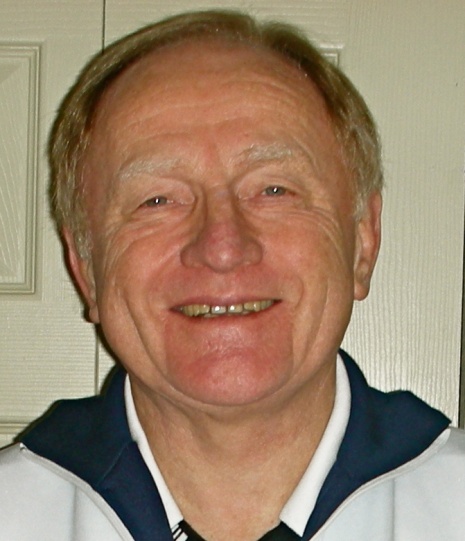
(Inducted in 2011) The moment Keith Storey arrived from England in 1971 he immediately made an impact. His robust take charge style of play quickly established him as a leader and one who would influence the game and those around him. Known for his physical presence and style of play, he was recognized for his ability to win the ball in the air and in fifty-fifty challenges. Although he gave no quarter his respect for the game and those around him also earned him respect from the soccer community. His intelligent and skilful play was quickly recognized, thus earning him the status of perennial all-star. Keith’s impact on the game wasn’t only as a player. He has served as a Director and President of St. John’s Youth Soccer, coached at the club and provincial level and been an advisor to the Feildian Soccer Club. He has won St. John’s League Championships and individual MVP and Most Gentlemanly/Spirited Player Awards. He has also been inducted into the St. John’s Soccer and St. John’s Youth Soccer Halls of Fame.
Winston (Winse) Strang
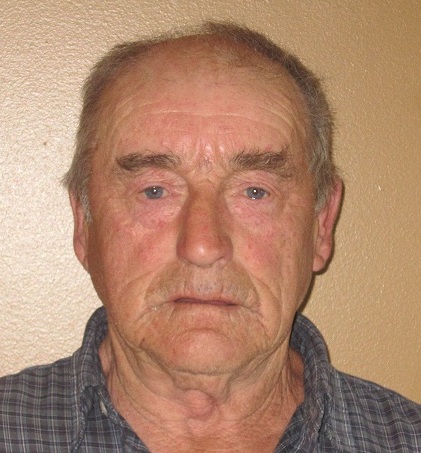
(Inducted in 2011) Winse Strang has the distinction of playing for the Lawn Shamrocks for over forty years. During that time, he has captured Provincial Championships at every level of senior competition. The highlight of his career however was in 1987 when at the age of 43, he returned to the senior team and helped them win the Provincial Challenge Cup Title. Known for his determination, speed and bullet like shot, he often brought fear to the minds of goalkeepers when he got in close. Recognized for his play, he was often selected to Burin Peninsula All-Star Teams to play against St. John’s and teams from St. Pierre. To further indicate the type of player Winse was, at the age of 49 he was named MVP of the Provincial Senior B Championships. For his play on the field, the Burin Peninsula has entered him in their Soccer Hall of Fame.
Doug Sweetapple
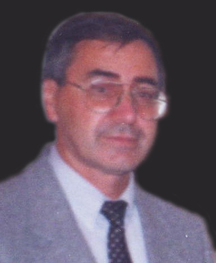
(Inducted in 1987) Doug Sweetapple has filled every possible soccer position in Western Newfoundland and his drive and efforts during a career that spans more than 30 years has been a major benefit for an extremely large number of soccer people. Working from his native Corner Brook, his leadership has touched every aspect of soccer. There is no aspect of soccer that Sweetapple hasn’t touched. He has been deeply involved from goalkeeper to coach, to official, to executive member, to clinic instructor, to fund raiser to PR chair to member of the soccer hall of fame’s selection committee. Whatever has been necessary for the good of soccer he’s provided dedication and determination. While his contributions have been mainly in Western Newfoundland, he has been very active on the provincial scene serving in a variety of positions with successful results. He has generated great personal respect within the soccer community. The skill that earned him a spot on the provincial all-stars during his playing days has been displayed in the many other roles that he covered. Soccer in Western Newfoundland, especially in Corner Brook, has better facilities, more qualified officials and better coaching because of Doug Sweetapple. It is simply better because of his work.
Tom Tarrant

(Inducted in 2012)
Tom Tarrant's soccer career can be best described by referring to leadership, tenacity and skill. Throughout his playing days with St. Lawrence, Memorial University or the military where he made a career, the role of Team Captain followed him. The attributes which he forcefully portrayed, were rewarded with a selection to the National Team and an opportunity to play for Canada in the 1975 Pan American Games. His St. Lawrence team of the 1970's won five straight Burin and Challenge Cup Championships along with a National Challenge Cup Bronze Medal. This success was rewarded by being named the Team of the Decade for the 1970's. In addition, his university won two Atlantic titles and a Silver Medal at the National University Soccer Championships. For his efforts, he has been named Memorial's Athlete of the Year, Provincial Male Athlete of the Year and inducted into the St. Lawrence and the Provincial Sports Hall of Fame.
Fred Tessier
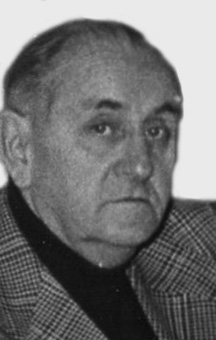
(Inducted in 1980) As a builder for sport Fred Tessier’s exceptional contributions, especially for soccer, earned him election to the Newfoundland and Labrador Sports Hall of Fame. A native of St. John’s who spent his life in Grand Bank, with lengthy service as the town’s mayor, his contributions beneficially influenced and affected just about every aspect of community life. For 24 years he was president of the Burin Peninsula Athletic Association, served as Grand Bank Athletic Association president for 27 years and provided the day-to-day leadership that made both organizations viable and worthwhile concerns. Fred Tessier was one of the small group of people who founded the Newfoundland Soccer Association in 1950 and his 20 years as an executive member included five years as president. He is a member of three soccer halls of fame. He was the province’s representative on the National Advisory Council for Fitness and Amateur Sport for three years, a member of the board of directors of the provincial sports federation and the sports hall of fame and served on a large number of varied sports and other associations and committees. His contributions earned him the Order of Canada. In recognition of his contributions, during an extremely long period of time to many, many sports and especially soccer, Fred Tessier was inducted into the Newfoundland and Labrador Sports Hall of Fame November 1, 1980.
Jean (Lake) Thompson
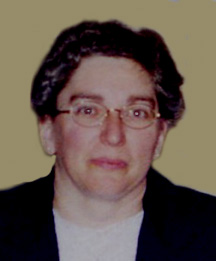
(Inducted in 2002) Growing up in a soccer atmosphere and loving the sport in a manner similar to her father Ben, Jean (Lake) Thompson has contributed an amazing amount to soccer, especially soccer officiating. Her 23-year career as a soccer official is overflowing with “first” because she is a unique individual who accomplished much as “the first female.” It should be noted, and noted well, that she is a very fine official who happens to be a female. She has earned her great reputation as an individual with gender having nothing to do with it. Jean (Lake) Thompson has worked hard and contributed much. Her attitude and approach to soccer has been of an extremely high level and she has earned the respect of fans, players, coaches, other executive members and, very importantly, of every soccer official with whom she has come in contact. As an assessor, as a scheduler, as an individual who has devoted endless time and effort to soccer officiating, she has been extremely efficient and extremely effective. She was the first female to fill the chief assessor role at a national championship and her overall contributions have earned her other important awards. She has been recognized for her contributions to St. John’s and provincial soccer with the Eleanor Bennett Award, the Andy Joy Award and the Ross Arlett Award. In addition to her officiating, she has successfully filled an extremely large number of executive positions within a wide range of soccer events and organizations. The manner in which she took care of these responsibilities is equal to her great success within officiating. She is a member of the St. John’s Soccer Hall of Fame.
Frank Tibbo
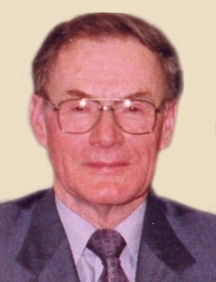
(Inducted in 1985) A very large number of soccer people in Gander specifically and Central Newfoundland in general, had the opportunity to be involved in the sport because Frank Tibbo was an excellent soccer person and because he found employment in Gander. For 15 years he was the driving force behind soccer in the area. A fine player in addition to becoming an exceptional soccer executive and builder, he was born in Grand Bank and naturally was greatly influenced by the historic soccer traditions of that town. Enjoying great personal success during his minor and school soccer years, Frank Tibbo took this background with him when he became an air traffic controller in Gander. From 1956 to 1970, he provided exceptional leadership with the Central Newfoundland soccer community, filling every position from player to coach, to official to executive and devoting many hours and great effort to building the sport in the area. He was extremely successful in all aspects of the game. Universally respected in all aspects of Gander community life, Frank Tibbo is a member of the Gander Sports Hall of Fame.
Don Turpin
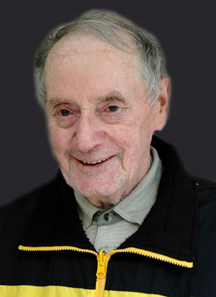
(Inducted in 2002) During the past 54-years Don Turpin has become a soccer legend, especially within Burin Peninsula soccer. The St. Lawrence native has provided spirited coverage of all aspects of soccer as a journalist and a broadcaster. Because of his great love of the game and his amazing fulfillment of his responsibilities, soccer in general and on the Burin Peninsula in particular, is much better today. He is simply an outstanding soccer personality with a reputation for accuracy, fairness and great expertise. His short soccer-playing career ended in 1950 because of a leg injury but that was also the time when his inspirational soccer support career started, and it has consistently continued for the betterment of soccer and thousands of those involved with it. On a year-to-year basis Don Turpin has been a major factor in soccer improvement and expansion. He has devoted many hours and a great deal of effort to making players and teams better known and to affording them the credit which they deserve. Don Turpin’s objective and fair reaction and comments to a variety of situations have earned him great respect as an unbiased and entertaining reporter. He has reported, in newspaper and on radio, the facts as they are while providing an excellent opportunity for an extremely large number of soccer people to present their opinions and sentiments. In addition to his expertise as a reporter, Don Turpin has filled a very large number of executive positions on soccer organizations and his work within the PR aspect of the sport has set a high level of success. While soccer is and has been his great love, he has contributed in many ways to the betterment of the extended community in which he lives and has provided impressive newspaper and radio coverage to many, many worthwhile events and happenings, especially on the Burin Peninsula. He is a member of the Burin Peninsula Soccer Hall of Fame and the St. Lawrence Soccer Hall of Fame.
Joe Turpin
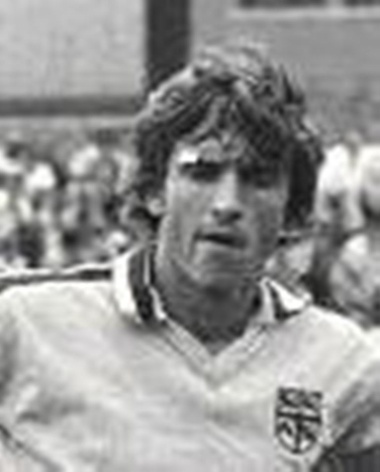
(Inducted in 2011) Joe Turpin has distinguished himself as a team leader at every level which he played. Whether it was for his St. Lawrence Laurentians, his University of New Brunswick team or when he represented his Province, he was a force to be reckoned with. Personal achievement and success followed him at every level. He was a key member of Newfoundland and Labrador’s U-18 Team which won the National Championship, he twice won National Challenge Cup Silver Medals as well as being a member of the Province’s Canada Games Team. He has won seven Provincial Challenge Cup titles, he has been an MVP, a Top Defender and an All-Star at the Provincial and University level. In addition, Joe also received a try-out with the National Team. For his outstanding play, he has been inducted into the St. Lawrence and the Burin Peninsula Soccer Halls of Fame.
Tom Turpin

(Inducted in 1985) An excellent goalkeeper who played for 12 very successful seasons with the St. Lawrence Laurentians, Tom Turpin started his career in the late 1940s and enjoyed considerable success within the very competitive and very tough Burin Peninsula Soccer Association. This competition allowed him to display his fine skills and talents in front of fans who were very knowledgeable about soccer. Facing high calibre opponents in league and exhibition games, he often played a major role in St. Lawrence victories, being the difference between a win and a loss. Quick and agile, Tom Turpin always turned in a fine performance and was especially valuable in close situations. The highlight of his eventful career came in 1951 when his goalkeeping was very important to the Laurentians as they won their first of many Newfoundland and Labrador senior soccer championships. It was especially important since St. Lawrence had lost the 1960 senior crown to Holy Cross, their real archrivals. Tom Turpin has been inducted into the Burin Peninsula Soccer Hall of Fame and the St. Lawrence Soccer Hall of Fame with all his inductions being recognition of his excellence as a goalkeeper.
James “Hooks” Vinicombe
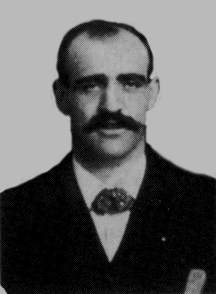
(Inducted in 1985) A pacesetter in five sports at the turn of the century, James “Hooks” Vinicombe was among the first group elected to the Newfoundland and Labrador Sports Hall of Fame. He excelled in every sport played in his era and was a natural star in hockey, soccer, rowing, track and cricket. He added dignity, humility and sportsmanship to his great skill and was regarded as a “class” athlete. One of the best hockey players around, he was captain for the Terra Novas team that recorded the first win on the Boyle Trophy in 1904. On the soccer pitch, he was the leader and captain of the famous Star of the Sea teams that went from the 1800s to the 1900s with an impressive string of St. John’s championships. His track credentials were extremely impressive as he dominated both track and field events in just about every meet he attended. He was the best track athlete of his time. As was expected he rowed in the St. John’s Regatta, and as in his other sports he led many crews to victory in a variety of races. A brilliant athlete, an inspiring leader and a great example for the youth of his time, James “Hooks” Vinicombe was inducted into the Newfoundland and Labrador Sports Hall of Fame during its inaugural banquet, October 13, 1973.
N.J. “Nix” Vinicombe
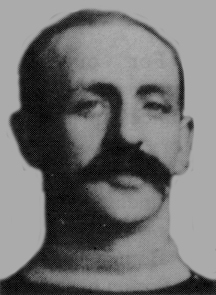
(Inducted in 1985) Because of his amazing career that featured great success in five sports, N.J. “Nix” Vinicombe was elected to the Newfoundland and Labrador Sports Hall of Fame. At the turn of the century, he enjoyed a versatile athletic career as well as serving in the House of Assembly and as St. John’s Deputy Mayor in 1921. He was a standout in hockey, soccer, cricket, rowing and running and displayed enough skill and talent to be regarded as one of the foremost athletes of his time. His soccer was with the Star of the Sea and B.I.S. teams and included city championships. With cricket popular, he was looked upon as one of its local superstars and with weekly track meets, he won an extremely large number of track medals. He was a premiere hockey goaltender and highlighted his career with a 3-0 shutout win over a visiting Prince Edward Island team. He backstopped the Terra Novas to the first win on the Boyle Trophy in 1904 and added other championships in 1905 and 1907 after his first title in 1902. A member of the St. John’s Regatta Committee, he rowed for several winning Star of the Sea and B.I.S. crews. In recognition of an athletic career that was extremely successful in five sports, N.J. “Nix” Vinicombe was inducted into the Newfoundland and Labrador Sports Hall of Fame November 1, 1980.
Jessica Wade
Throughout her playing career, Jessica Wade led by example. Her dominance in midfield and the defensive end of the field has been verified by her all-star selections in the provincial Jubilee Trophy league. The physical dominance, intelligence, technical ability and leadership which she portrayed further demonstrates the impact she had on the game at the senior women’s level of play.
At the university level, Jessica was an AUS First and Second Team All-star, a five time Academic All- Canadian, and led her Memorial team to the semi-finals on two occasions. In addition, she was the recipient of the Graham Snow award for Athletics and Academics on two occasions. She capped off her university career by being inducted into Memorial University’s Athletic Honor Society.
Jessica’s years playing in the provincial Jubilee Trophy league saw her win five Jubilee Trophy championships, four all-star selections and earning Top Defender recognition. To further show her impact upon the game, she was named a finalist for NLSA’s Female Player of the Decade (2000 - 2009). Knowing what it takes to play at the top level, Jessica Wade was a role model for others to master the technical skills and fitness levels required to be successful and be considered an elite player.
Brian Walsh
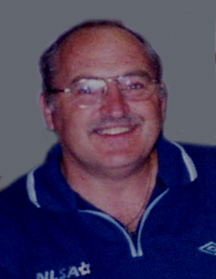
(Inducted in 2005) Soccer within Newfoundland and Labrador, especially officiating, has benefited greatly from the outstanding work and dedication of Brian Walsh. In all aspects of soccer officiating, and in other important soccer positions, he has contributed in an extremely impressive fashion that has been of great value to the sport. His soccer career covers 35 years and continues in a valuable manner. After a journeyman playing career that lasted from 1970 to 1978, he moved into the officiating area of soccer and, through hard work and determination, became one of the finest officials to ever call a game within Newfoundland and Labrador. Gaining a great amount of soccer knowledge, bringing an unbiased approach and combining it with a keen sense of humor, he called many more than his share of “big” games during the 1980s and 1990s. Brian Walsh was nominated for his national referees badge in 1988 and achieved his provincial instructor’s badge in 1991. The Canadian Soccer Association added his national assessor’s certification as his overall officiating value was recognized at all levels of the sport. In 1994 he became director of officials for the province and devoted seven successful years to improving and expanding the number of qualified officials at every level of soccer. The excellent showing of local officials at national championships is a tribute to his work. Brian Walsh’s officiating reputation, on and off the pitch, is of the very highest level. Serving in a wide range of administration positions, with local and provincial soccer organizations and with many important soccer committees, he has played major roles in a variety of successful projects and events. He has contributed a great deal. His determination has also been very evident in a coaching career designed to encourage and improve players below the ‘A” calibre. In 2001 he put a nondescript group of intermediate players together and the St. John’s United has emerged as the 2005 provincial intermediate “A” champions. The team is yet another tribute to Brian Walsh’s soccer contributions.
Harold “Hal” Walsh
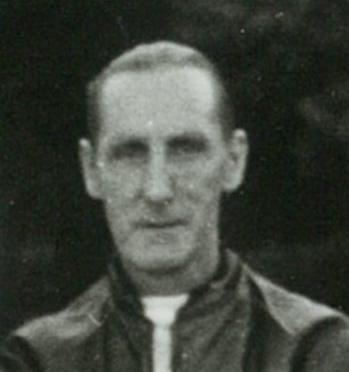
(Inducted in 1999) Always a sound supporter of coaching and officiating upgrading, he was responsible for improved technical skills in both aspects of the game. Harold “Hal” Walsh had a distinguished and rewarding soccer career in St. John’s and Corner Brook. He excelled as a player, coach and referee during a period of time when soccer was the major summer sport and dominated local athletic activities. During the early 1920s, Hal Walsh, born April 24, 1908, was an exceptional school soccer player while attending St. Patrick’s Hall School in St. John’s. It was during his school days that he developed impressive soccer skills based on great personal speed, quickness and agility. His talent on a soccer pitch was very evident after he graduated from school, as he quickly became a premier player with B.I.S. and Holy Cross, in St. John’s junior and senior competition. For example, Holy Cross won the 1927 St. John’s junior championship as Walsh scored the title game’s lone goal for a 1-0 championship win. His St. John’s soccer career continued until 1935 when he moved to Corner Brook to obtain employment. He left his native city with a reputation as one of the finest soccer players of his era. Soccer did not become organized into league play in Corner Brook until 1950 but a local all-star team operated with numerous exhibition games against visiting paper boat teams that often included high calibre players from the British Isles and other countries. For 15 years, Hal Walsh starred for the Corner Brook all-stars who added teams from visiting navy boats during the Second World War. Not only did Hal Walsh continuously impress his teammates, but his prowess on the soccer pitch, especially offensively, generated favorable reaction from members of visiting teams. It should be noted that he often offered his services as a coach and/or official for a variety of soccer games in the general Corner Brook area. His officiating was especially important when the Corner Brook league was established in 1950 and, with the founding of a provincial soccer association in 1950, he was the natural choice to coach the Corner Brook all-stars in provincial competition. He led the Corner Brook all-stars for seven provincial seasons, winning two championships and putting in place a high level of soccer upon which Corner Brook soccer was built. The roster of the clubs that Hal Walsh helped organize and coached included a long list of very good players, including several who have been elected to the Newfoundland and Labrador Soccer Hall of Fame. For nearly 30 years, Hal Walsh excelled as a player and for nearly 20 years he made important contributions to Corner Brook soccer as a coach and official. In addition to soccer, Hal Walsh was a top calibre five-pin bowler, a better than average broomball player and a respected baseball umpire. He married Nellie Earle of St. John’s and they had three children, Florence, Michael and Geraldine.
Howard Walsh
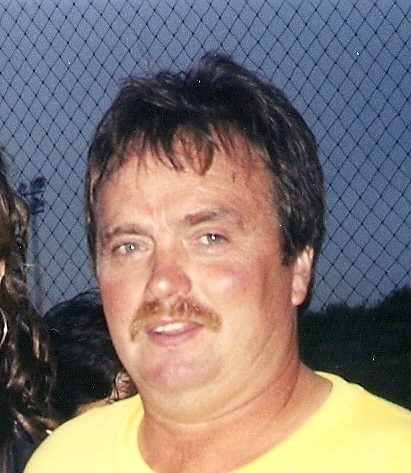
(Inducted in 2001) Howard Walsh enjoyed exceptional success during his playing career and for 20 years has contributed to the sport, especially on the Burin Peninsula and in Marystown, as a coach and chaperone while promoting the game in a wide range of activities. A very skilled and very talented mid-fielder, Walsh continually displayed exceptional ball control despite pressure from opposing players and was thus able to lead his club on offense while providing great backup defensively. He had a great ability to “read” the action and adapt play to suit the particular situation. His soccer ability was such that he was able to perform at the top of his game with an unusual number of different teams. He was an outstanding soccer player who added to the talent on any team for which he played. The highlight of his career came in 1974 Canadian under-18 championships when as captain he played a major role in the Newfoundland and Labrador all-star squad claiming the national title, one of only three Canadian championships earned by the province. He was inducted into the Newfoundland and Labrador soccer Honor Roll of teams for this great accomplishment. Mid-fielder Walsh played minor soccer in his native Marystown and contributed greatly to the provincial titles won by the Burin Peninsula all-stars in 1972, ’73 and ’74. During the same period he was twice voted Marystown’s athlete of the year and, despite his age was MVP on the Marystown first division club. As a member of Memorial University’s varsity team he earned all-star selection in Atlantic University competition, was awarded three soccer scholarships and inducted into the MUN Athletic Honor Society. His ability was such that he twice played for the Newfoundland and Labrador team in Canada Summer Games and was selected to Canada’s national junior team, playing a series of games against Bermuda. Canada Games training resulted in Walsh playing during a tour of Scotland and Ireland in 1977. After receiving a tryout for the Canadian national men’s team, he was one of the first athletes from the province to receive national carded status. After starting his provincial Challenge Cup with Marystown, Walsh performed for the St. Lawrence Laurentians in 1977 and 1978, winning the provincial title each season. He was a valuable member of the Laurentian squad that won a silver medal at the 1977 nationals. While playing second division ball with the Burin Peninsula all-stars in 1982, he was added to the championship St. John’s club and was one of the better players at the national Premier’s Cup playoffs in Alberta. He has been the physical education teacher at Marystown Central High School for more than 20 years and during this period has filled continuous coaching positions with the same success and respect that he earned as a player. Many soccer players from the school are better because of his devotion to soccer and his willingness to coach.
Lawrence “Bucky” Warren
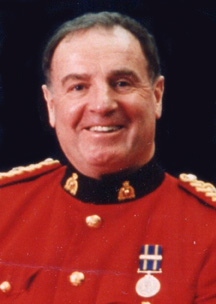
(Inducted in 1999) From the earliest age possible, Lawrence “Bucky” Warren was kicking a ball around his native Burin and eventually earned a spot on the Burin Eagles when he was only 12 years old. For seven seasons, this talented and intelligent centre midfielder starred for the Eagles and twice was named to the Burin Peninsula all-stars despite being only 20 when he left Newfoundland. Attending St. Pat’s High School in St. John’s he was named the school league’s MVP as he led the team to the St. John’s championship. After graduating from the RCMP Academy in Western Canada and spending one year in Ottawa, “Bucky” Warren was stationed in Nova Scotia and it was in that province that his prime soccer years were spent. A much sought after player, he was a member of some of Nova Scotia’s top soccer clubs and was selected a provincial all-star six times. Often club captain, he played against Queen’s Park Rangers and a variety of university all-star squads. He was twice named MVP for the Cape Breton soccer league and was a member of two clubs that won the Nova Scotia masters championships. After being stationed in St. John’s in 1986, he joined the Feildian masters team and added a couple of more championships to his total. Often brilliant, always outstanding, Lawrence “Bucky” Warren achieved extremely high levels within his sport. His performances on and off the pitch have been great examples for young people and clearly demonstrate the manner in which all sports should be played. “Bucky” Warren was inducted into the Burin Peninsula Soccer Hall of Fame in 1993. He was the commanding officer for the RCMP in Newfoundland and Labrador.
Clayton Welsh

(Inducted in 2012)
Clayton Welsh has served the soccer community of Newfoundland and Labrador in every capacity during his 35 year association with the game. As a player with Grand Bank, he was an All-Star and a member of championship teams at the junior and senior level of the Burin Peninsula League and in Provincial competition. He has served as a regional age group coach, Provincial Team all-star coach and as assistant coach at two Canada Games. On the administrative side, he has served on regional executives, particularly the Stephenville Association where he played a major role in establishing Stephenville as a minor power during the 1980. Provincially, he has served the NLSA for fifteen years as Minor Chairman, Vice-President and President. While on the CSA Board of Directors, he served as Head of Delegation for a number of international matches by National Teams. Clayton is also a member of the Burin Peninsula Soccer Hall of Fame.
George Welsh
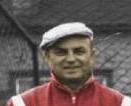
(Inducted in 1985) Grand Bank was fortunate to have a soccer coach of the highest quality going into the 1960s as George Welsh was very capable and certainly very able to provide the leadership required by the group of exceptional players who comprised the powerful GeeBees. His expertise and ability to communicate well with the players provided Grand Bank with one of the best clubs to represent the Burin Peninsula in provincial senior soccer. Obtaining the best performances from the players and putting a system into place that allowed the GeeBees to win many games, especially the vital ones, George Welsh was a major factor in the provincial senior competition successes that had Grand Bank emerge as champions for 1960, 1961 and 1962. While the GeeBees were overflowing with player talent, it was his coaching that brought it all together into the impressive title claiming effort that claimed three crowns. George Welsh’s playing career started in the late 1930s as he came up through the Grand Bank soccer system as an outstanding forward who was fast and could score goals. His play was among the best of his era and provided him with a solid foundation for a coaching career that lasted 18 seasons from the 1950s to the 1970s.
Nels Wilkins
Nels Wilkins has had a topflight career as an official and as a player. Although he dabbled a little in coaching, it was his performance as an official and as a goalkeeper that people remember most. While playing for the new entry into the St. John’s League, Gonzaga Vikings, Nels impressed from the opening whistle with brilliant shot stopping and anticipation as he came off his line to snare crosses. To further support his ability, he was named the allstar goalkeeper to play against the Burin Peninsula all-stars and against Ayr United of the Scottish first division.
Looking for another challenge in 1980, he decided to get involved in officiating. Like a duck to water, Nels took off and never looked back. For the first five years he worked his way up the ladder until in 1985 he earned his National Badge as an official. His calm approach to the game earned him the respect of players. Over his outstanding career, he has been invited on a number of occasions to officiate at the National Challenge Cup championships and has been named more than a dozen time to officiate at NLSA’s Challenge Cup final.
For his efforts as a player and official, Nels has been inducted into the St. John’s Soccer Hall of Fame. In 1995, the Canadian Soccer Association presented him with the Award of Merit for his outstanding contribution to the development and promotion of the game.
Herbert Young
In a career that spanned 50 years, Herbert Young not only displayed the qualities of an elite player, he also demonstrated the qualities necessary to take a leadership role to help in the formation, of a new four team Corner Brook league in 1963. He also played a major role in the formation of one of the new teams, the West Side Monarchs, a team he later went on to coach for a number of years. In his 16 years as a player competing in the provincial championships, he demonstrated that he possessed the skill sets to compete against the top teams from St. John’s and the Burin Peninsula. From his central defender’s position, he was a major factor in leading his Corner Brook team to the provincial championship in 1952 and 1956. During his time in the Corner Brook league, he was named a Top defender and an MVP. In addition, he was a perennial All-Star to play against visiting war ships from the British and Canadian navies.

